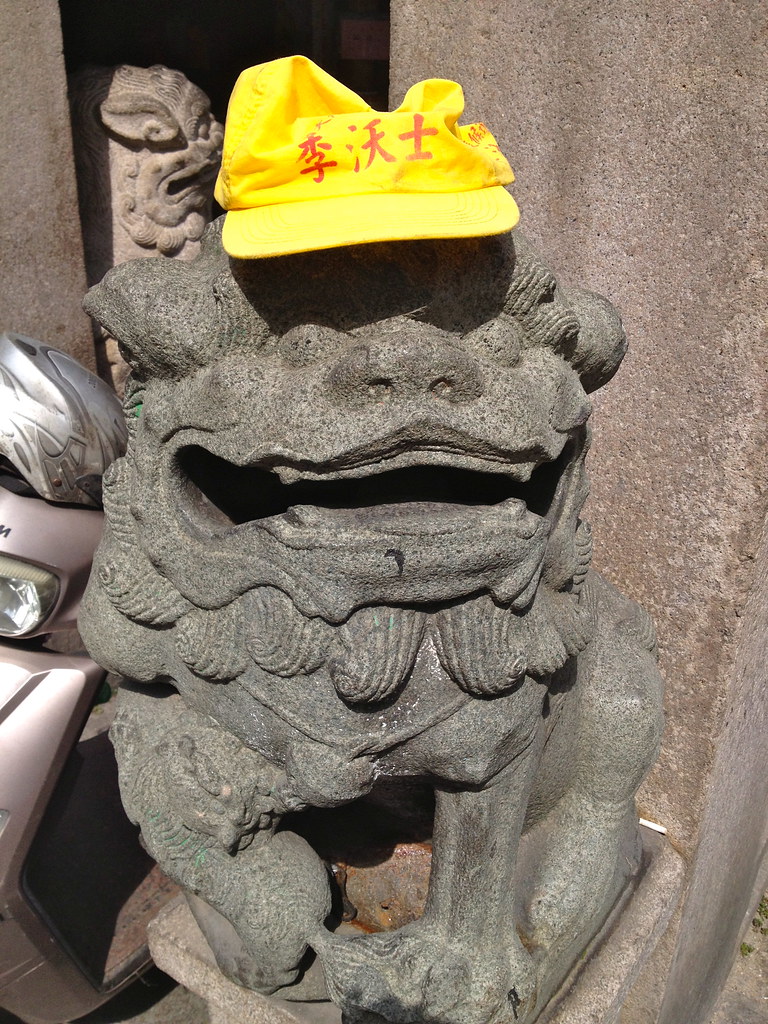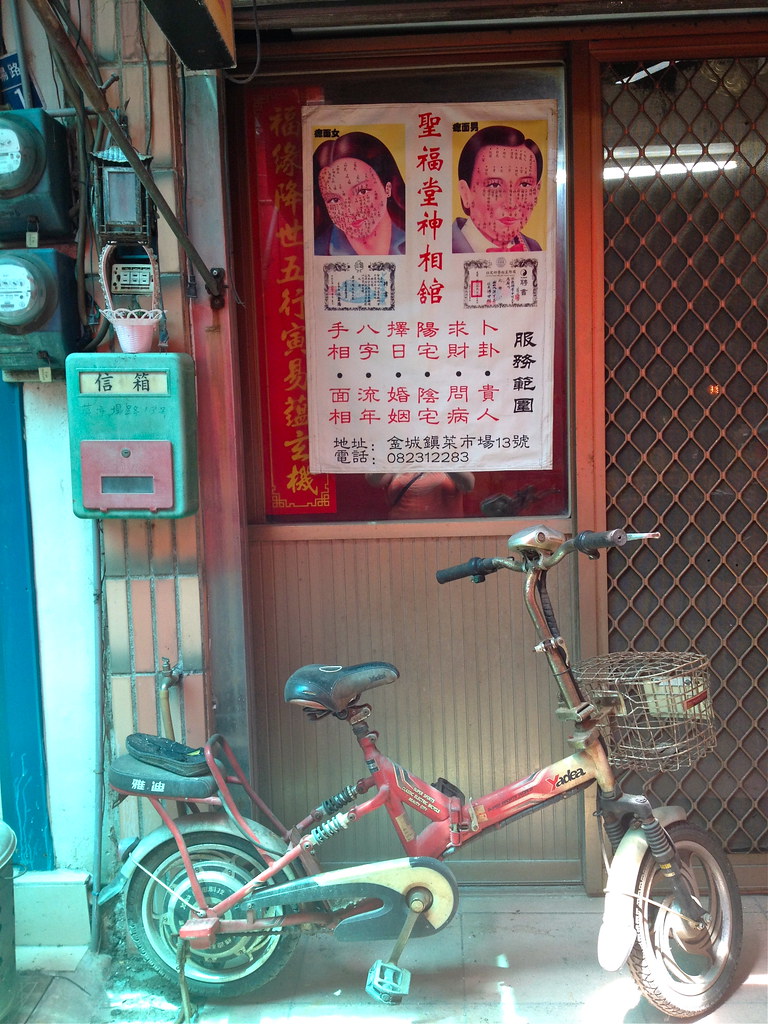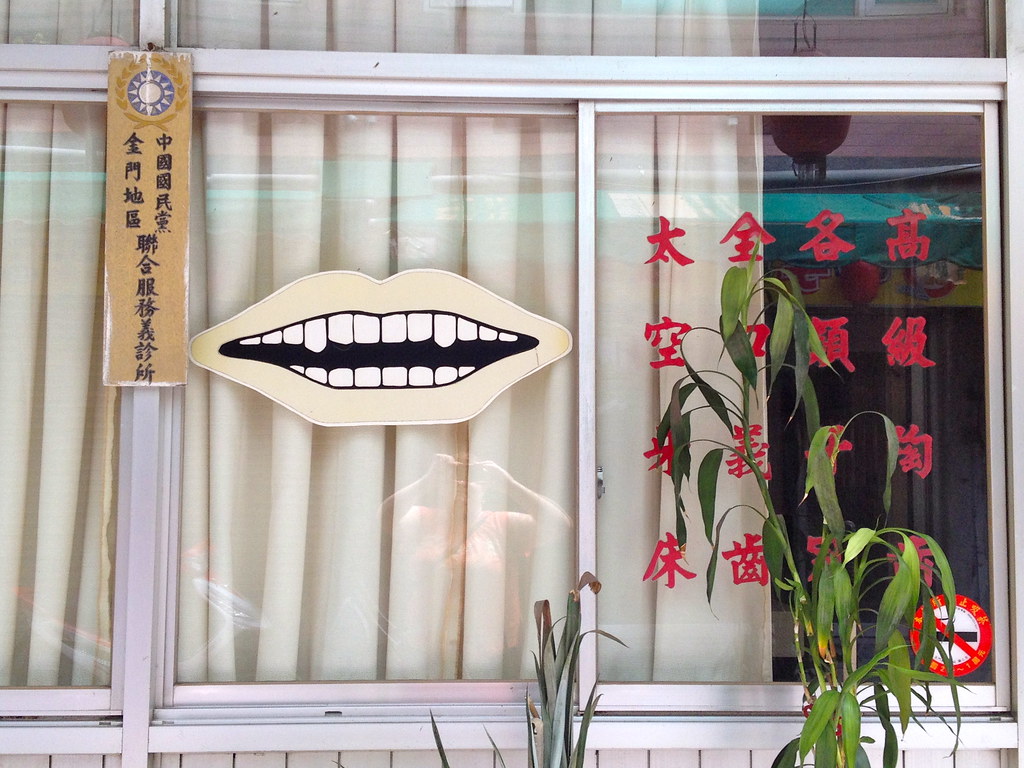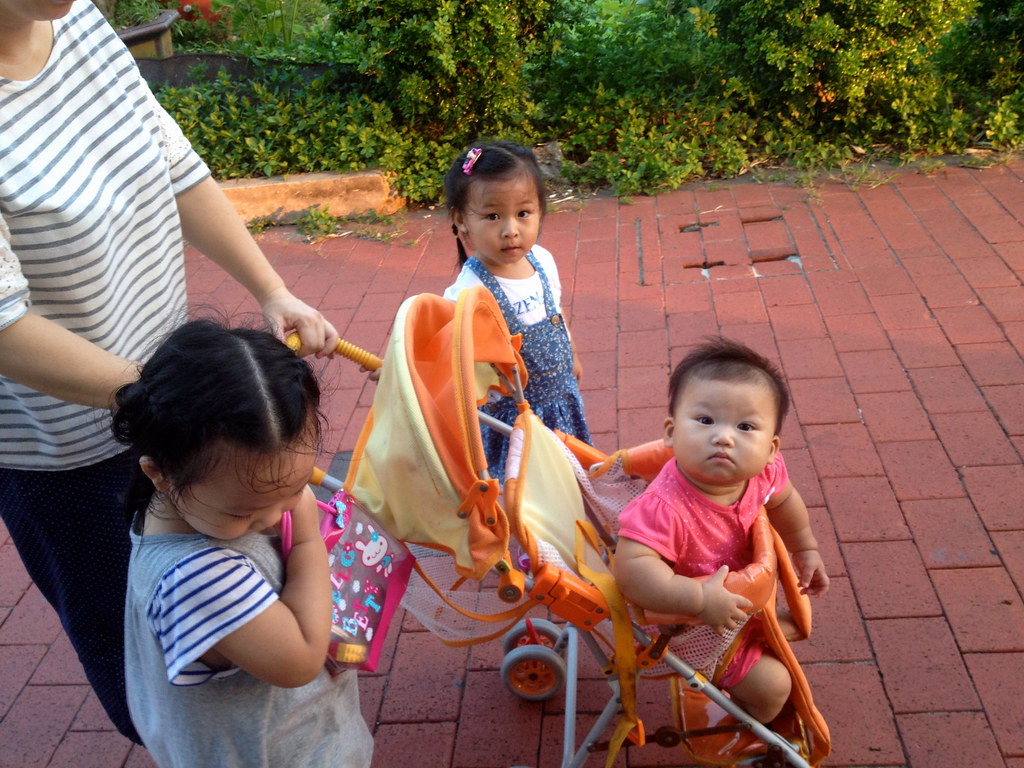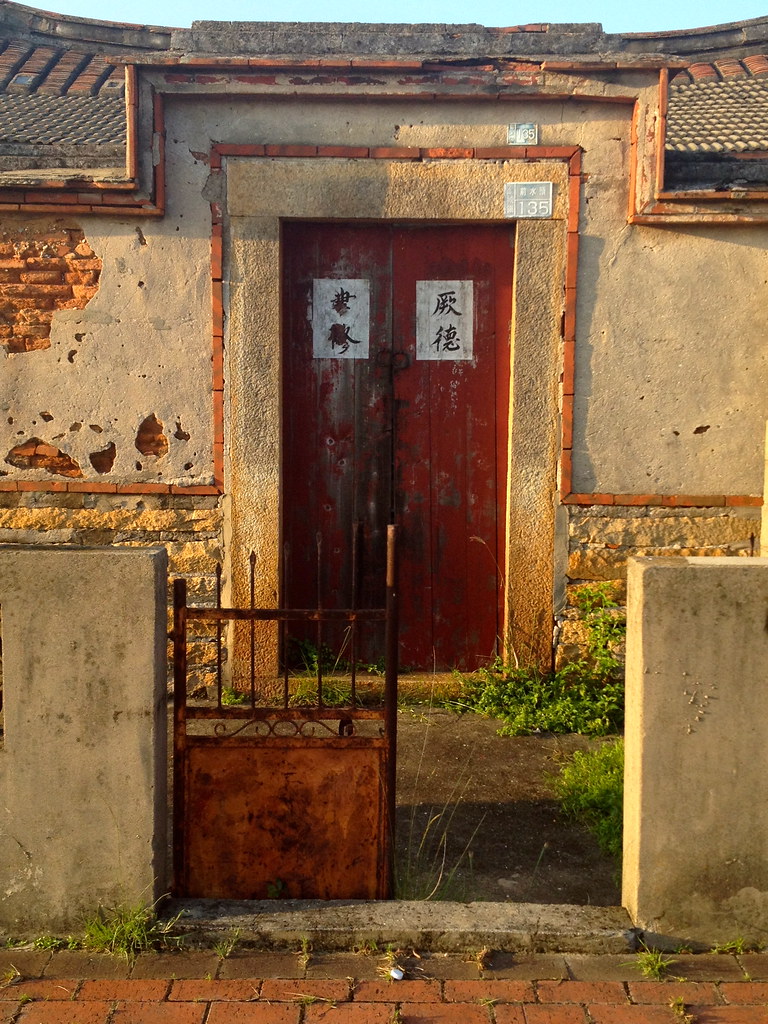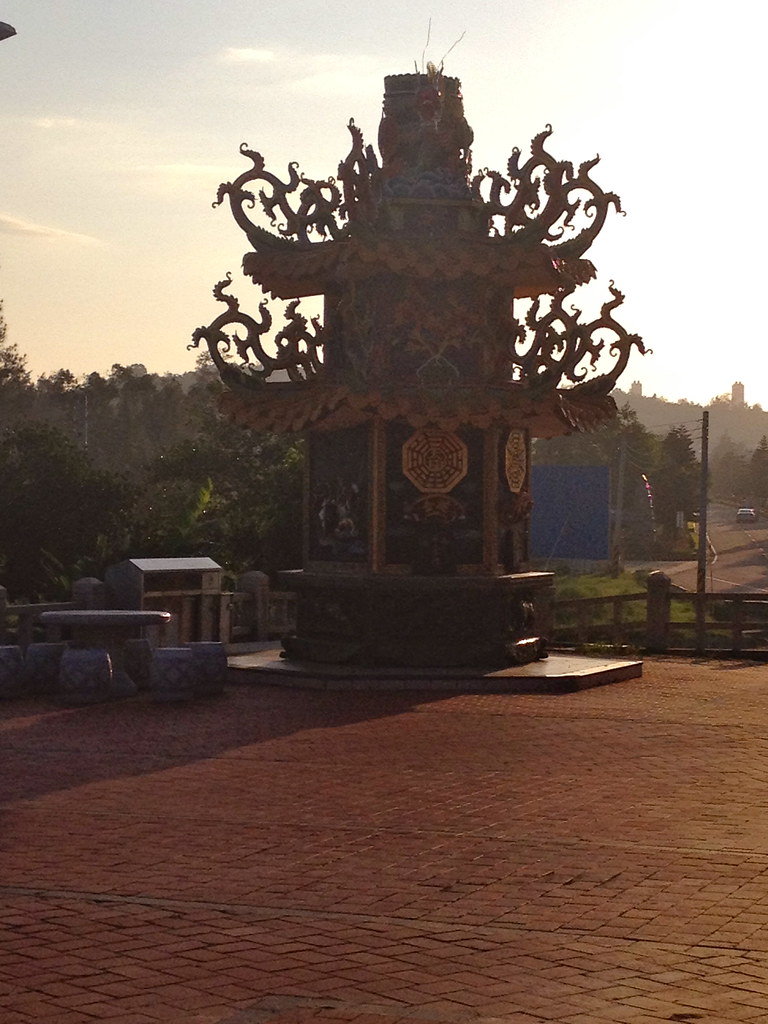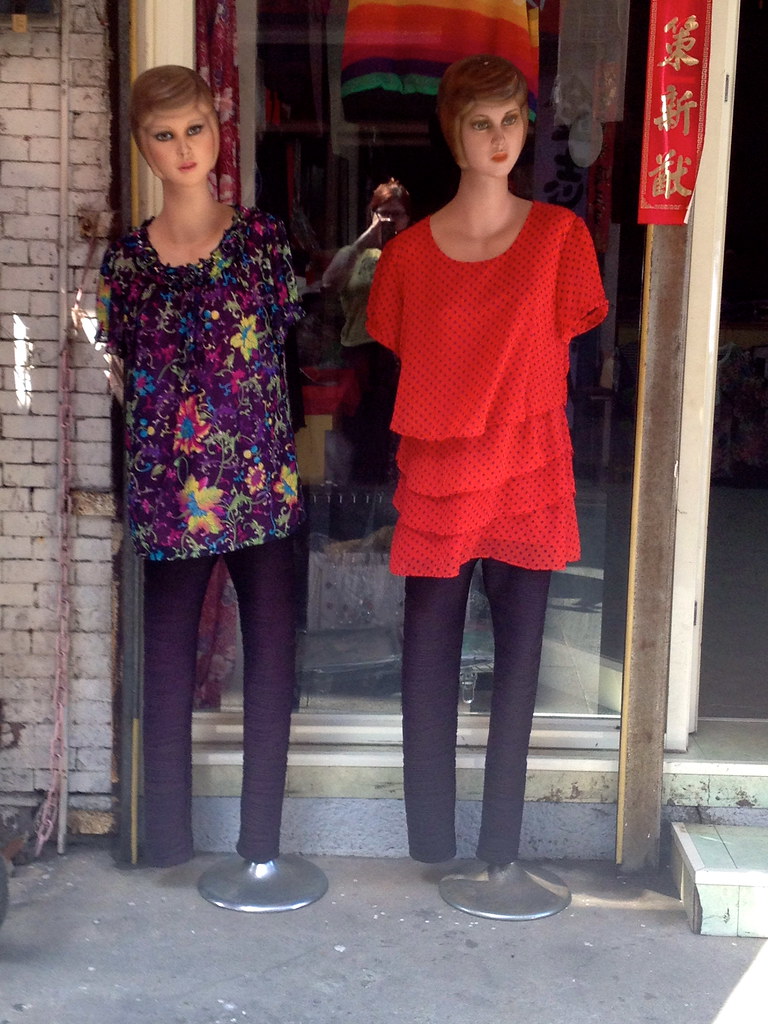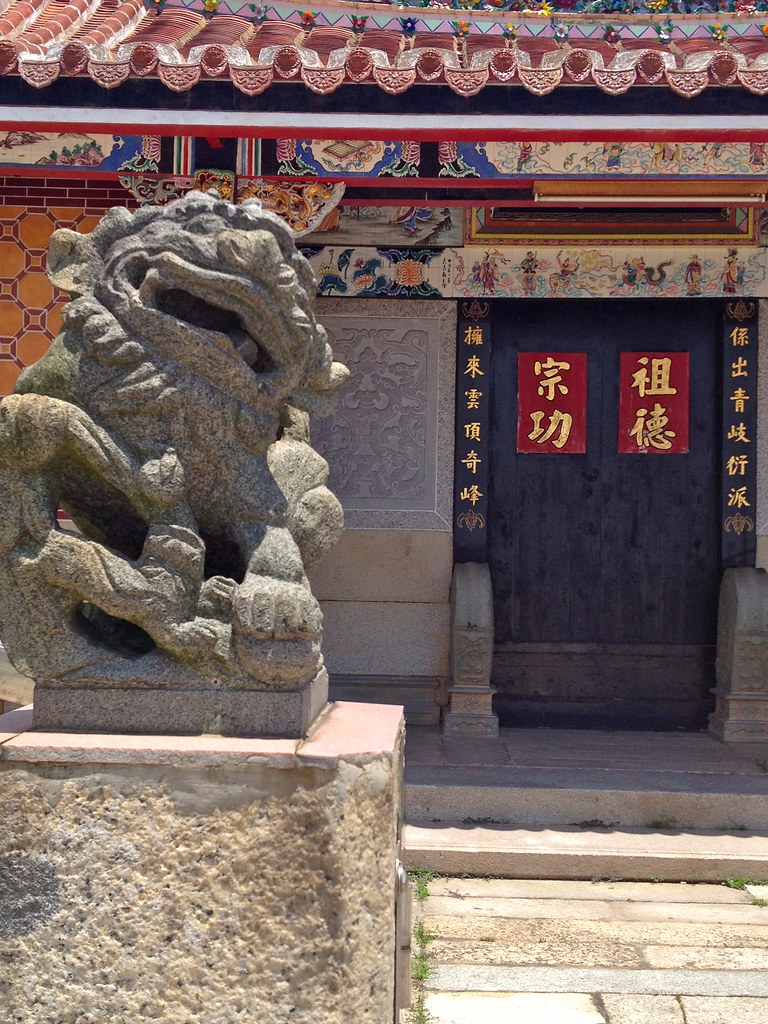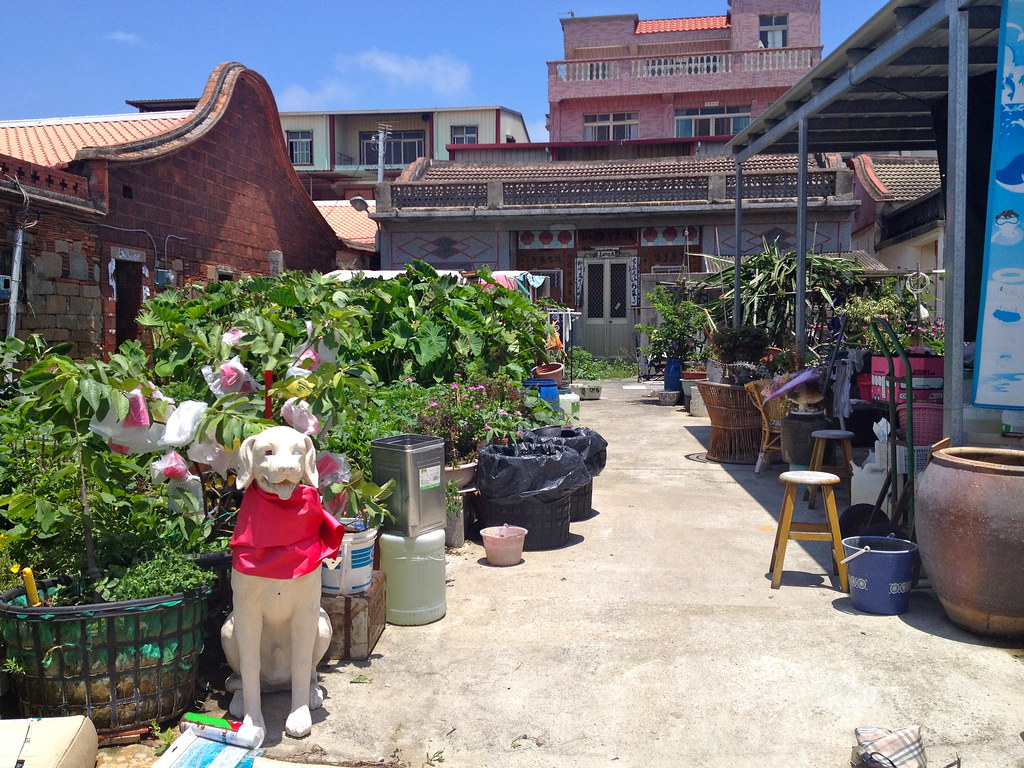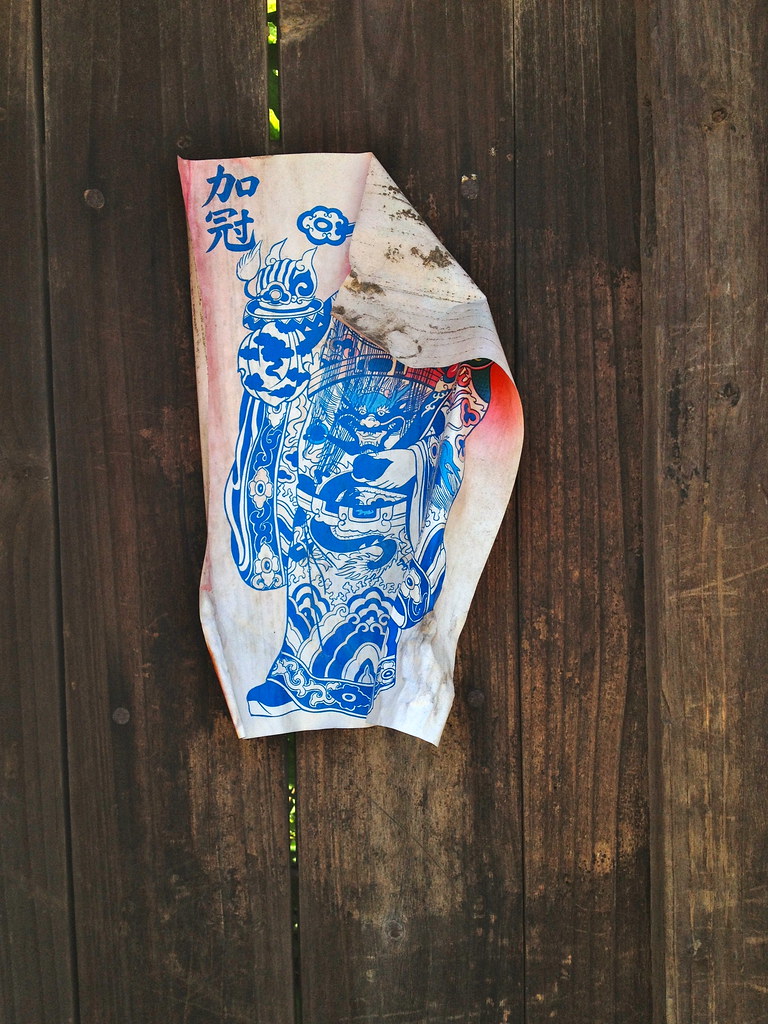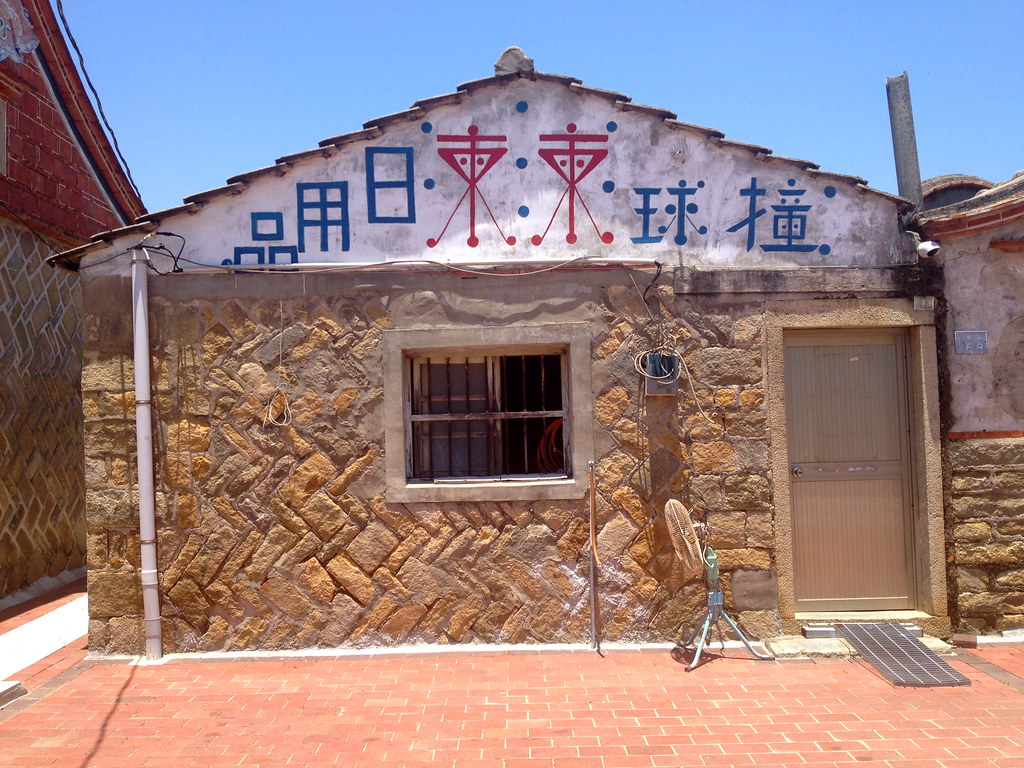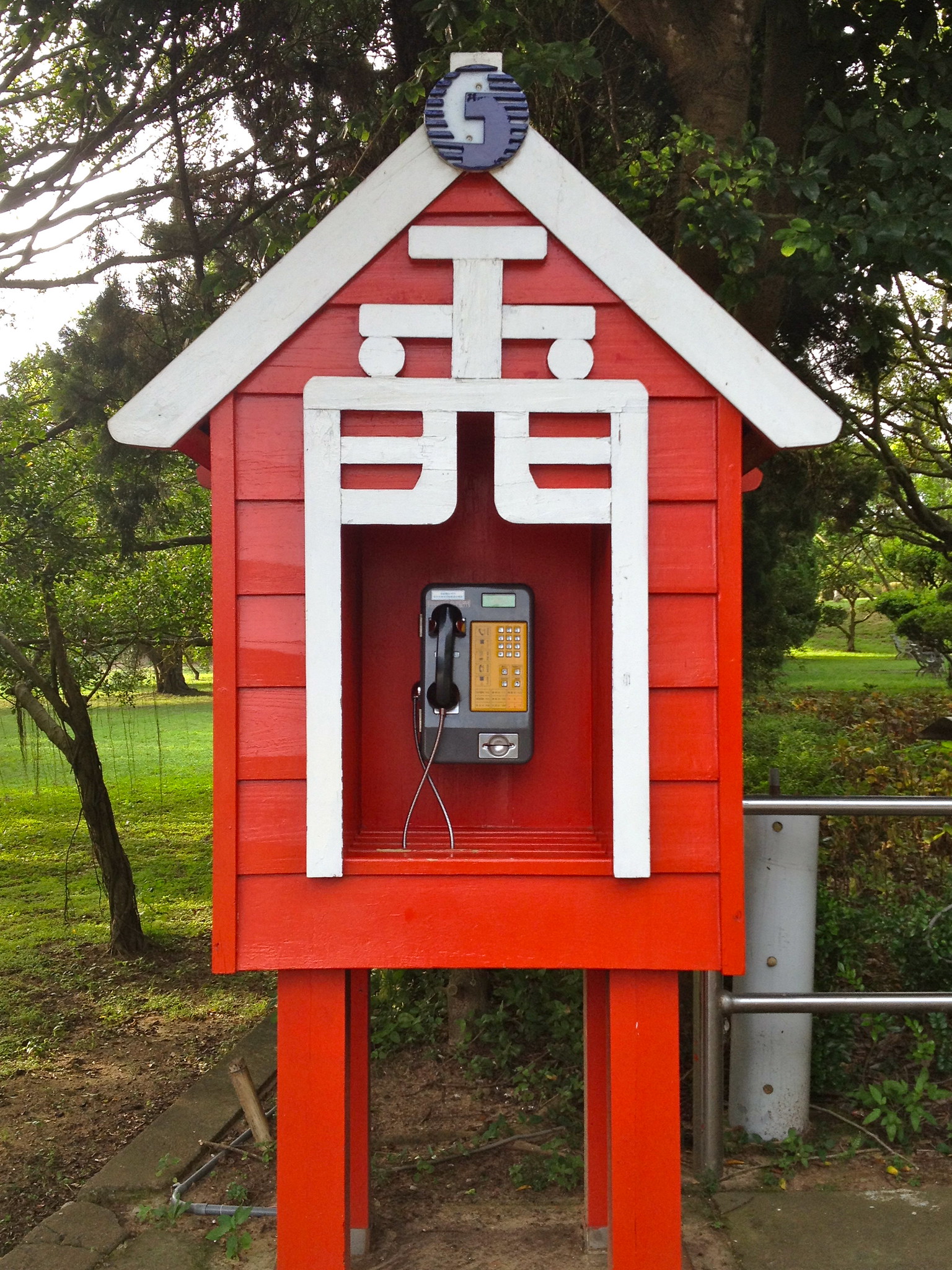
Anyway, as I've mentioned several times but haven't yet posted, over the summer Brendan and I went to Jinmen (Kinmen, Quemoy, whatever) just before I left for yet another trip to the US for yet another family issue (this one less serious). I decided I'd better post about it before I forget all of the particulars!
Two notable things about flying to Jinmen from Taipei: the first is that you pass right over Penghu, so you get a bird's eye few of Magong Island. It's quite something, and is a good reminder of how small Magong really is. Secondly, I didn't think anything of it when I took a few photos of the Central Mountain Range of Taiwan from the airplane as we flew down the coast - only to find it's actually illegal, at least according to Taiwanese law, to take photos of Taiwan from airplanes! Obviously it's a national defense thing, I just hadn't heard of such a law before.
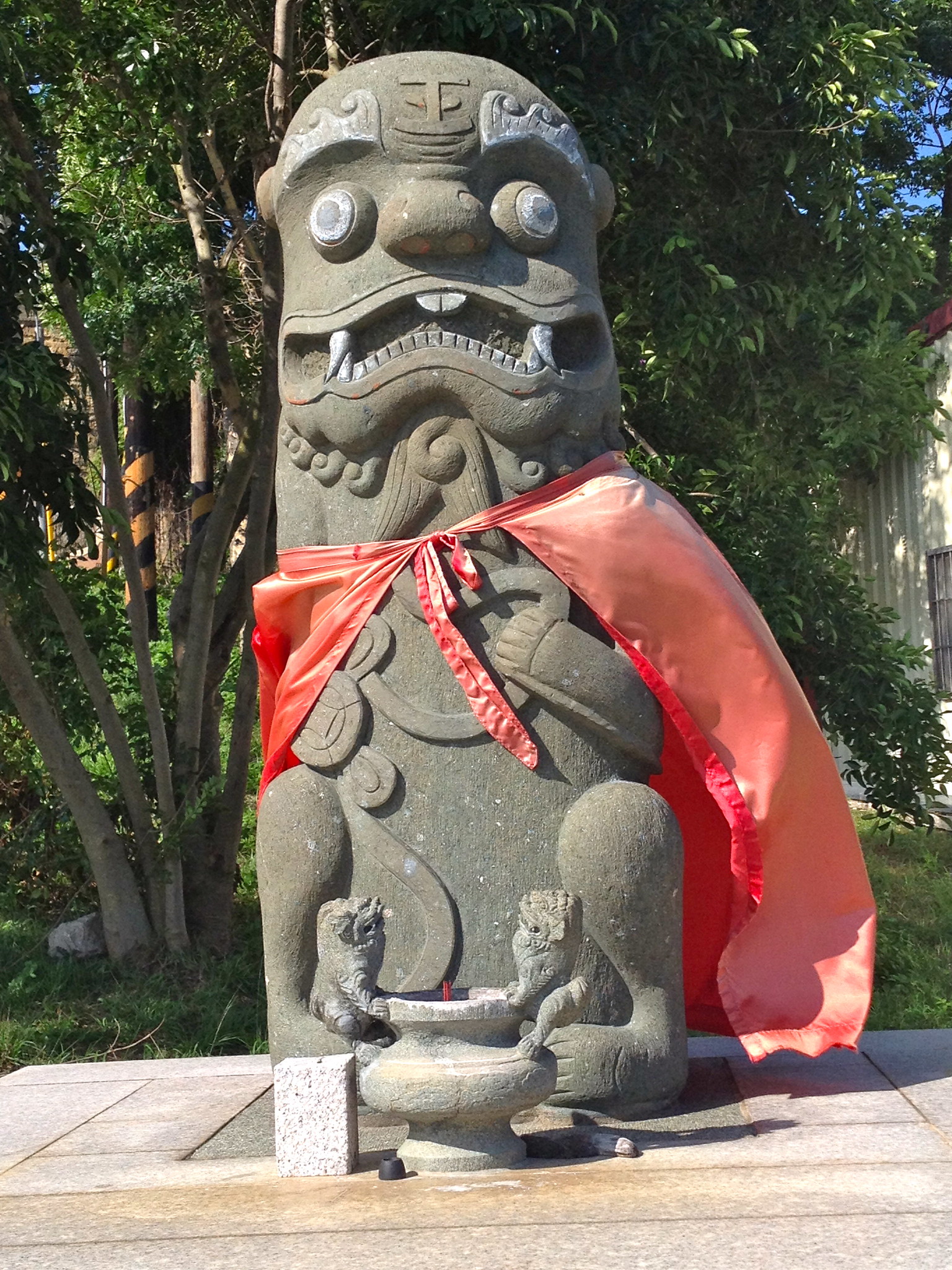
We stayed at ㄚ樂的家, a small "foreign style house" (洋樓) a short drive from Jincheng city - you definitely need to rent a car on Jinmen, though buses do exist - to stay here a car is crucial as it's down several country roads at a tiny hamlet on the waterfront. Worth it!
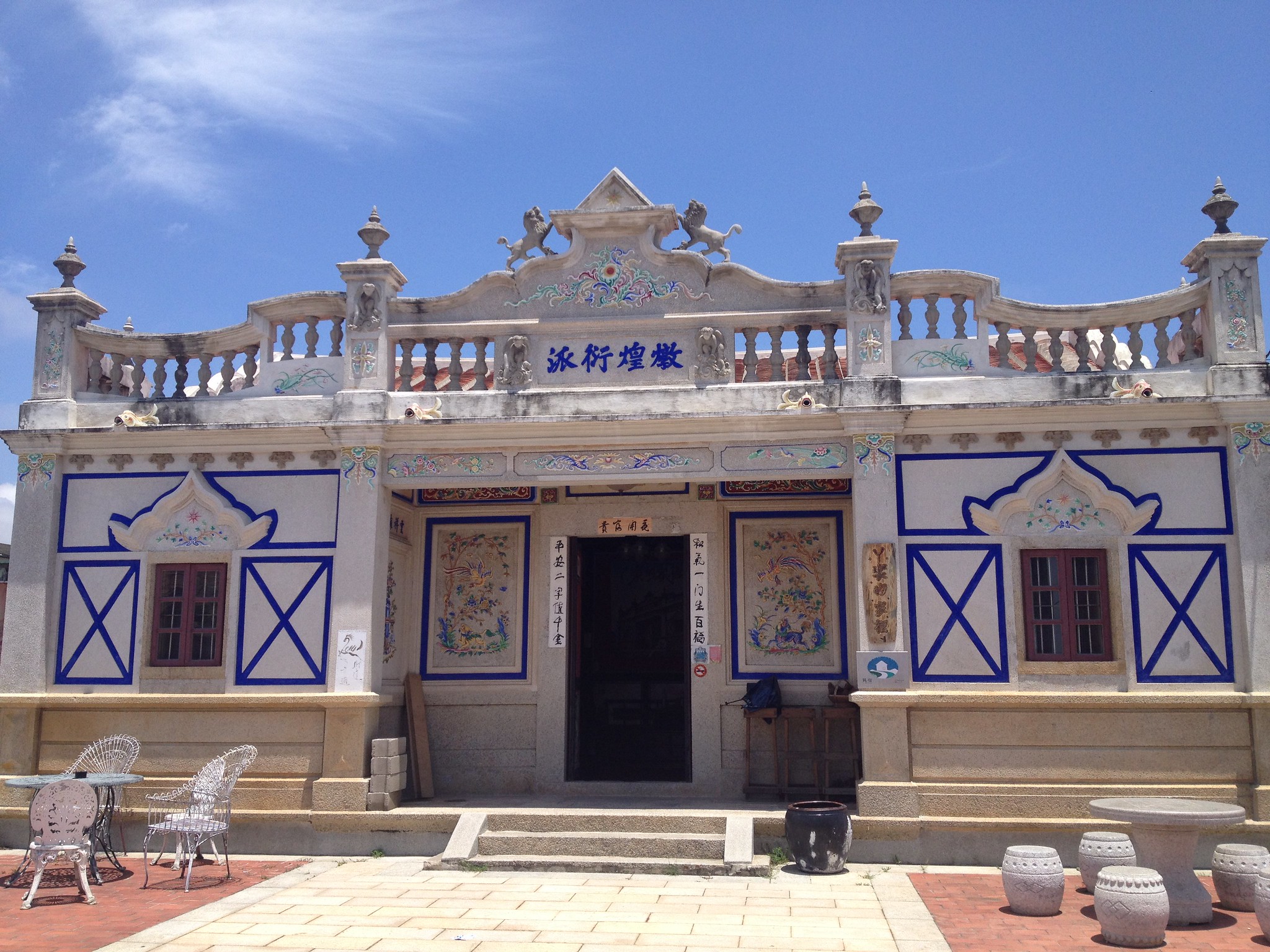
The inside is also preserved in a traditional look, and there is a kitchen and dining area for your use (breakfast is provided - generous portions and very local-style).
A couple of things struck me about Jinmen - not just the sheer number of old houses and traditional architecture, but also the number of abandoned buildings, most of them old, some of them not. Some of these were foreign-style houses, others were more traditionally Chinese buildings, still others seemed to be from the 20th century.
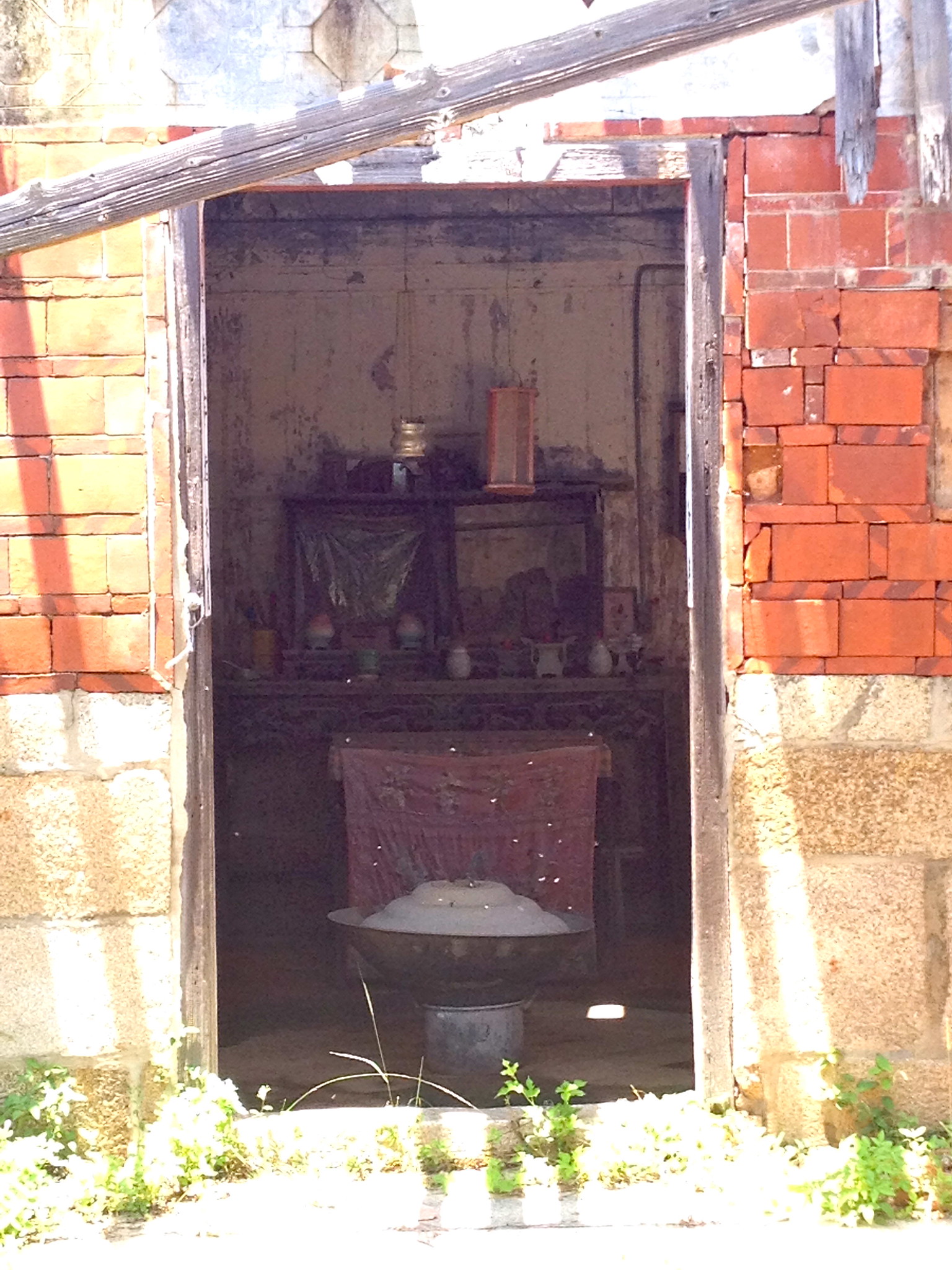
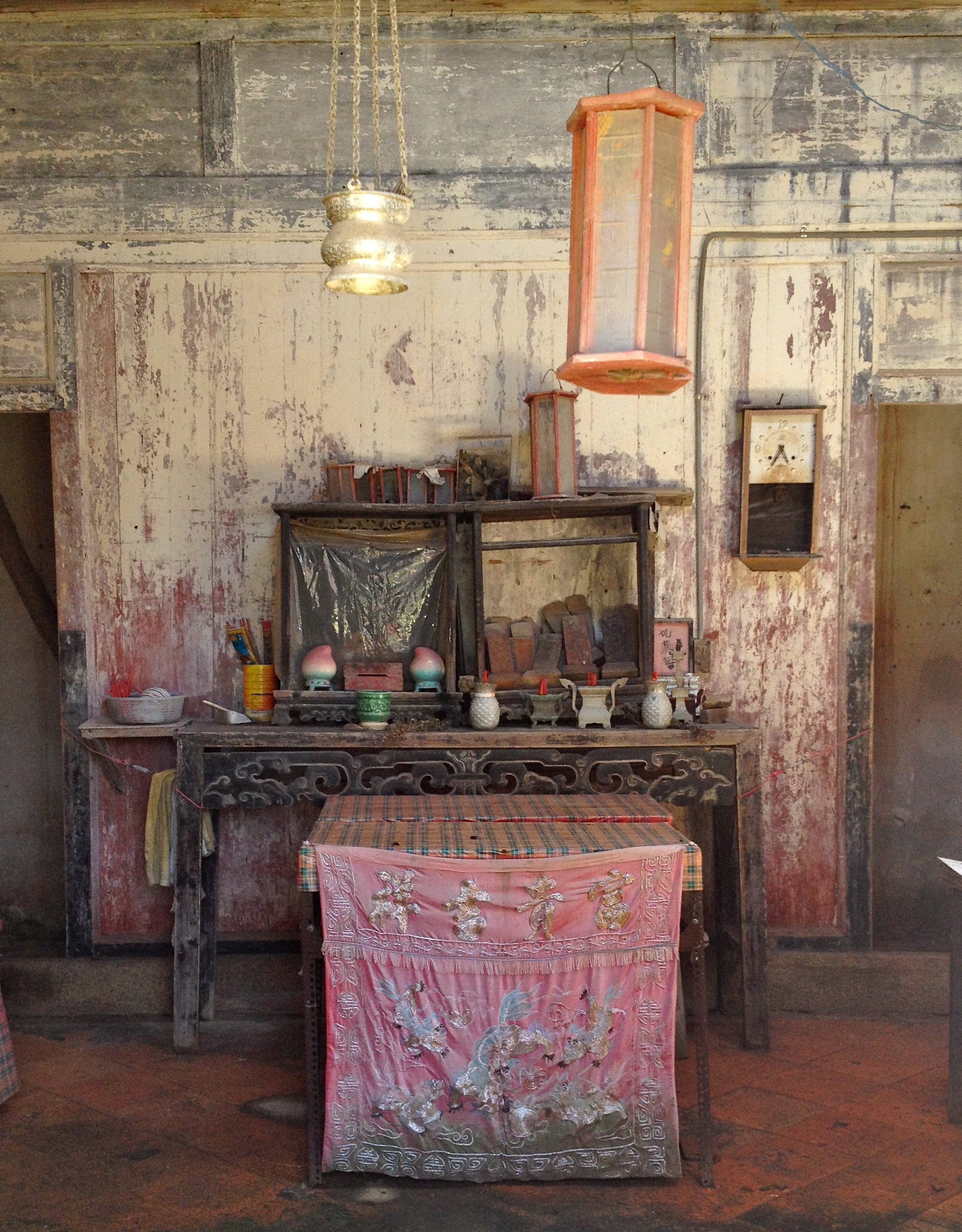
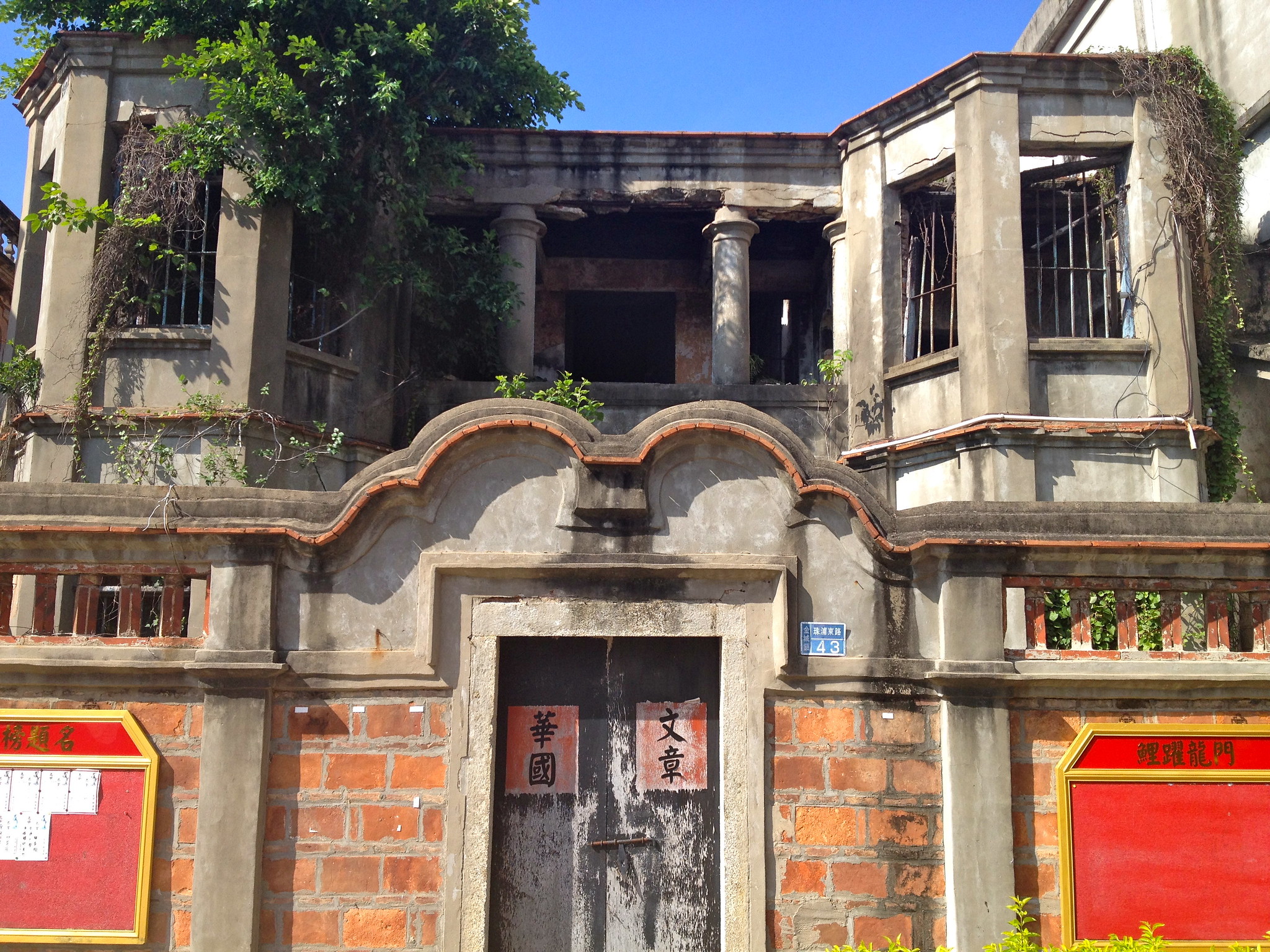
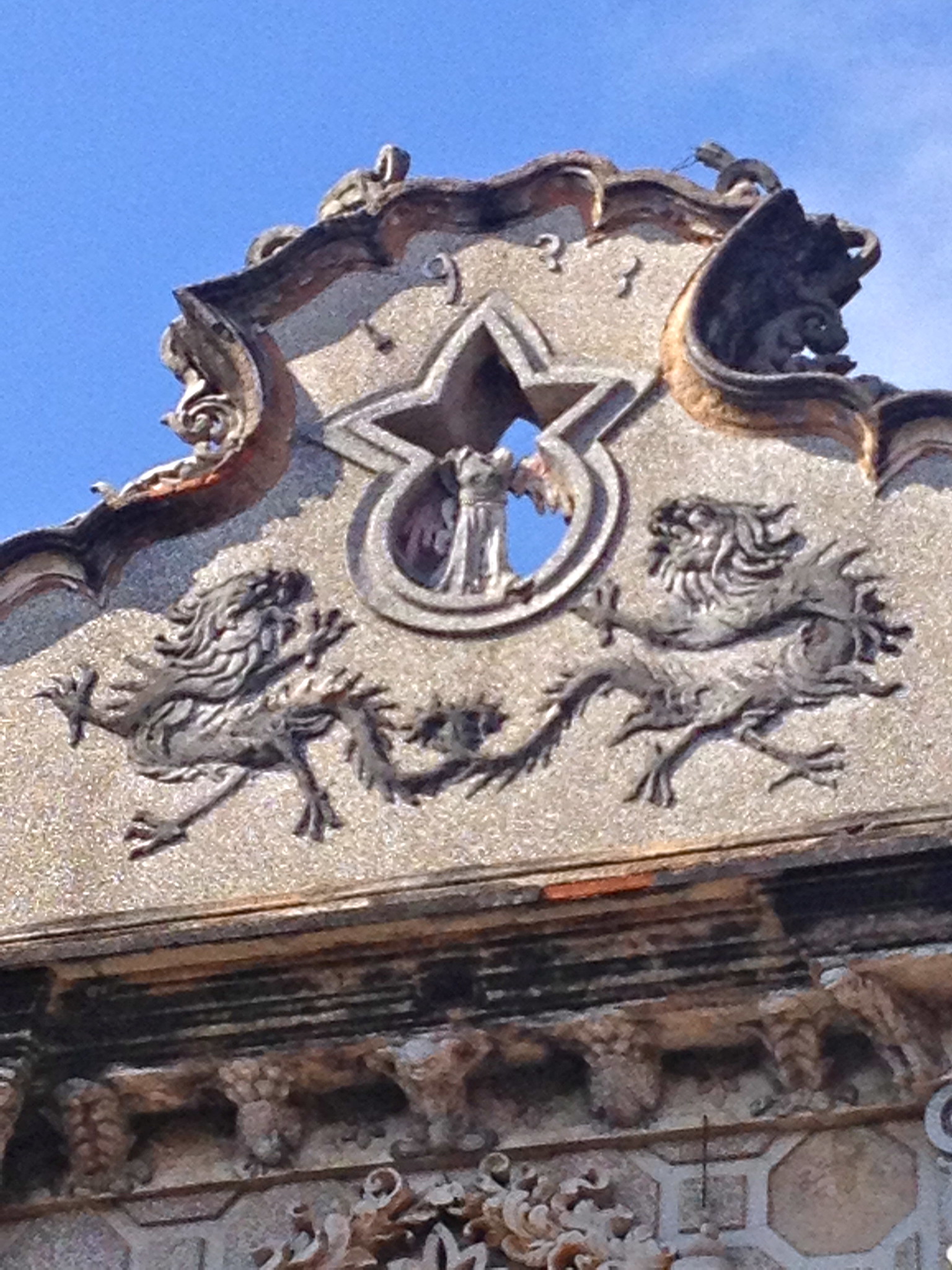
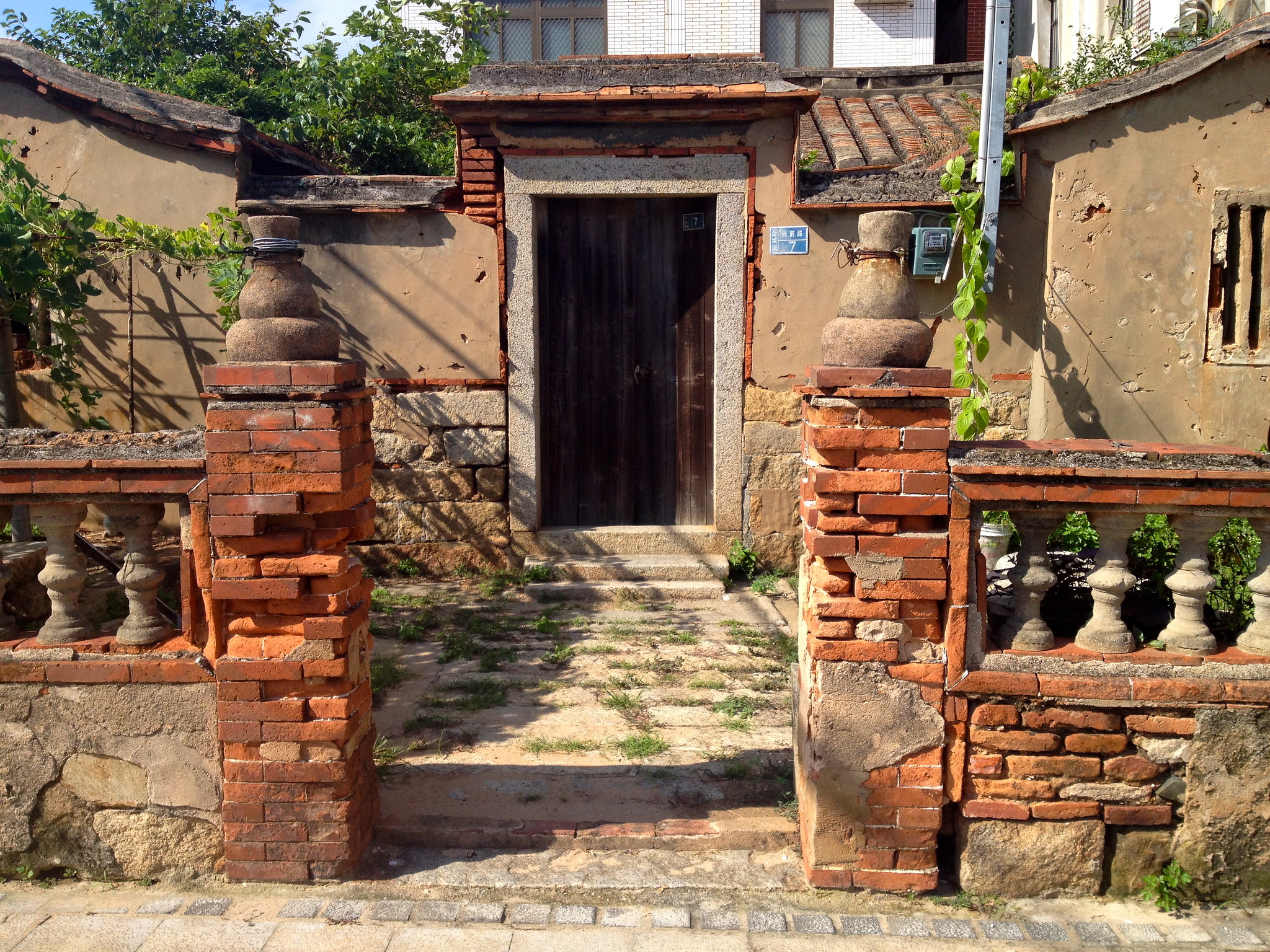
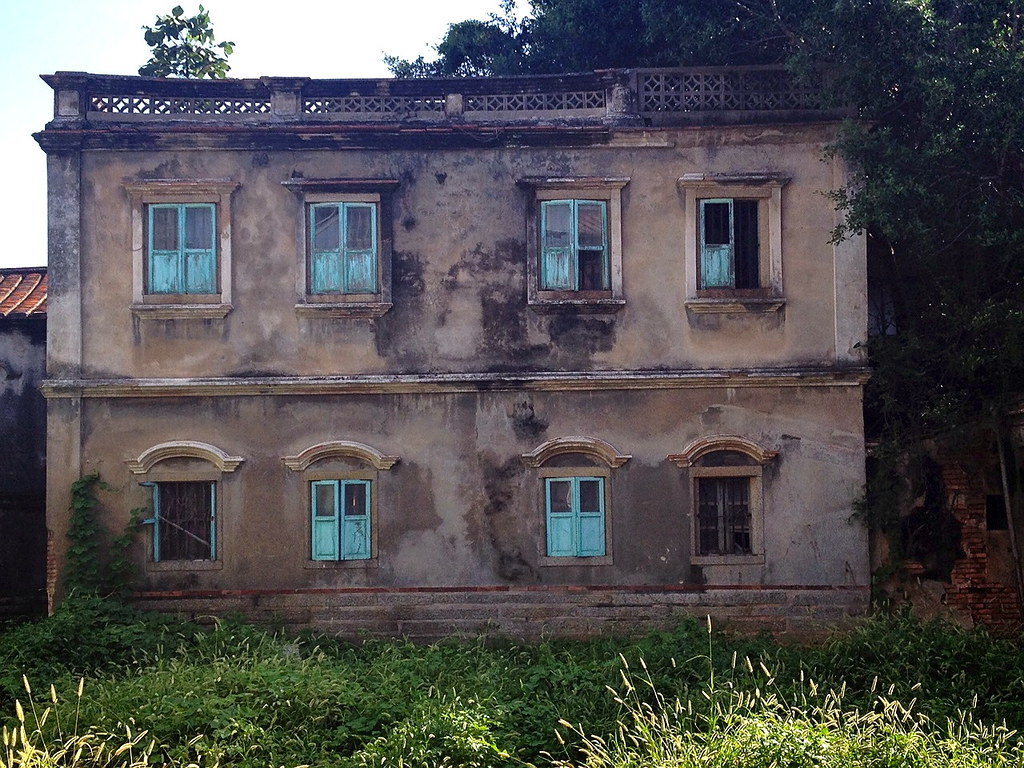
Second, how many buildings still in use retained their traditional flavor:
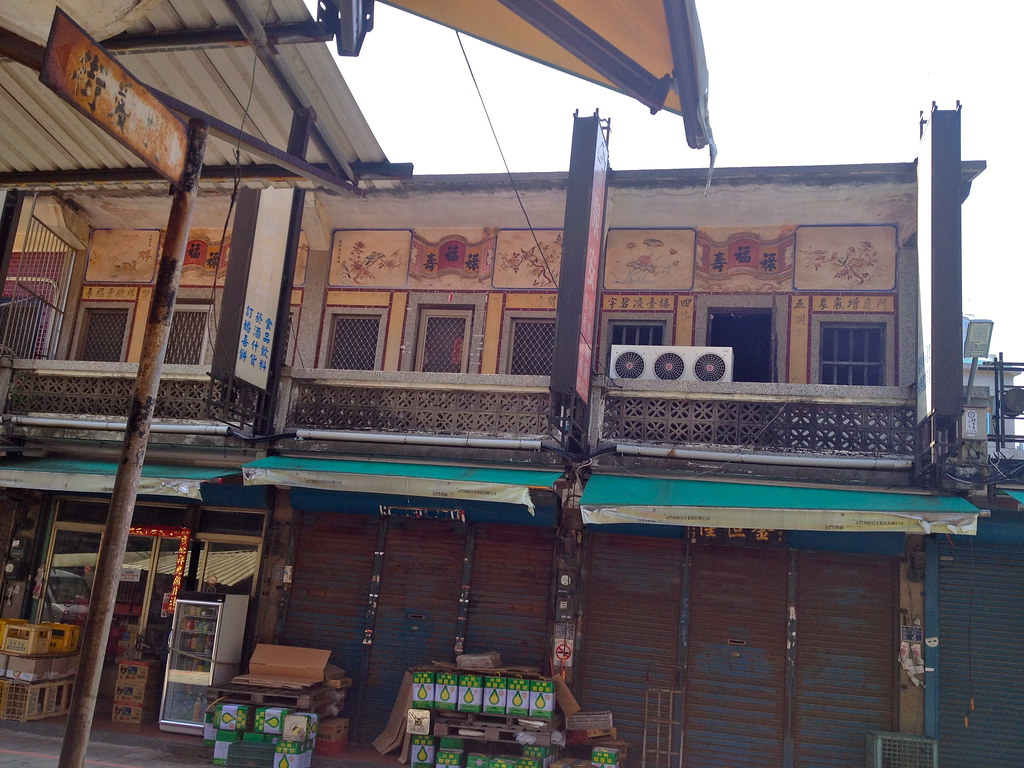
Third, the extent to which a lot of iconography - old, but also at times new - conflates the KMT with the Republic of China, in a way you just don't often see in Taiwan proper these days (I'm not sure I've ever seen it).
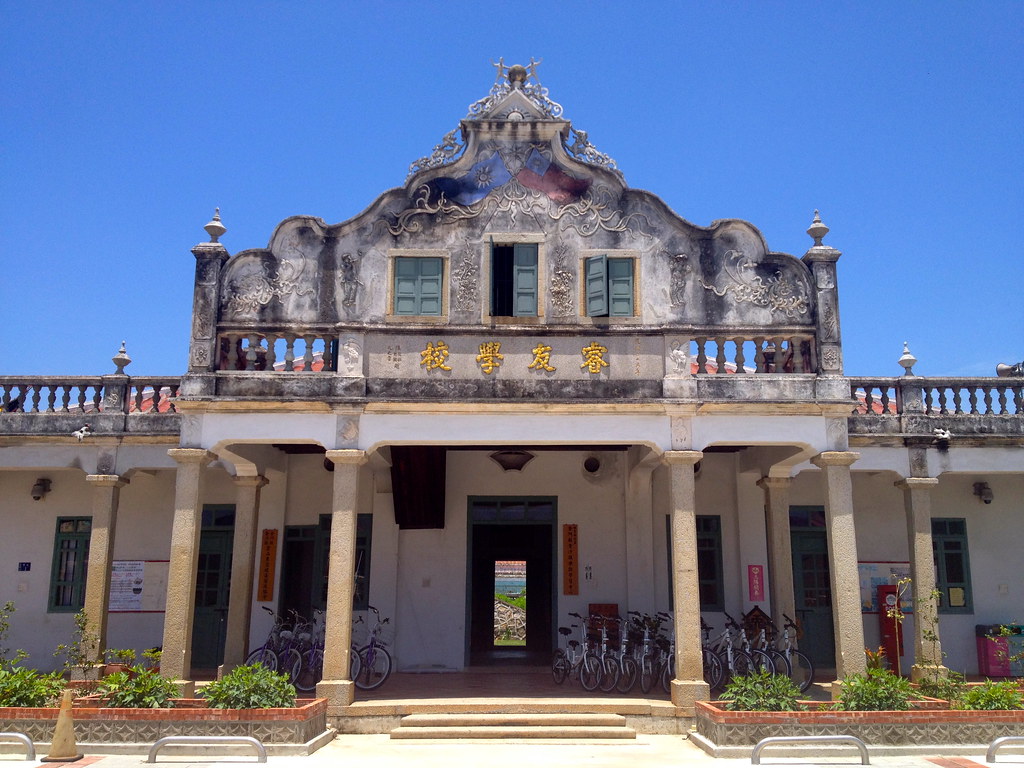
Rui You School (not functional as far as I know) on the eastern side of the island
Check out the top of that building's arch - it's hard to see in the photo, but it's a KMT flag crossed with an ROC flag. Not something I can recall seeing in on the Taiwan mainland, although I am sure it must have at one time been quite common.
On our first day in Jinmen, we took a nap (our flight left at some crazy early time) before driving first into Jincheng city and then over to Shuitou as the sun set. I won't bore you with too many details, as Jinmen is a well-documented destination, and I primarily want to show off photos! We walked down Mofan Street, passed the maternal chastity arch, and checked out the Qing dynasty military headquarters before heading a bit downwind to the Kui pavilion - interesting in its own right but we had more fun wandering the narrow alleys and warrens between mostly abandoned buildings, which were alive with lots of scurrying cats - some well-fed, others not so much.
One quick thing worth noting before we get into photos - the Qing military headquarters' side rooms are used for storage for much of the year, leading to peeks in windows that reveal scenes such as this:
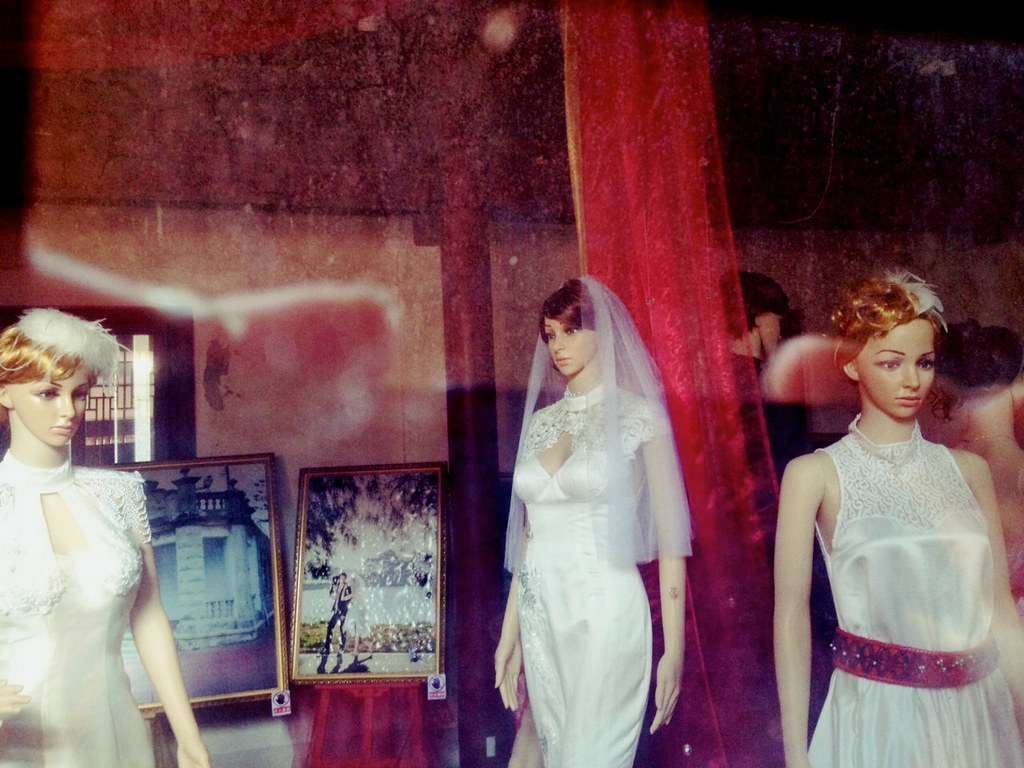
AAAAAHHHHH!
I was so intrigued by this creepy room of bridal mannequins in retro dresses that I went to some effort to ask about it - not really sure how Qing dynasty military operations and mid-century Western brides were related. Turns out they're not, this room is just given over to a local business for storage.
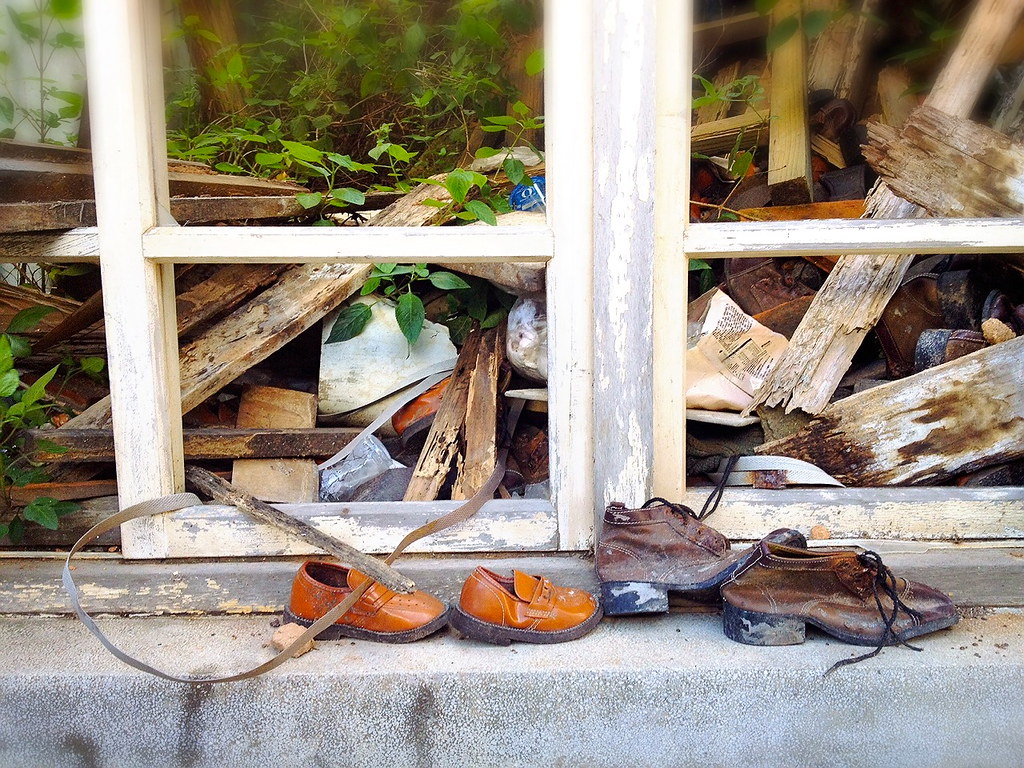
Ruined buildings around Kui pavilion
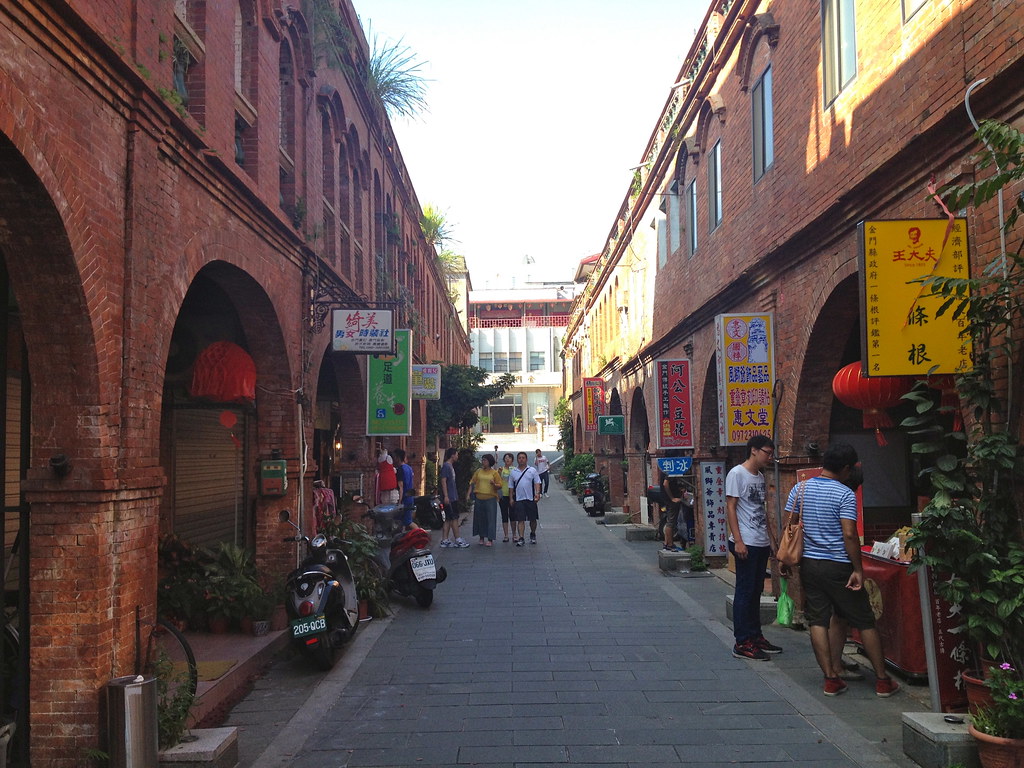
Mofan street - nice to walk down but not a lot going on
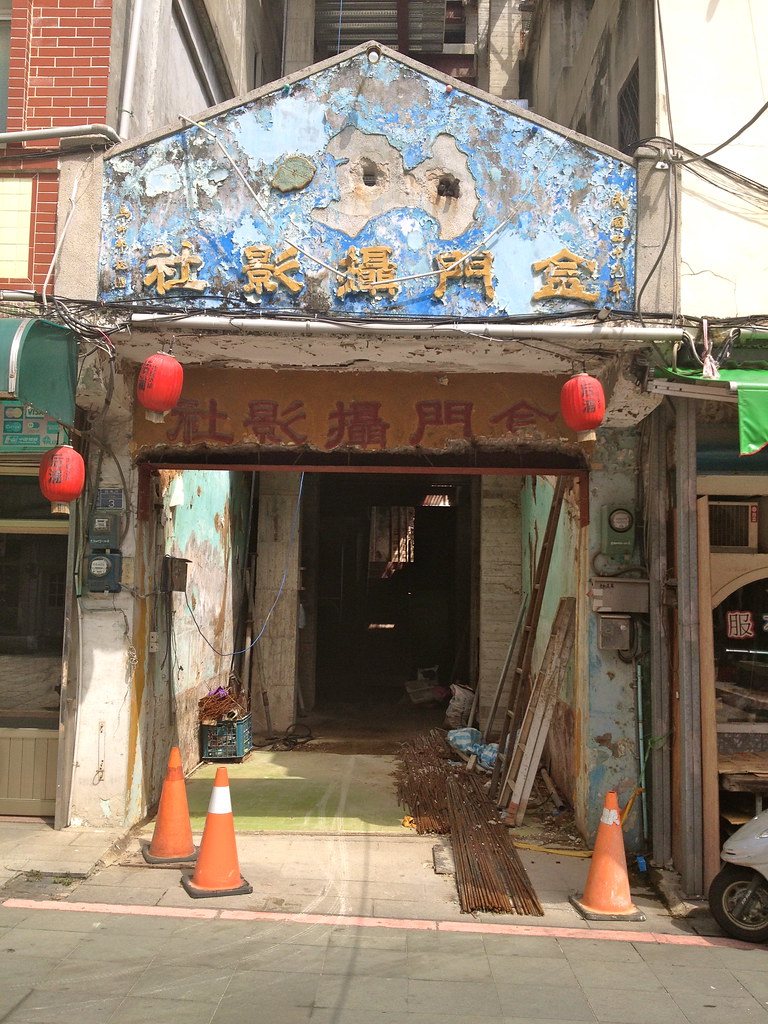
Another interesting old building near the Qing military headquarters
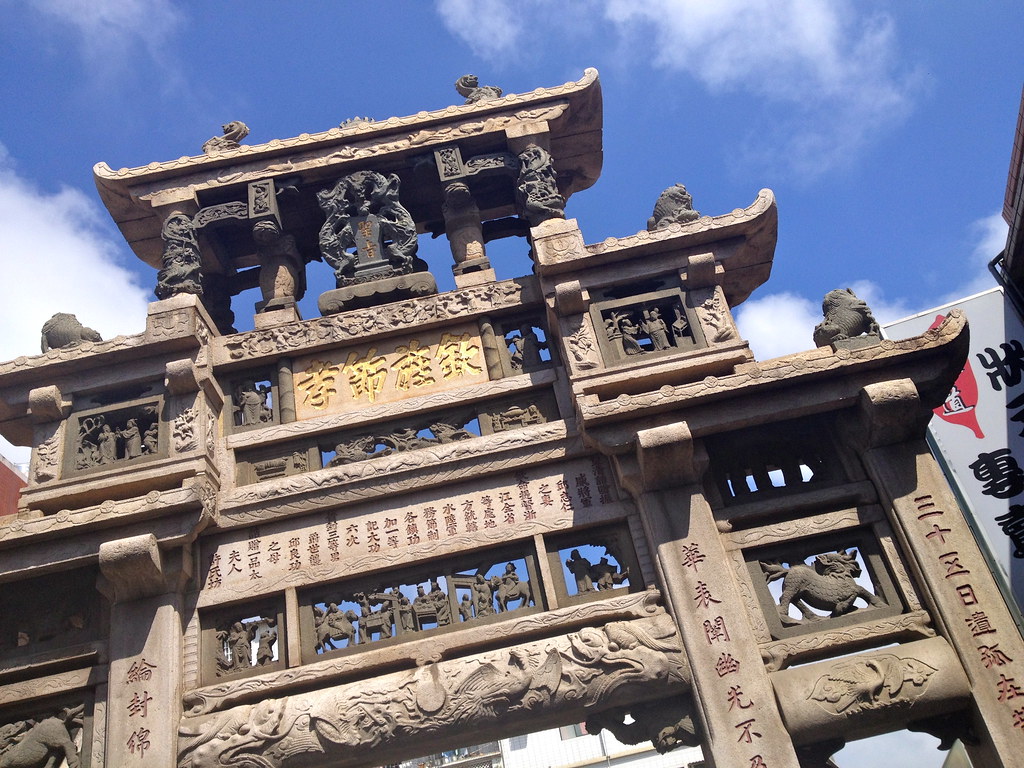
The largest surviving memorial arch in Taiwan (Qiu Liang-gong's maternal chastity arch)
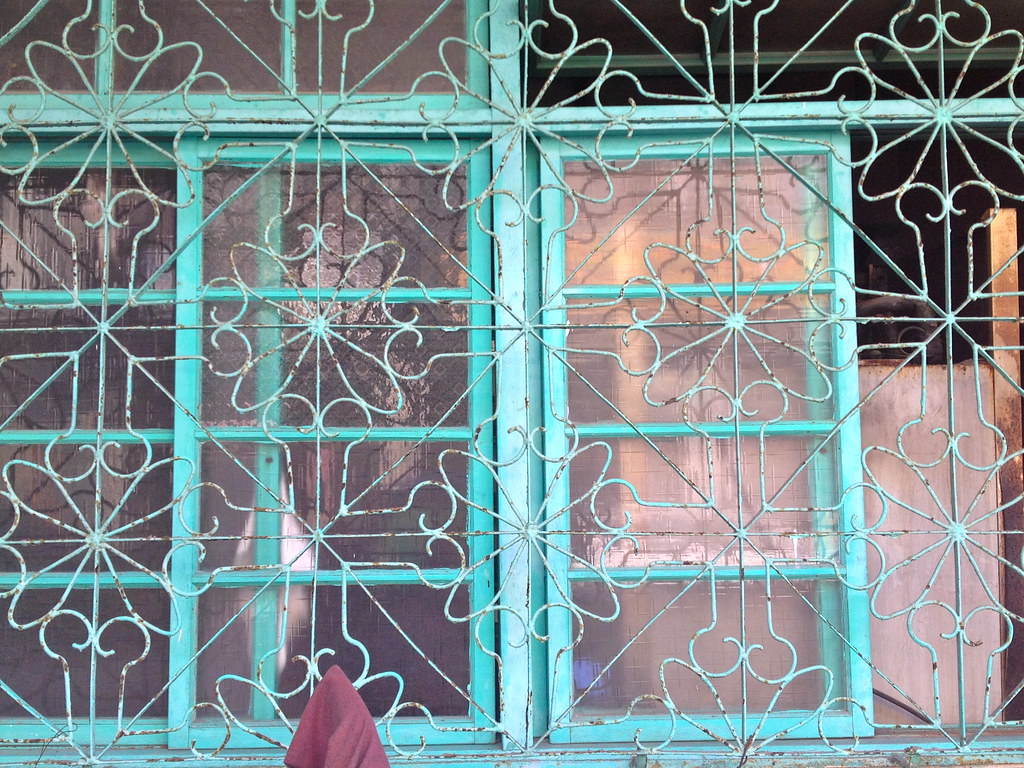
Just a pretty window casement
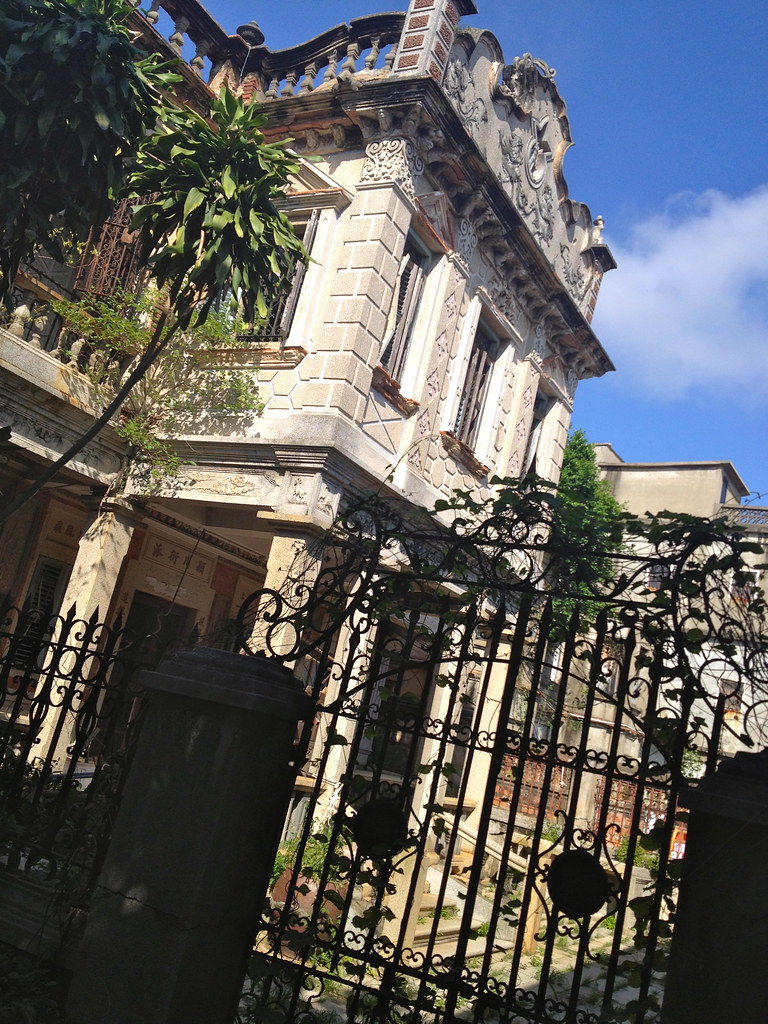
Creepy, cool Frankensteiny abandoned "Western style house" near Kui pavilion
By the way, the Rough Guide recommended oyster thin noodle place near the arch, and the scallion-oyster bun place just under it? Both excellent. Worth it, even though they're in a guidebook. On Minzu Road just near the turn-off to the memorial arch are a few shaved ice places. The one we went to was also excellent, and I have it on good authority the others are too.
For those who need a place to relax, get some air conditioned cooling-off time or just have a decent cup of coffee, near the end of Mofan Street there are two cafes, and the one we went to was pretty good.
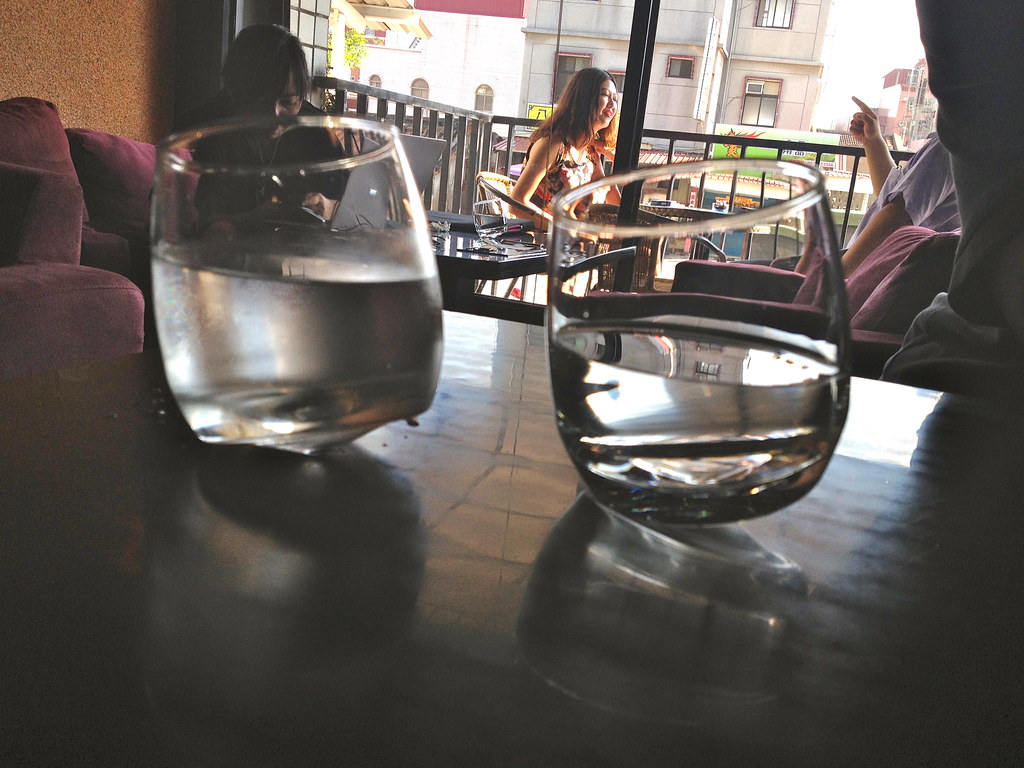
Special water glasses are designed to sit at an angle at this cafe, which also serves coffee grown in Taiwan among other things.
In Shuitou, which is very popular with tourists (and justifiably so), we wandered a bit until it got dark. There is a pretty good restaurant here that serves "Jinmen local food" at a set price per person - no menu, they just bring you a set number of dishes according to the size of your party. It's set in an old foreign-style house (just ask around). The inside looks like this:
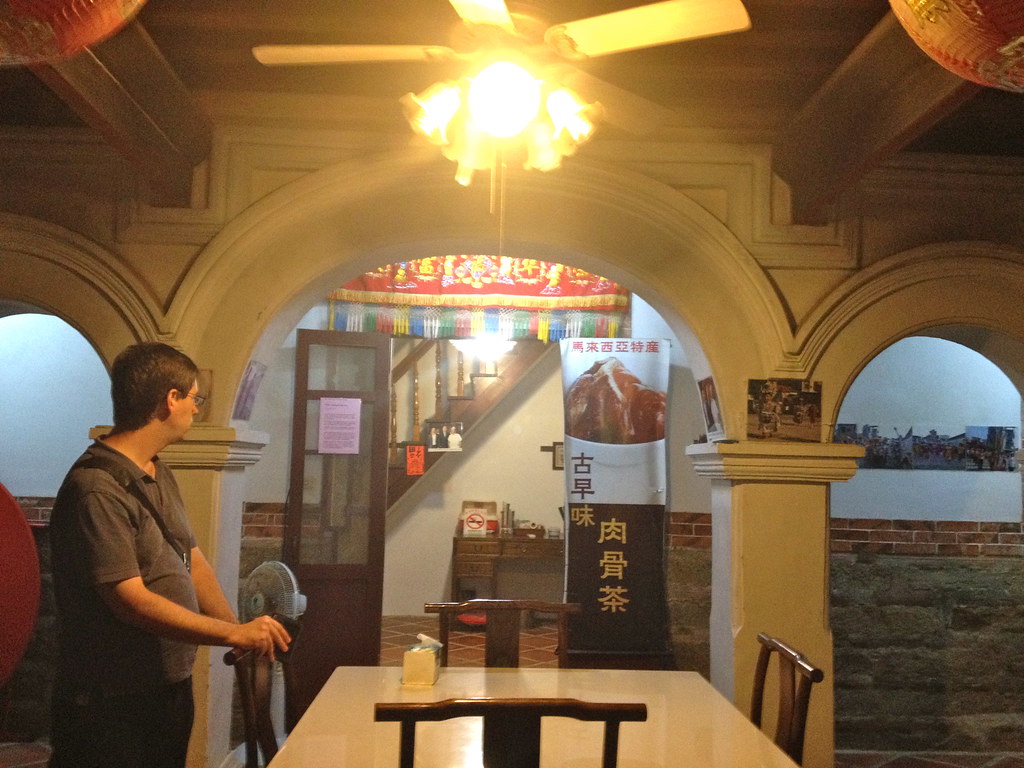
One of the more ostentatious old houses is also a cafe, which is worth a stop (just to get the chance to go in), and is open until 5pm. They don't have food per se, except cafe style snacks like waffles, which are okay but nothing to write home about. Chinese tour groups sometimes come here, which may account for the Mao signs.
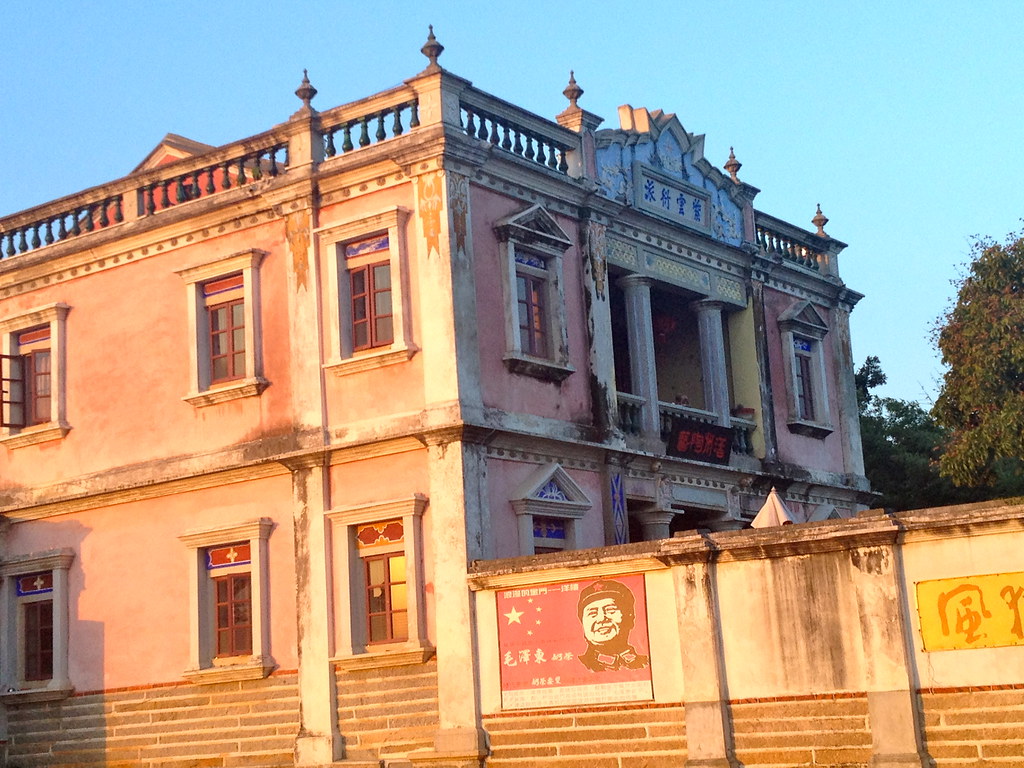
The next day, I realized that I had not seen any wind lion statues at all - and with wind lions being, well, THE famous thing from Jinmen (other than that historic battle, and Kaoliang liquor), so rather than hit sights in the guidebook, we just circled wind lions on a local map (they are all labeled) and took off driving to see how many we could find, with the idea that we'd see interesting stuff along the way. This is where the whole "chasing the wind lions" title comes from - we literally did that, basically for an entire day!
We drove out to the far east of the island, passing through Jinsha, Shamei, Shanwai and Shanhou. Here's the thing about posting in December about a trip you took over the summer, for which the map you'd used, on which you'd circled your various planned destinations, was so tattered by the end of the trip that you threw it out: we stopped in a whole bunch of interesting places not in any guidebook (well, not in our edition of Rough Guide anyhow), but I can't remember exactly where those places are.
I'll do my best - here are some of the wind lions we found, and things we saw along the way. First stop, Huishan Temple (會山寺), just off Huandao E. Road.
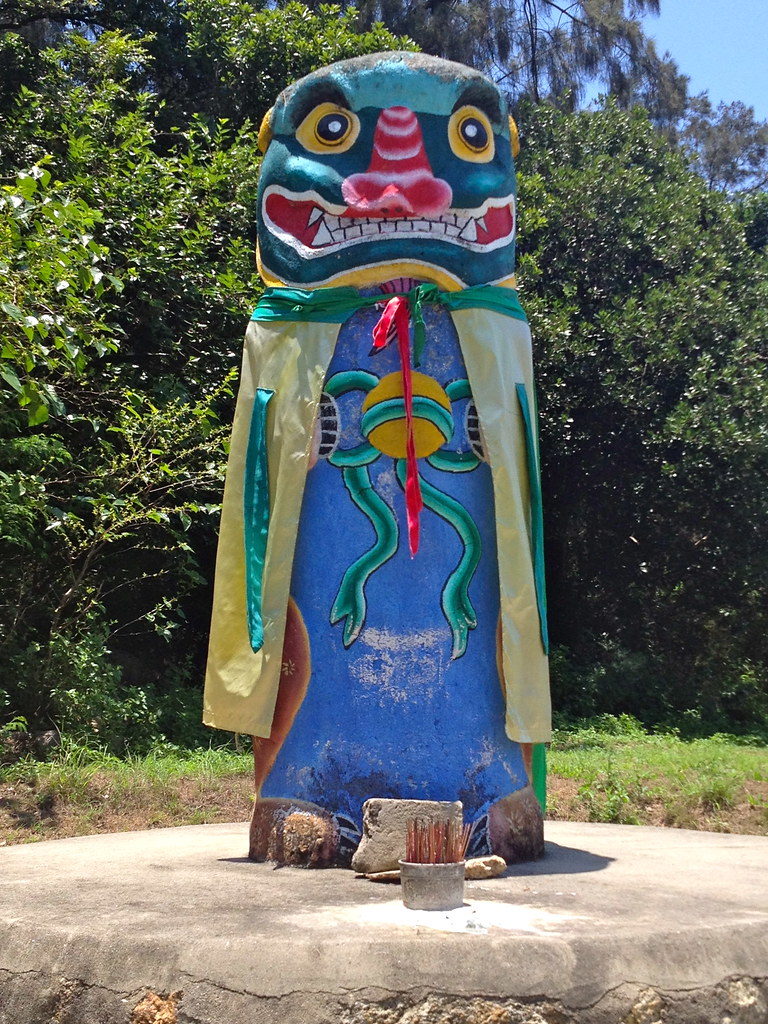
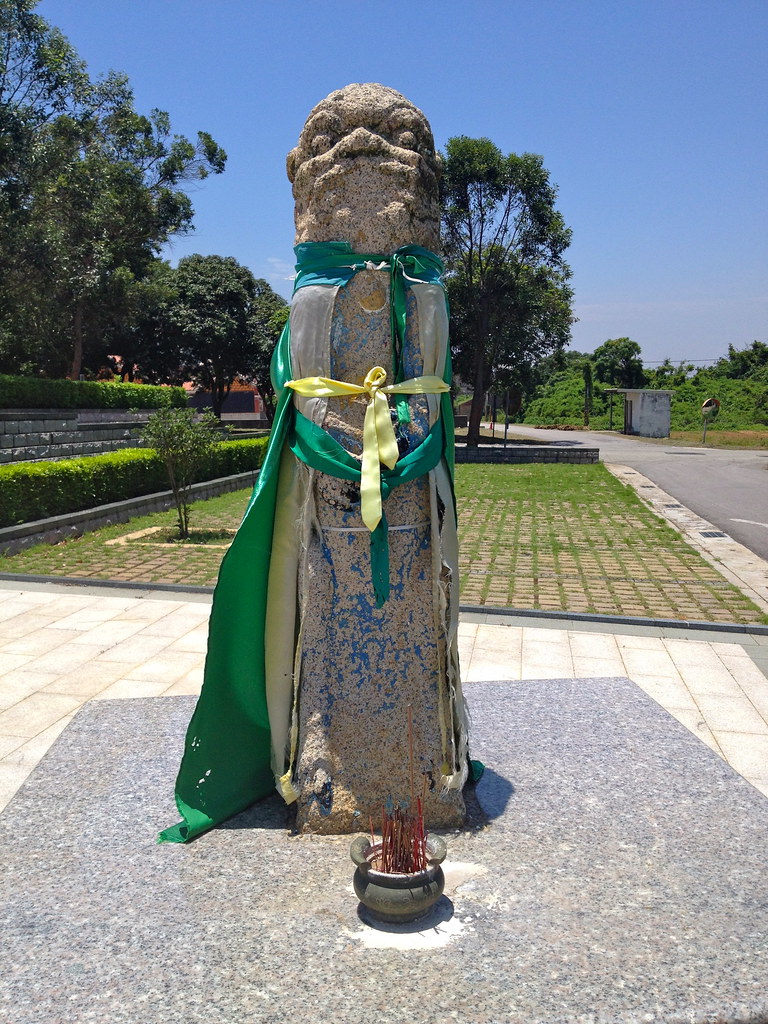
These two lions are a short walk behind (the former) and just out front (the latter) of the temple.
This is not the temple, this is an example of an old house in this area, which is well worth stopping and walking around in despite a few angry dogs, that is still very much in use and beautifully preserved.
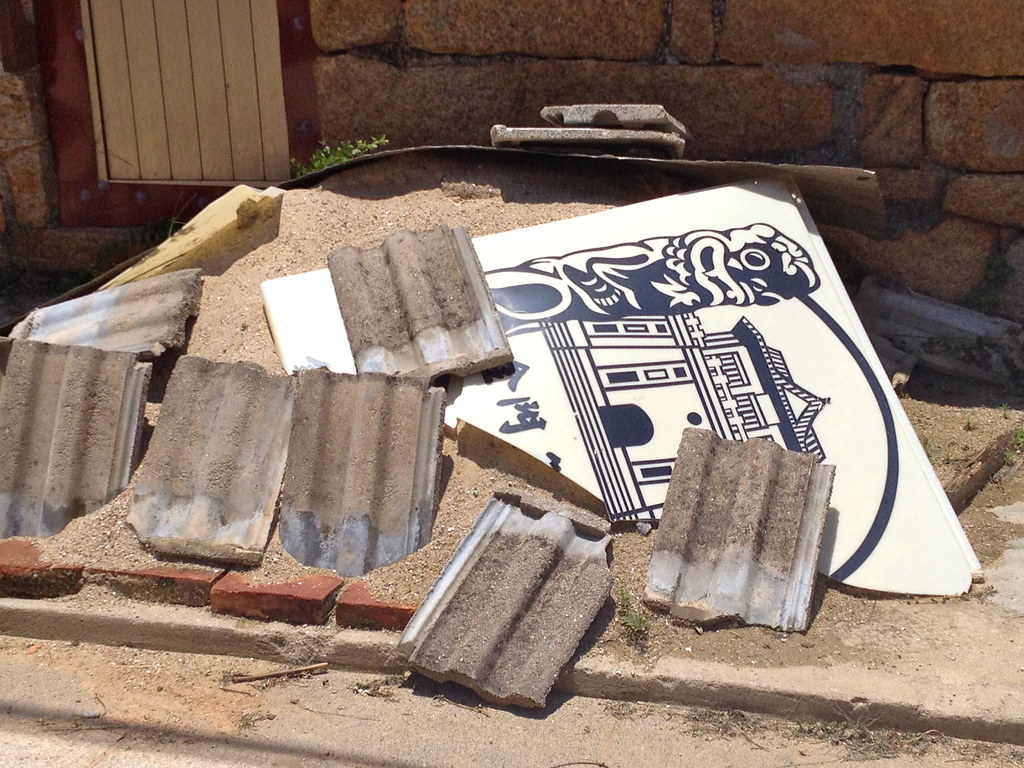
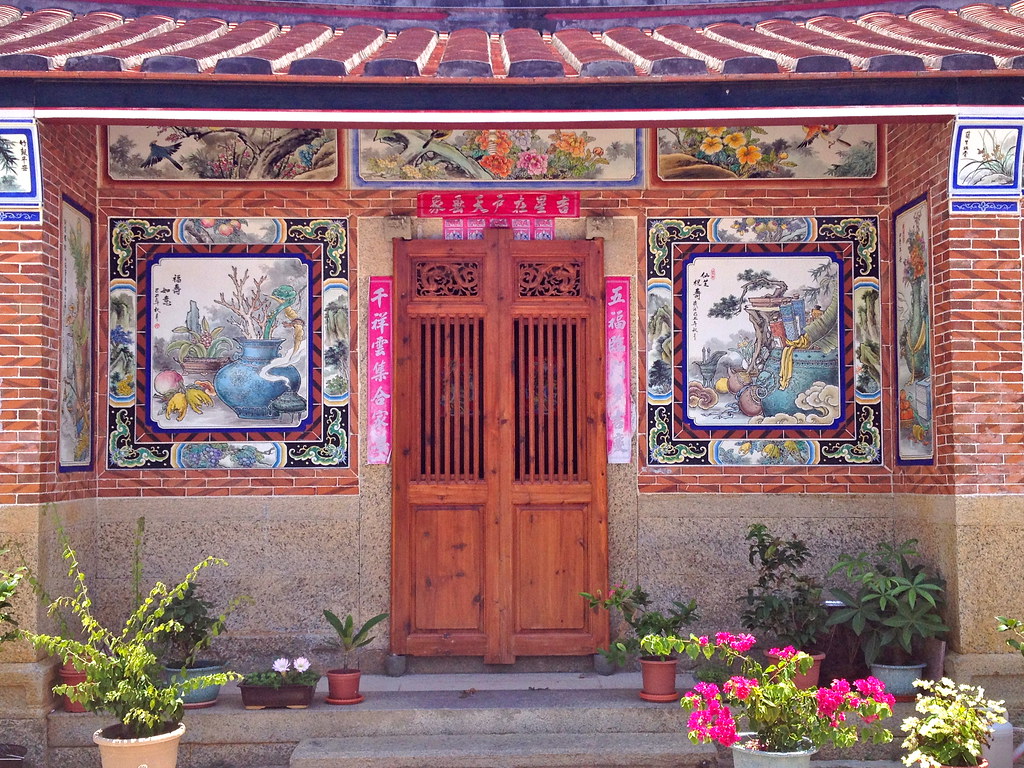
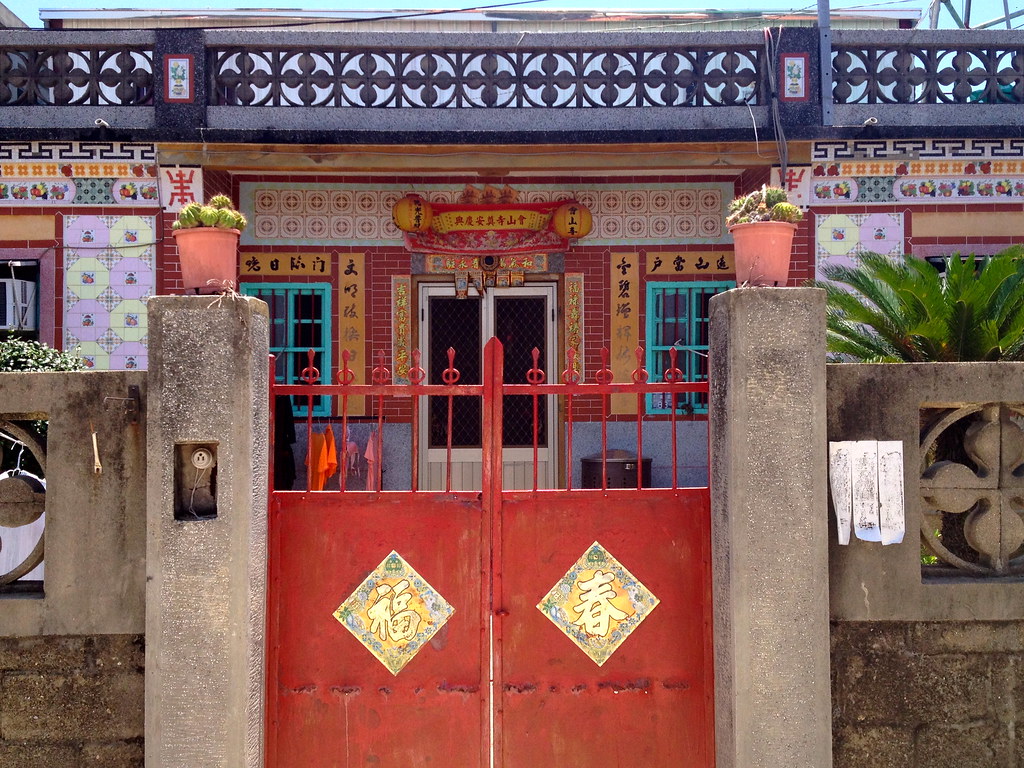
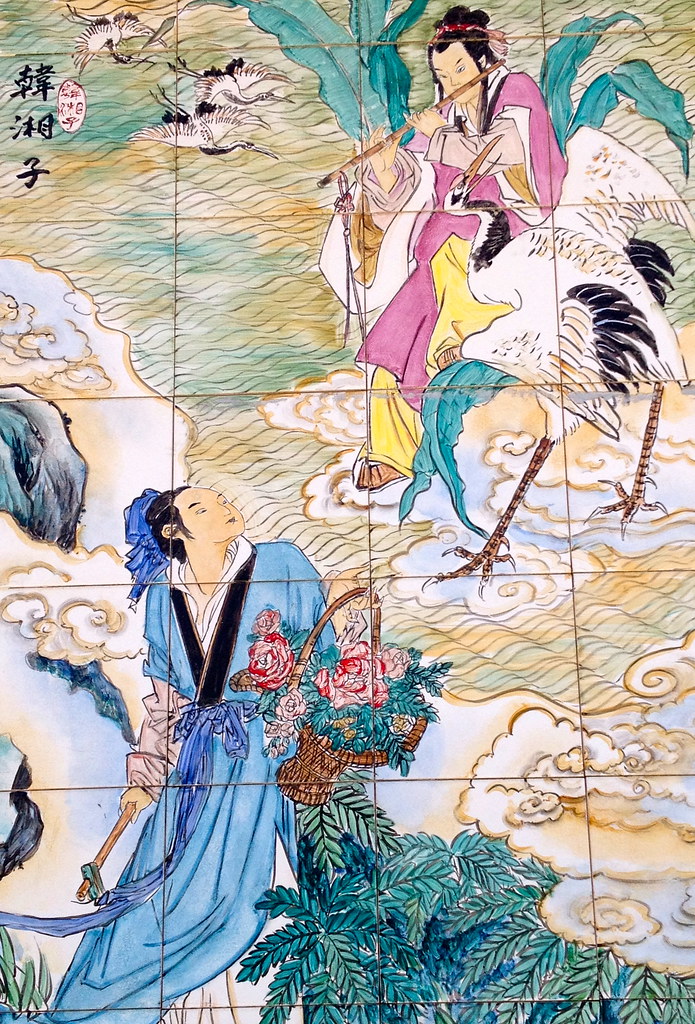
A short drive - also walking distance - from here is a small village, notable (and most easily found) for its old movie theater (closed), which was spruced up and used as the set for the movie Paradise in Service, which I have never seen (but would like to). You can wander in and out of the old shops, which are outfitted with period furniture and even products, at least insofar as they needed to be to function as a movie set. The whole thing is now maintained as a tourist attraction and is genuinely worth a stop, even if none of the old shopfronts are authentic (and I'm not sure they are).
There's a decent cafe here called 心情咖啡 that has good stuff and is a nice place to take a break.
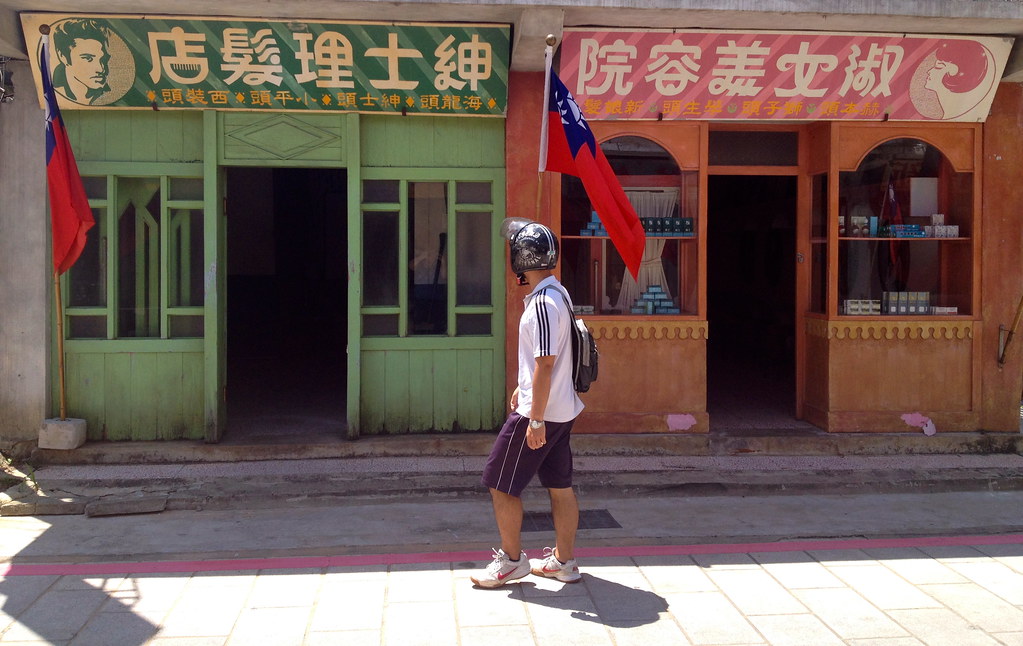
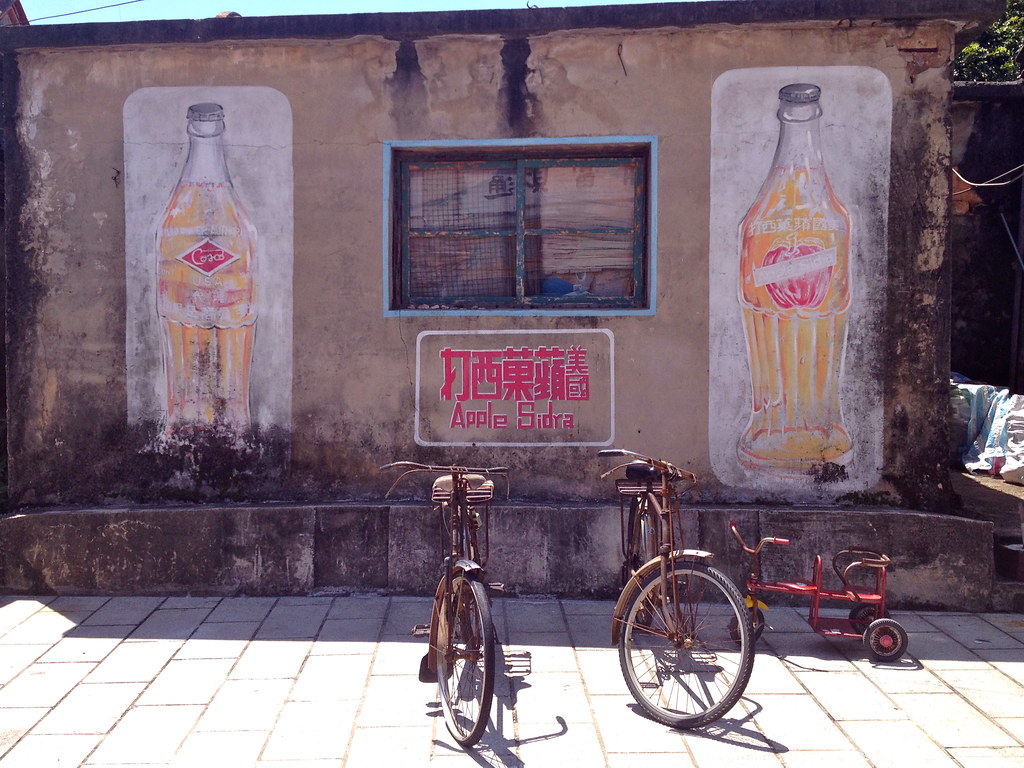
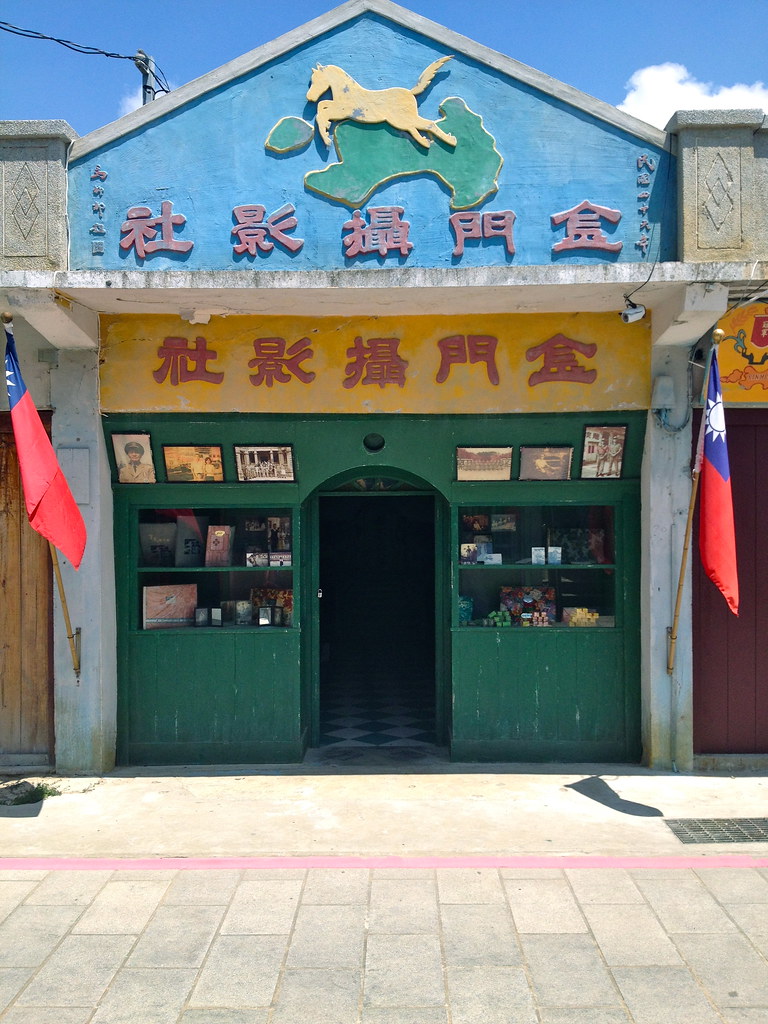
The old movie theater was almost certainly a part of the movie set, and features a few old-style hand-painted movie posters (which are probably too good quality to have just been the background for a movie shoot).
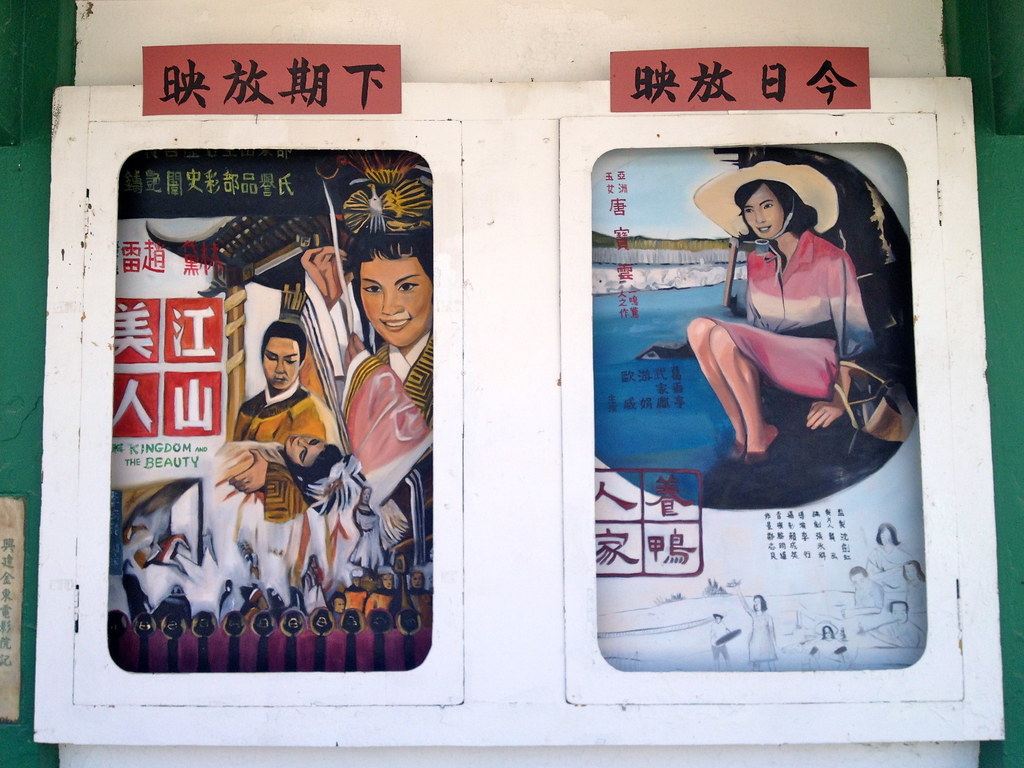
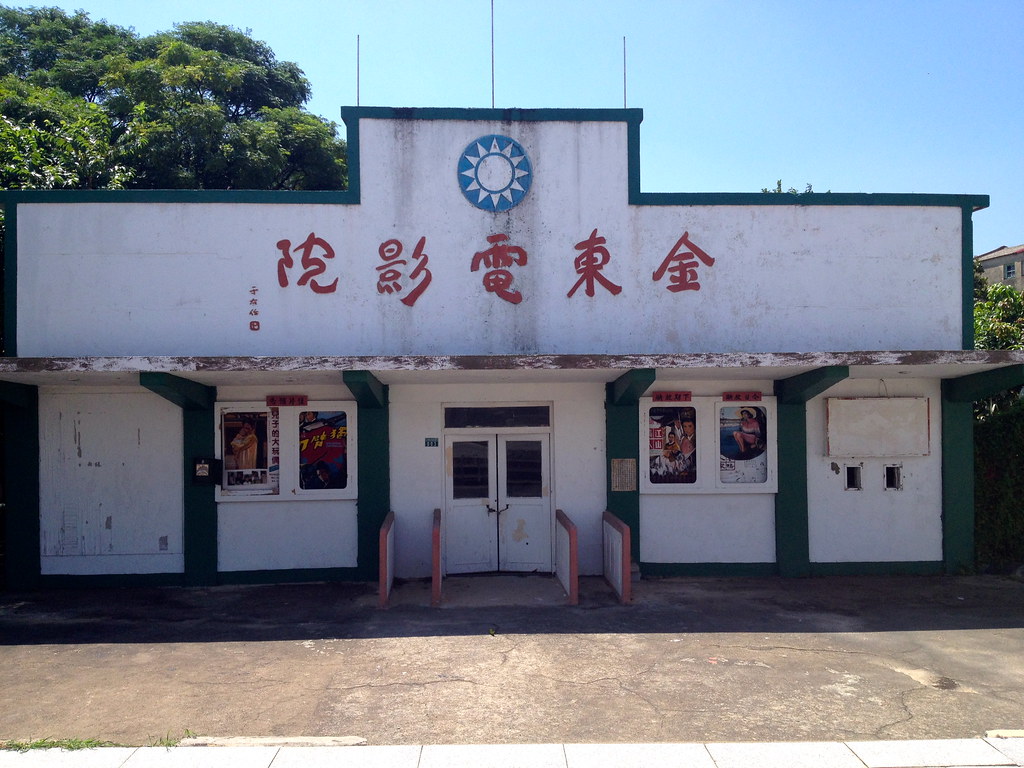
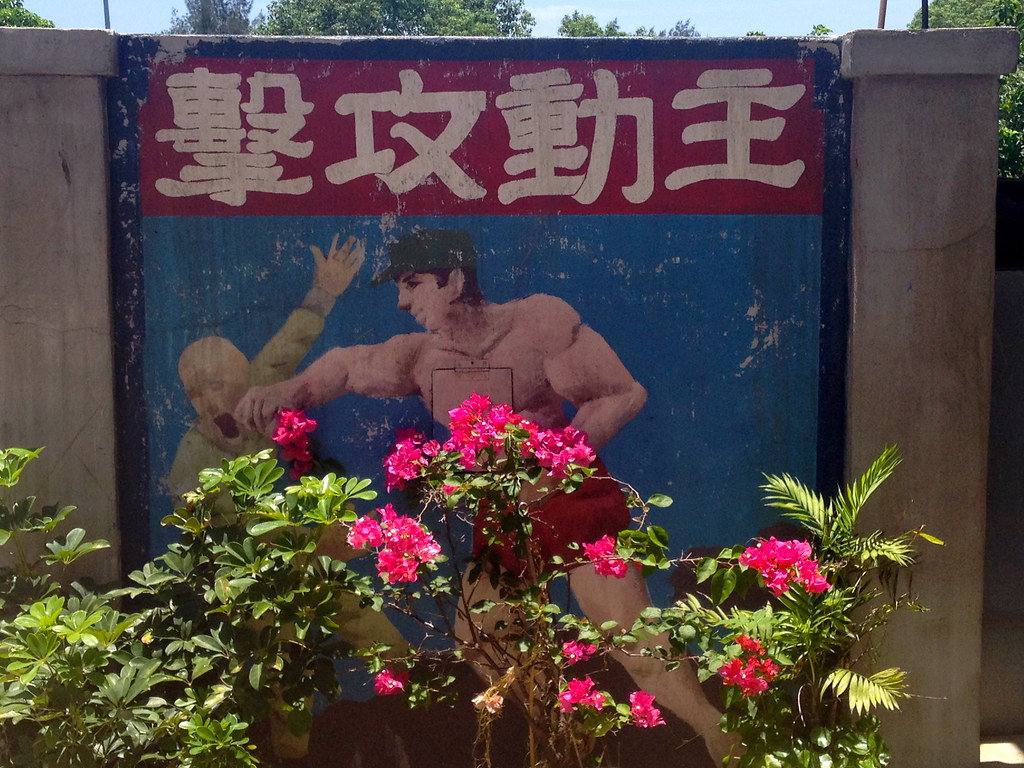
A big, muscled ROC soldier takes out a Voldemort-like Communist
A little further along Yangsha Road, where it meets Dashan Road, you'll come to another set of long-neglected foreign-style houses (at least one has a population of geese in its front yard) and the Rui You school, pictured near the top of this post. There are a few more wind lions around there (I think I've got the correct wind lions matched to their locations:
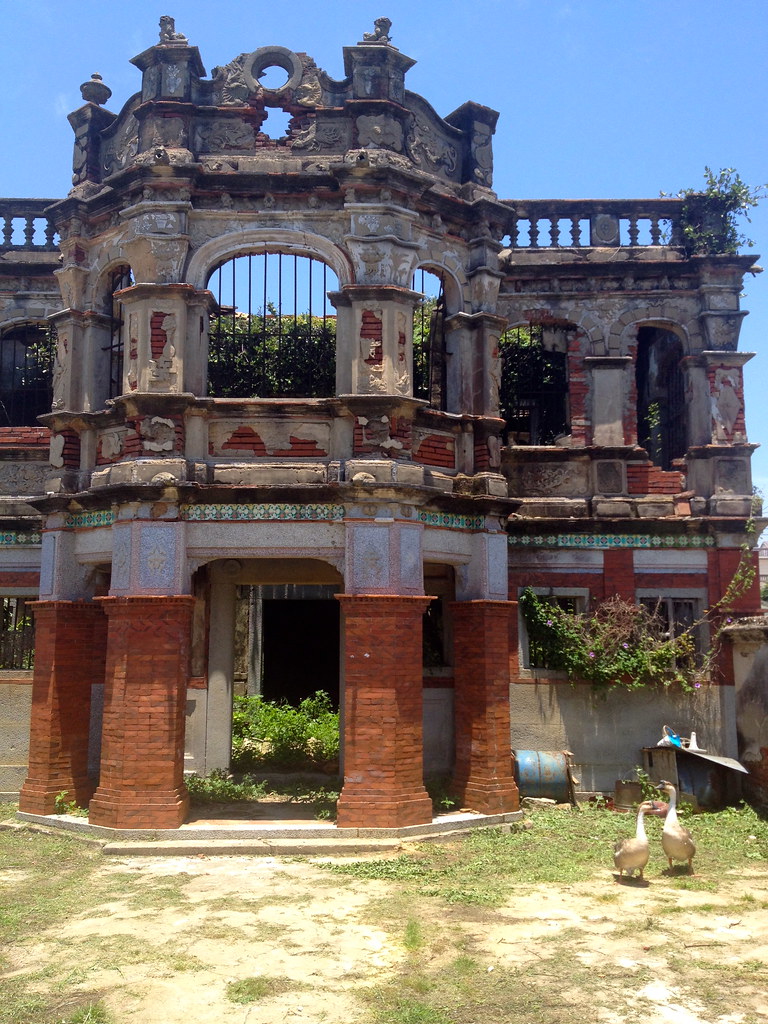
After the "Paradise in Service" movie set, I have to say, I was more intrigued by old-style buildings with old-style signs that are still in use, and not refurbished for a movie.
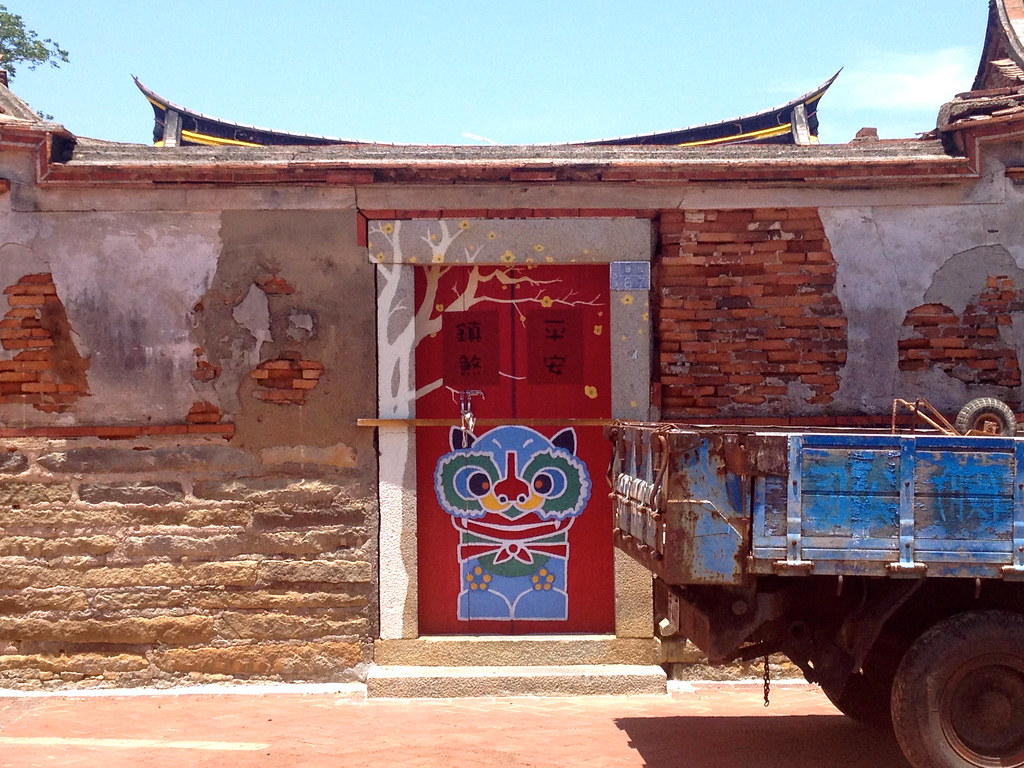
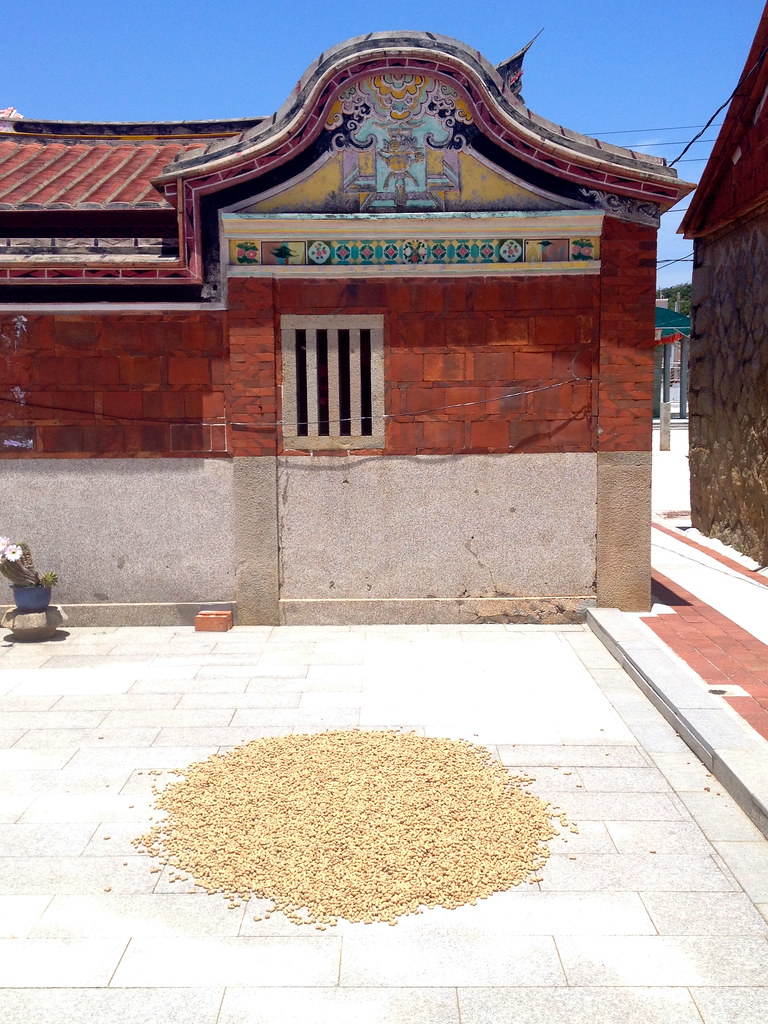
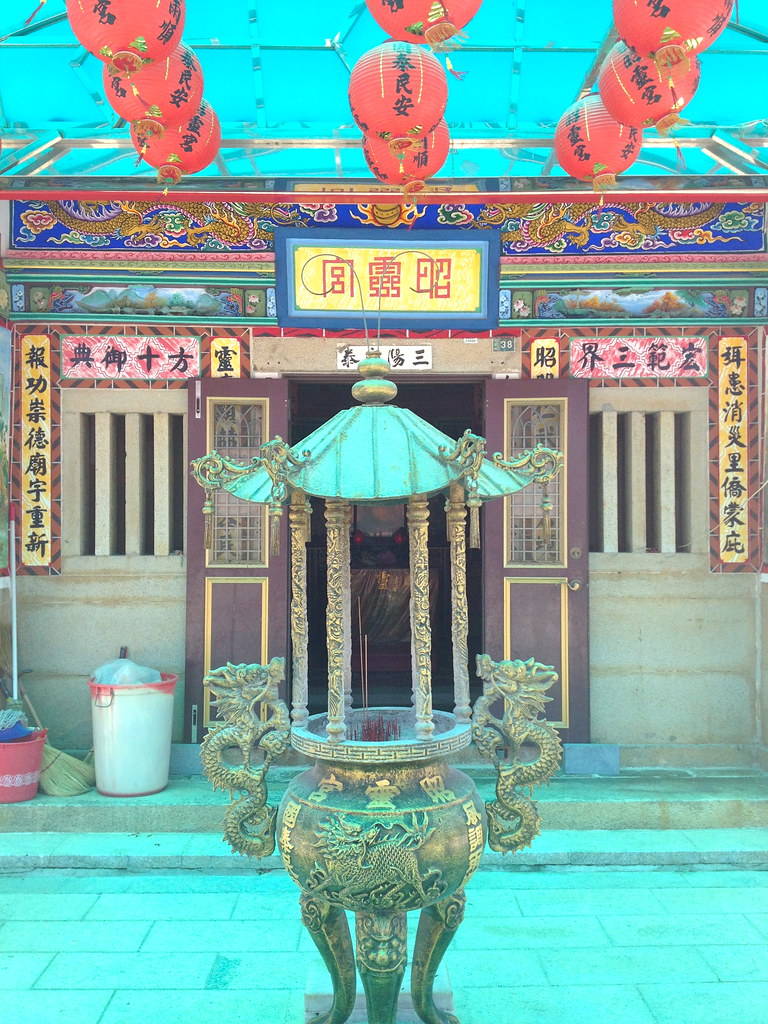
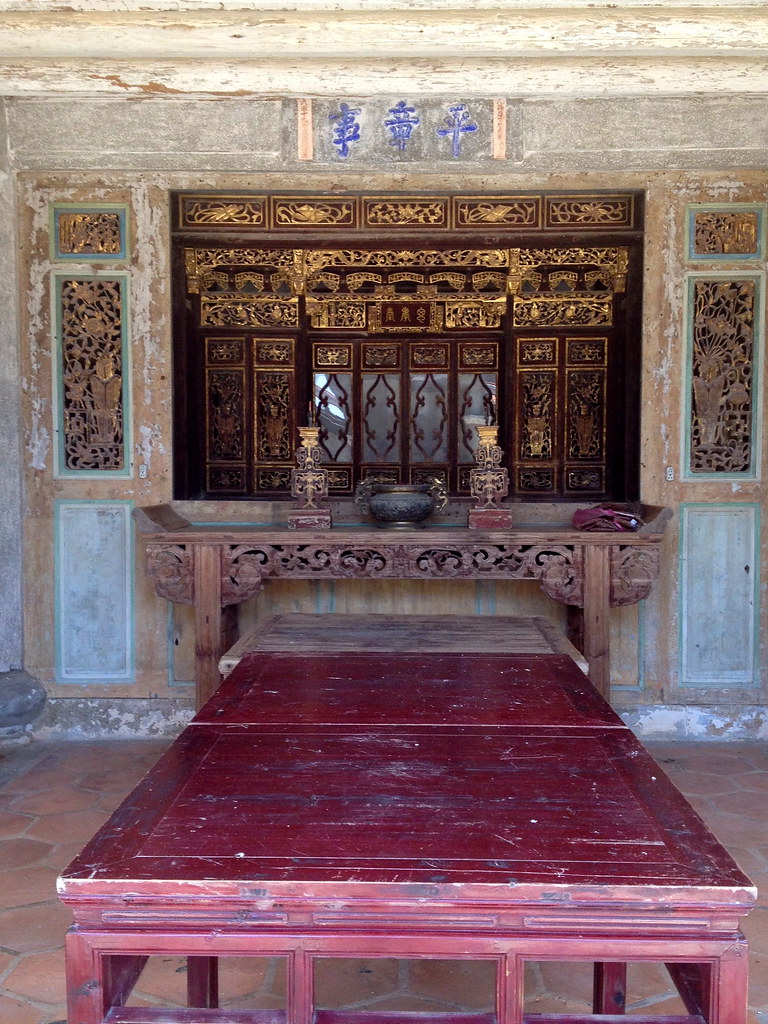
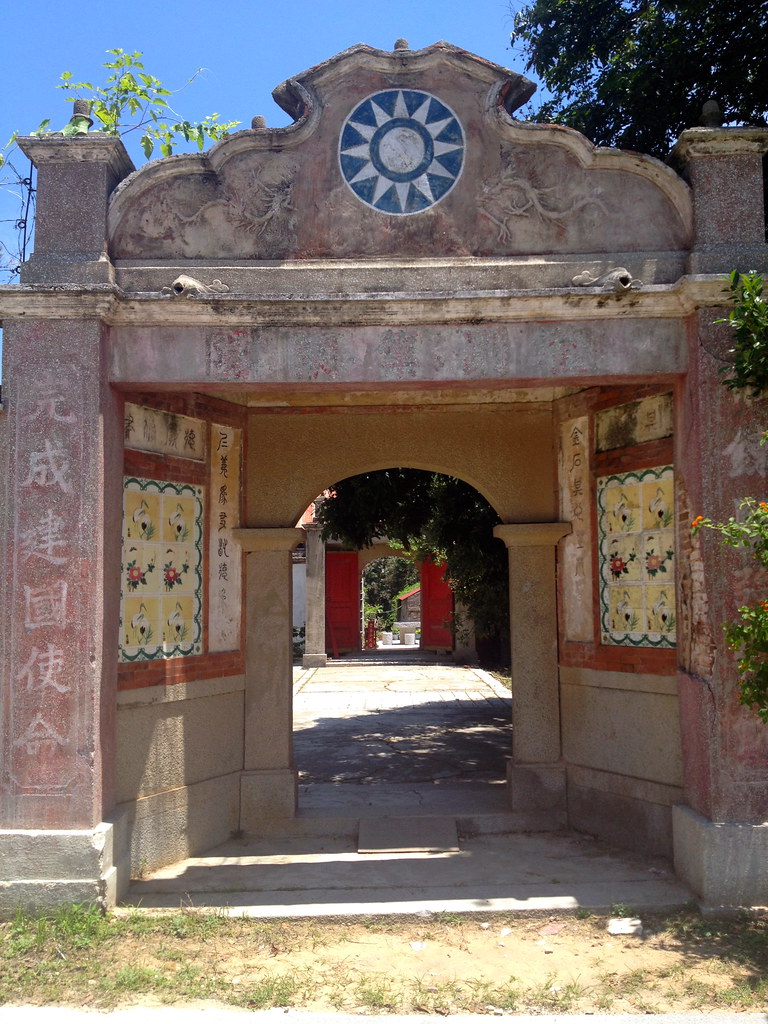
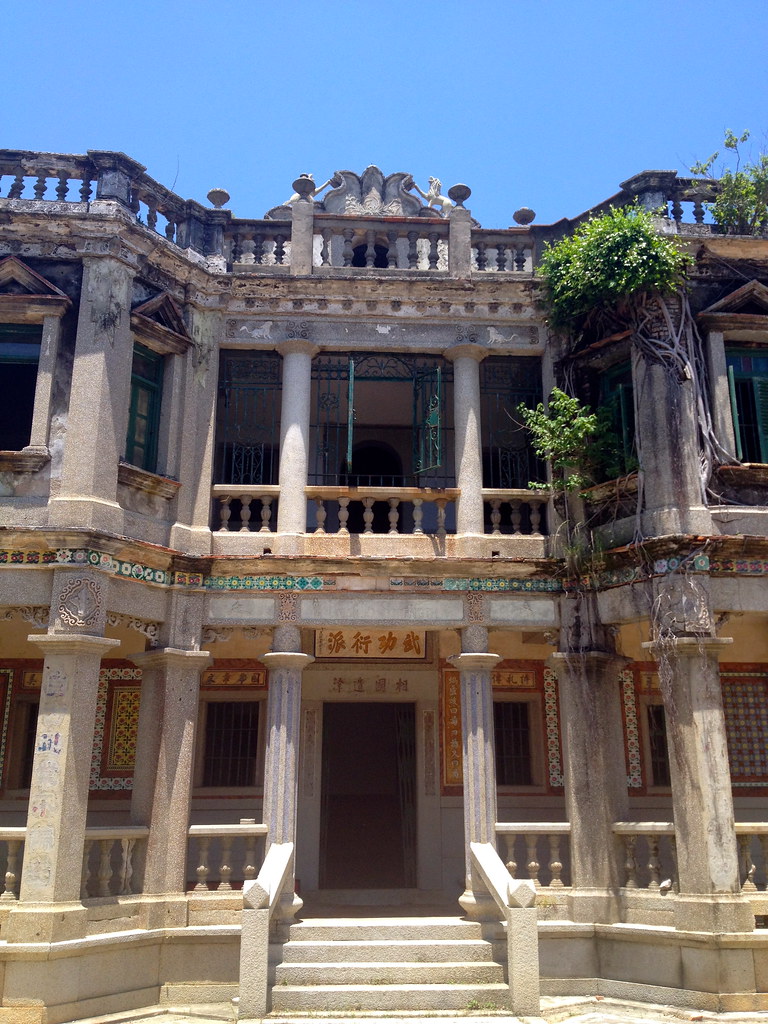
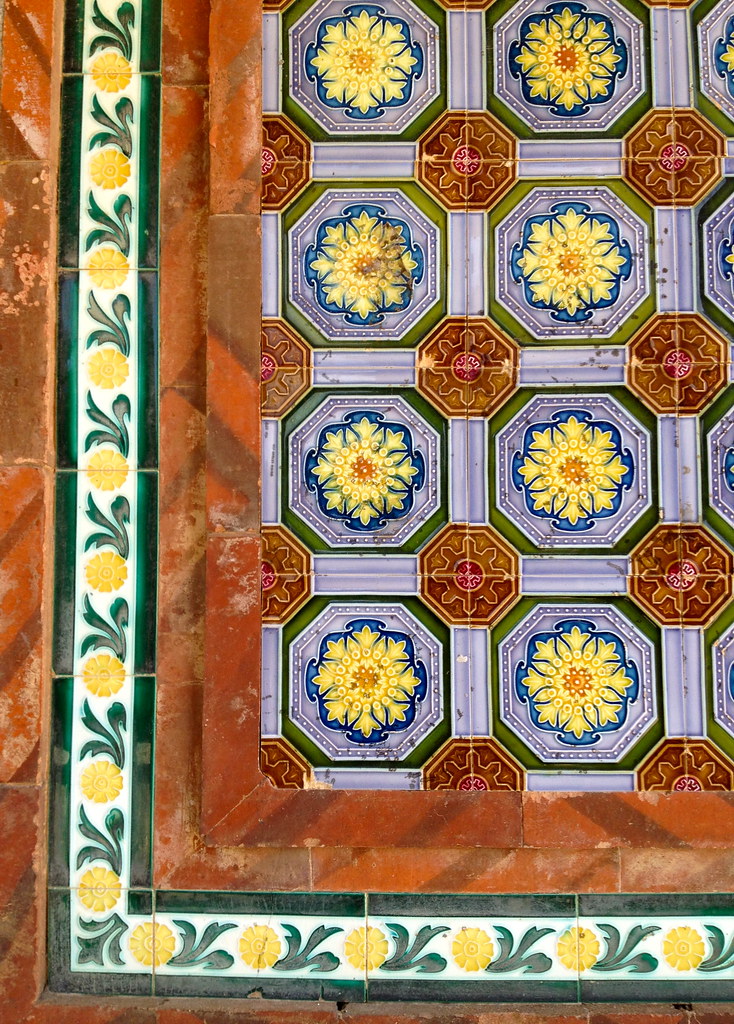
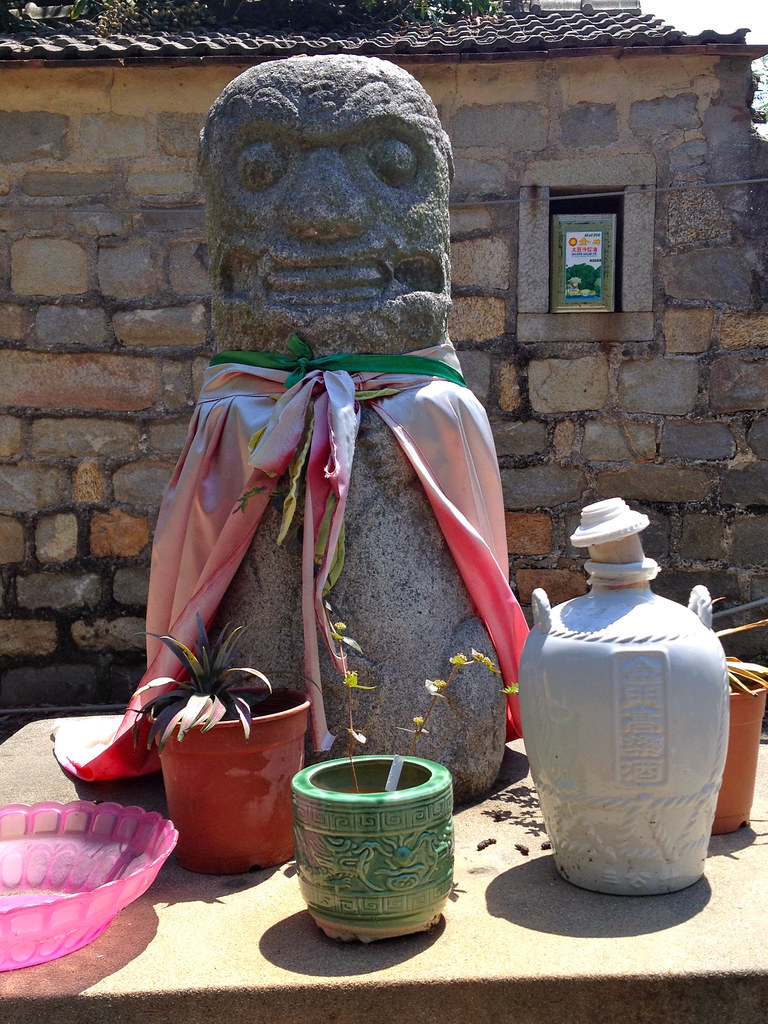
At some point we passed through Shamei and got some of the famous shaobing there (tasty - worth it - check your guidebook) though my favorite part of this section of the drive was stopping to wander some of the quiet backstreets. It is easy to get very hot and very tired in Jinmen, so we took a rest on a stoop in one of the older, more shambling back lanes and chatted with locals while local cats lazed about.
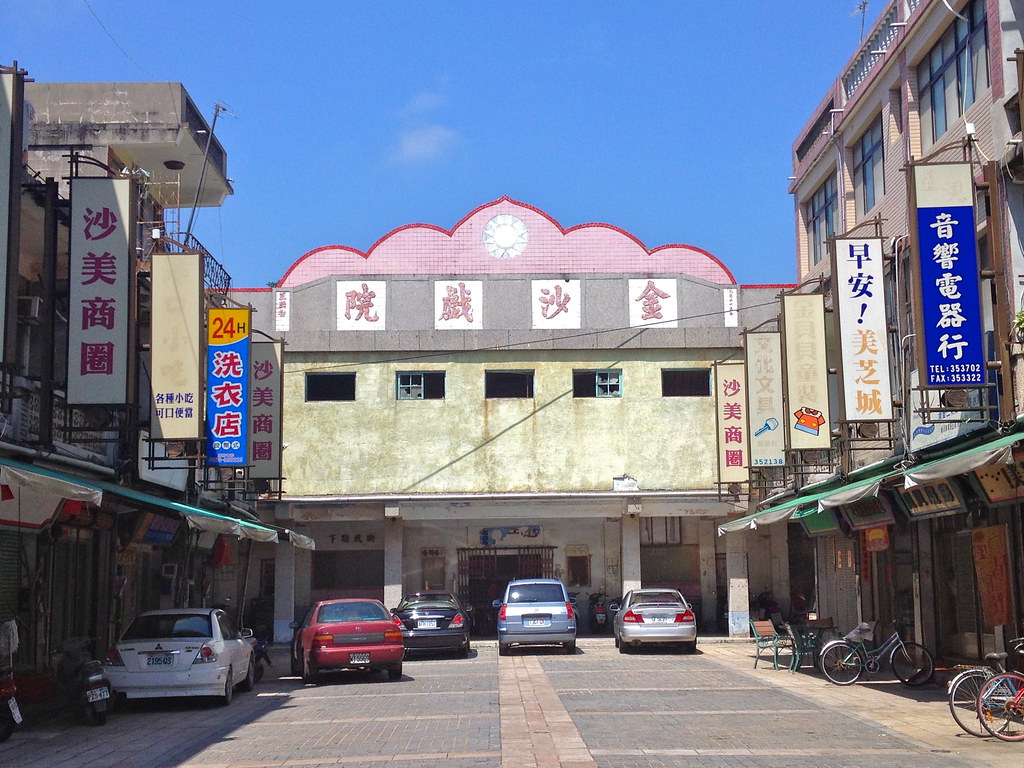
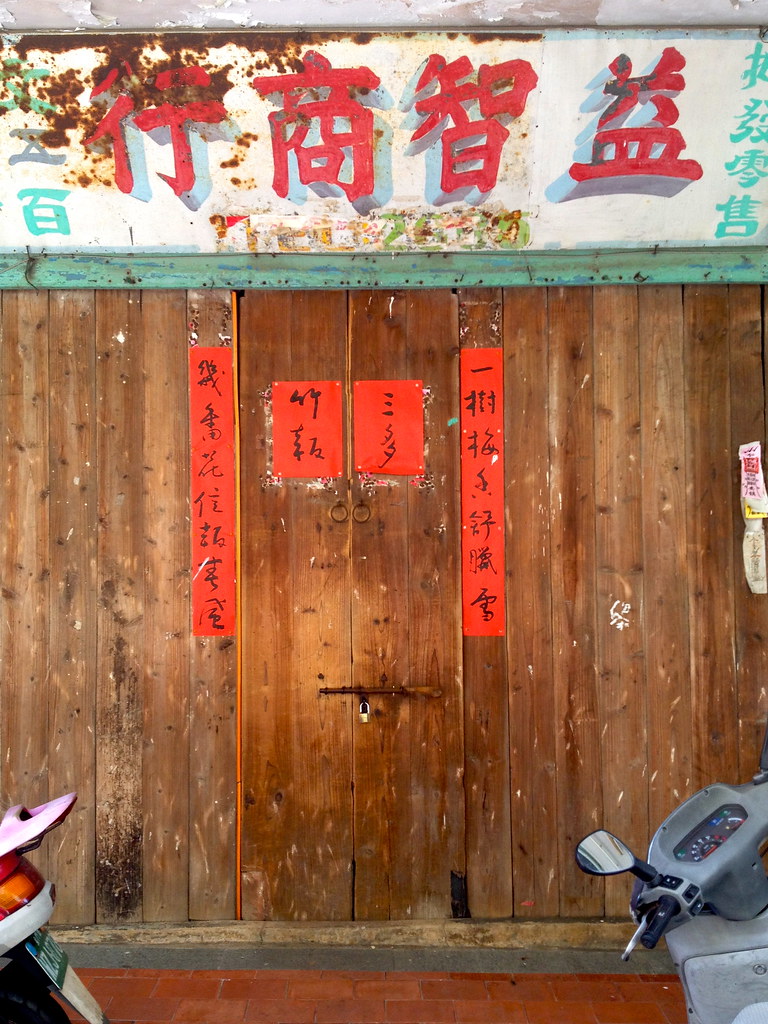
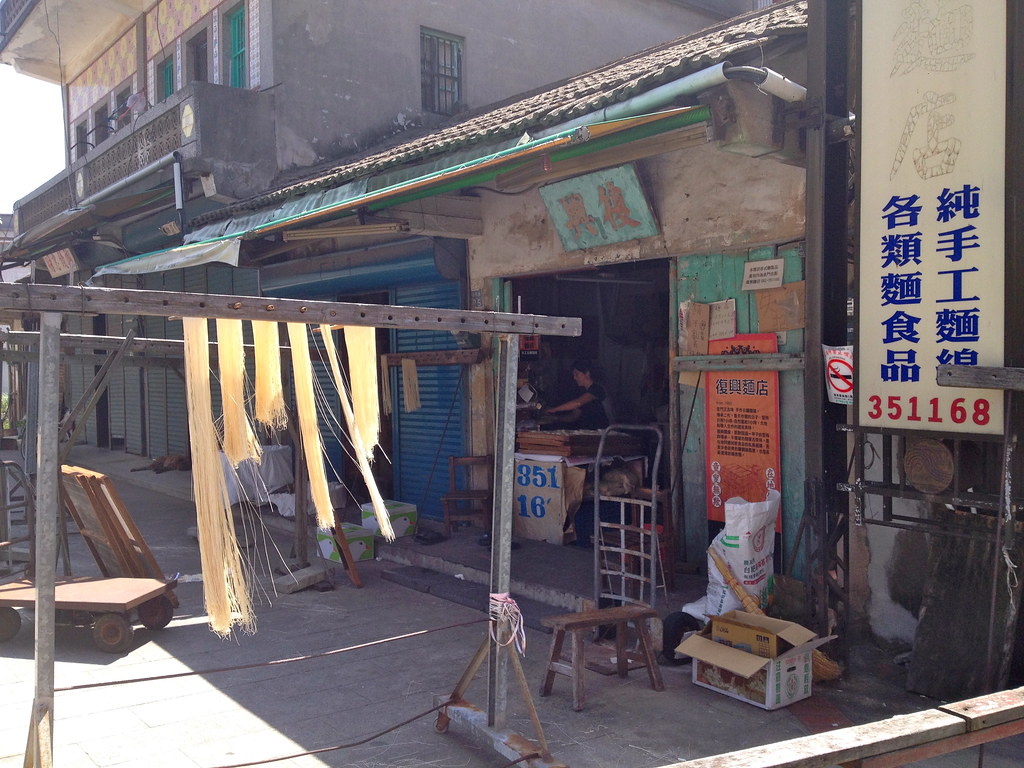
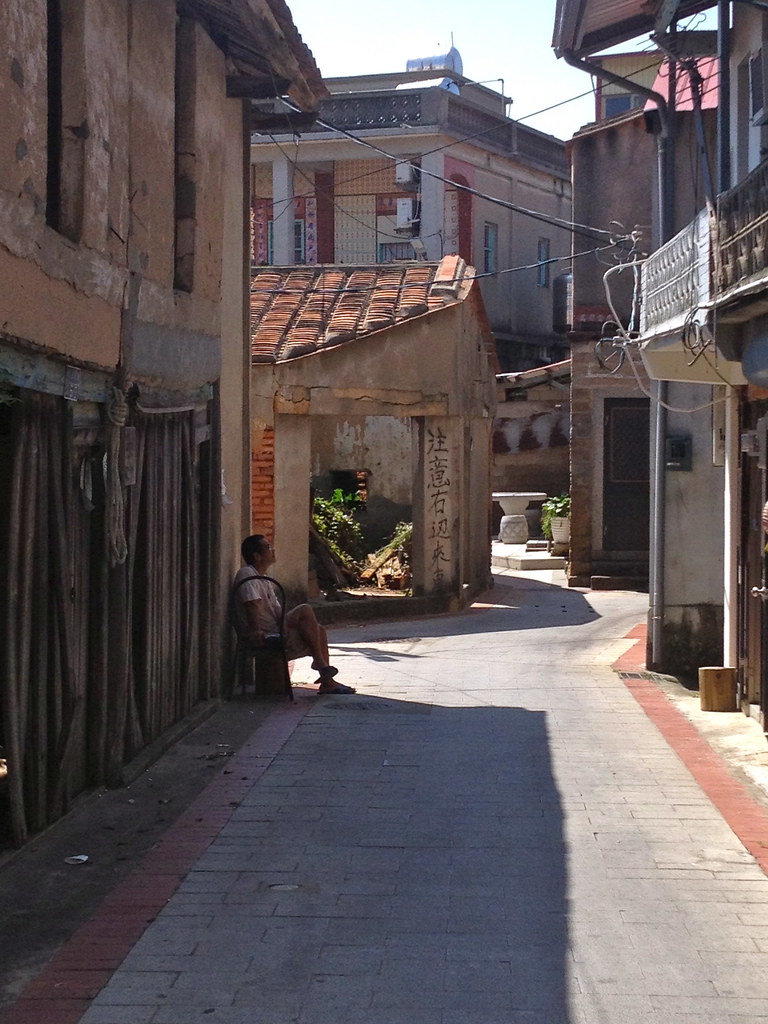
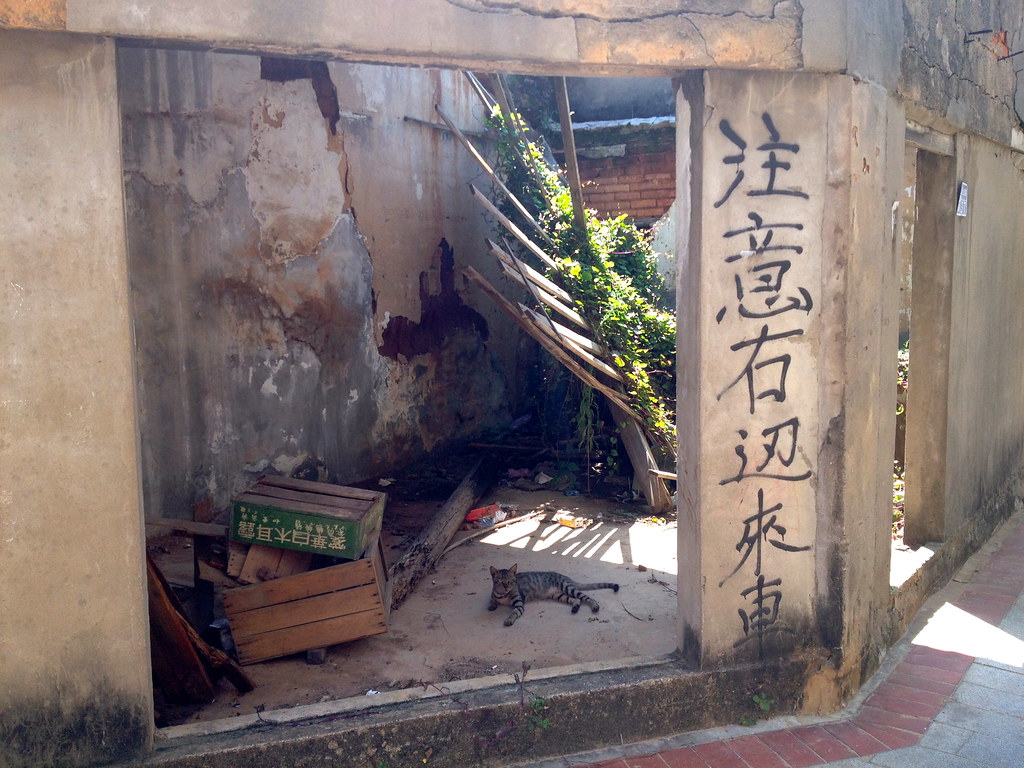
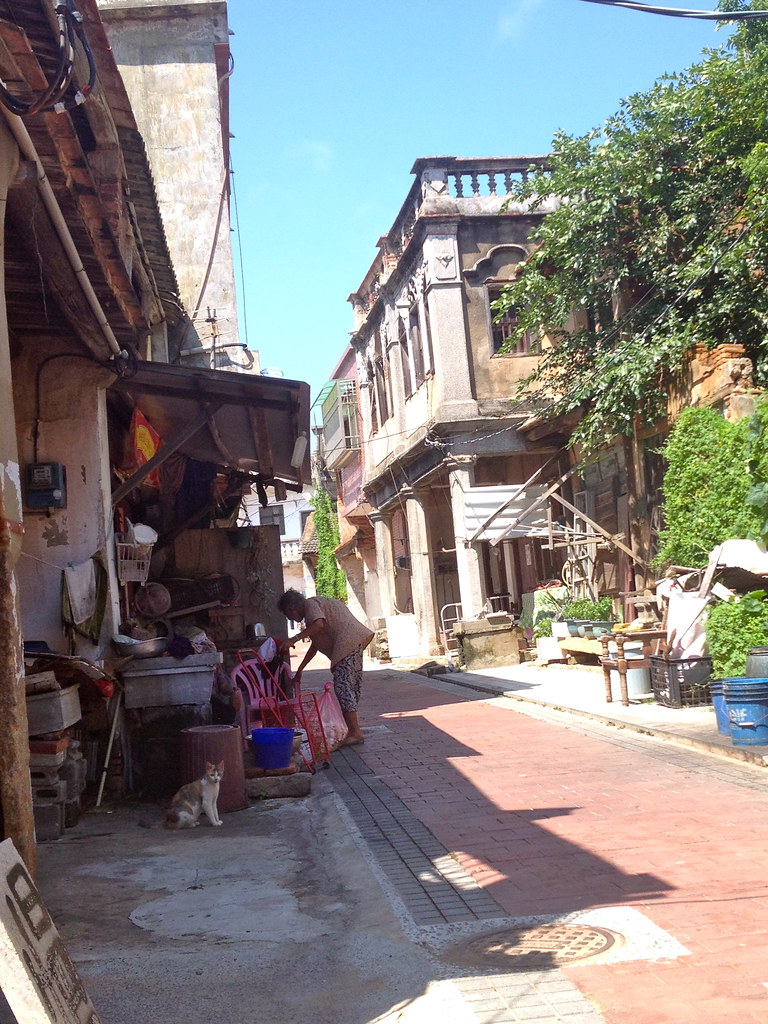
I'm not sure when this happened, though, because after we left the neighborhood with the Rui You School, we followed the road out of town right to the coast (past some interesting-ish views of windfarms), turning at a small reservoir-like lake that is either man-made or man-contained, before heading up a road that led to a turn-off (forgive my vagueness, I really don't remember well) where, completely by accident we came across a tiny little parking area with a stone staircase leading up a hill, which looked like it'd have an ocean view. Why not, right?
Turns out at the top there was some old gate - I actually don't know how old although we checked at the time, but old (like 14th century) and fairly recently restored. Checking the name online after a deft Street View search, it was 觀日門, near Tianpu (田浦) village. Of course then I upload my photo and realize the name is right there. Doof.
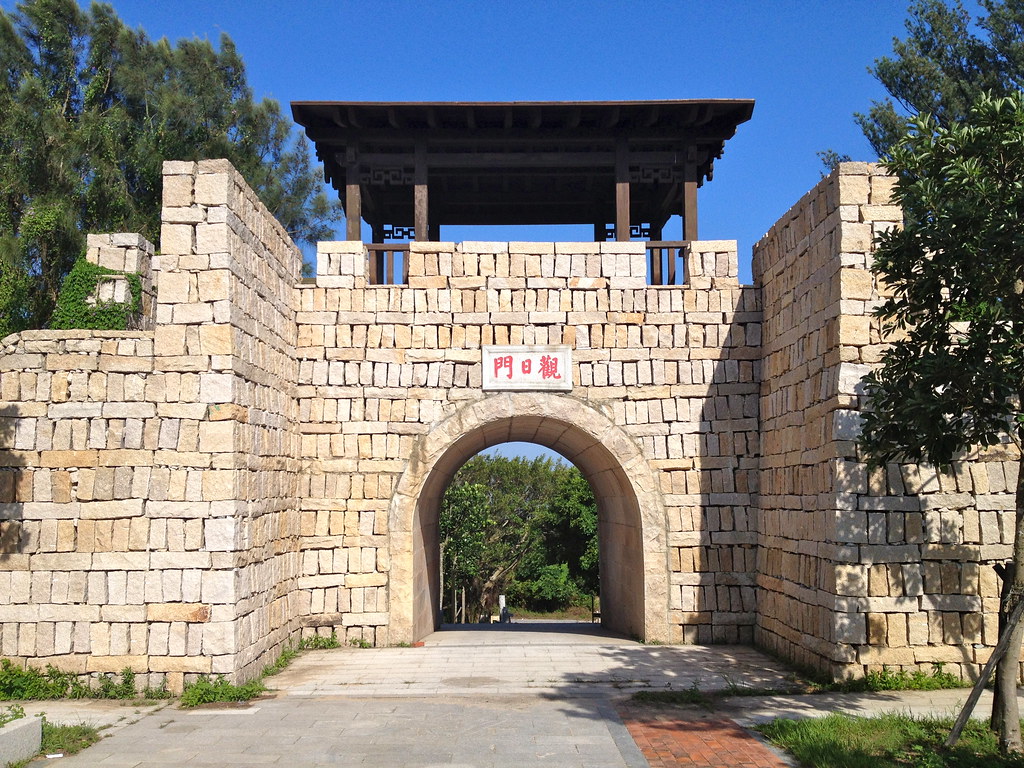
Then we drove along Buhua Road, which is not that interesting in and of itself but is dotted with a fairly high density of wind lions. Here are just a few:
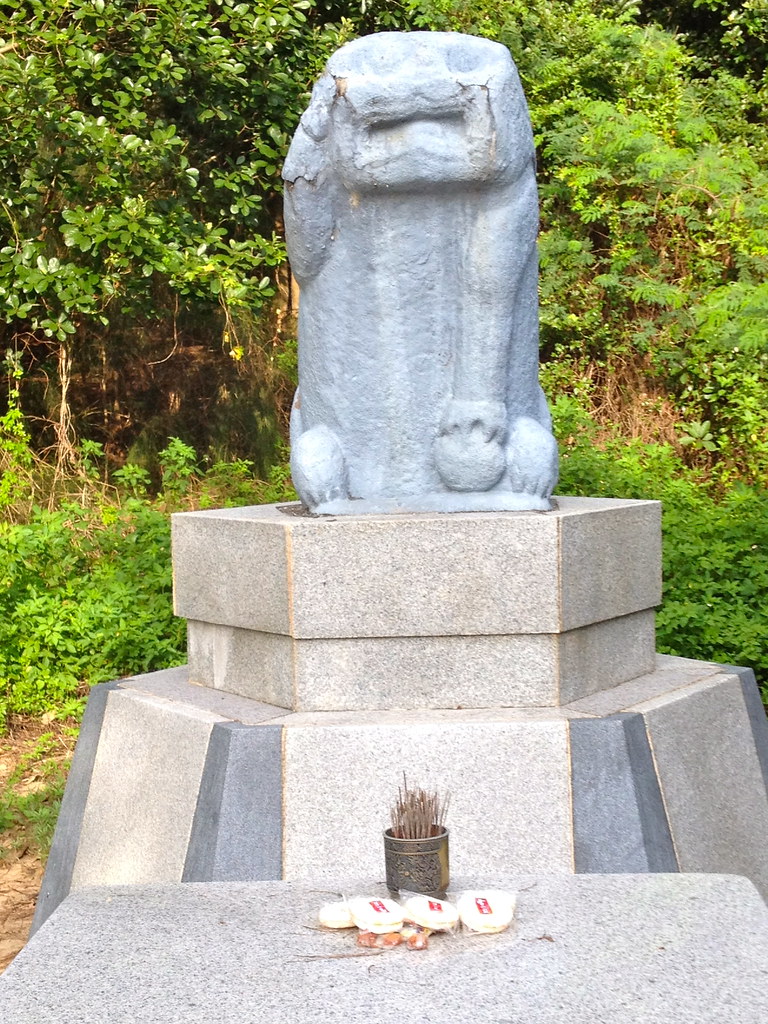
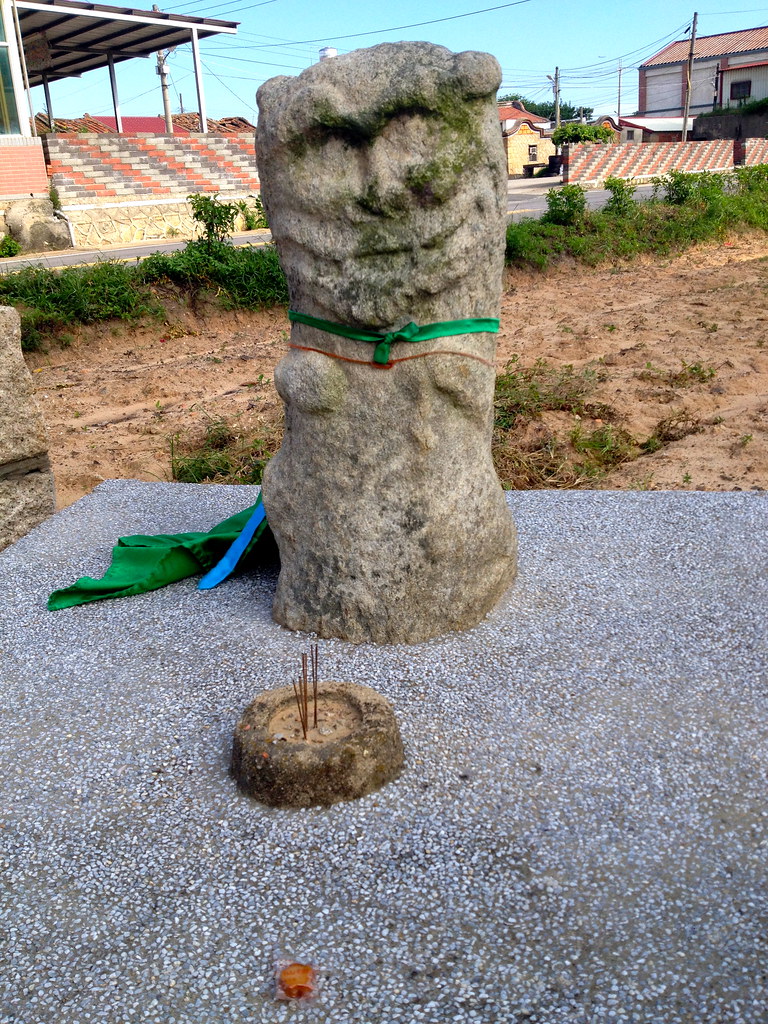
...before heading into the Lake Tai recreation area looking for more wind lions. We missed the museum as it was getting late, but managed to get this lovely picture of the sign for the "amusement zone":

AMUSEMENT IS MANDATORY IN THE AMUSEMENT ZONE.
...and we only found one fairly unimpressive wind lion, but it was cool to ride around the back roads.
We finished off with dinner in Shanwai, after finding a few lions there, too - including this sad-looking colorful one at the edge of a parking lot who is very definitely male:
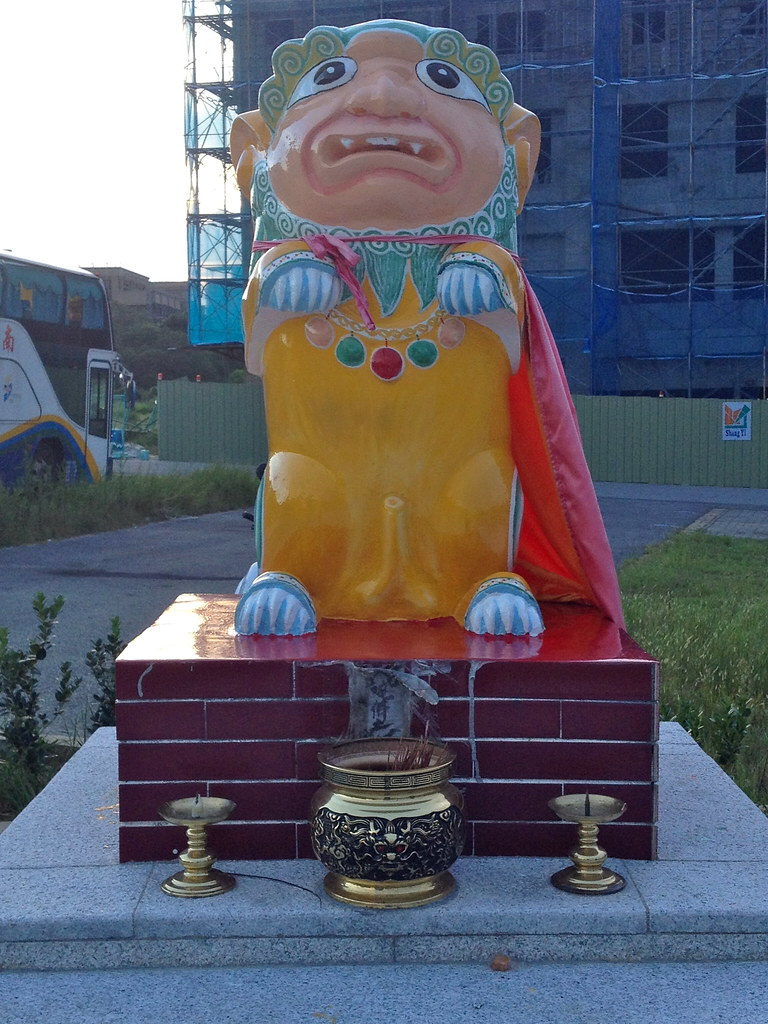
Throughout Shanwai we kept seeing these flags, and although I am fairly knowledgeable about Taiwanese folk religion and culture, I have to admit I don't know what they signify:
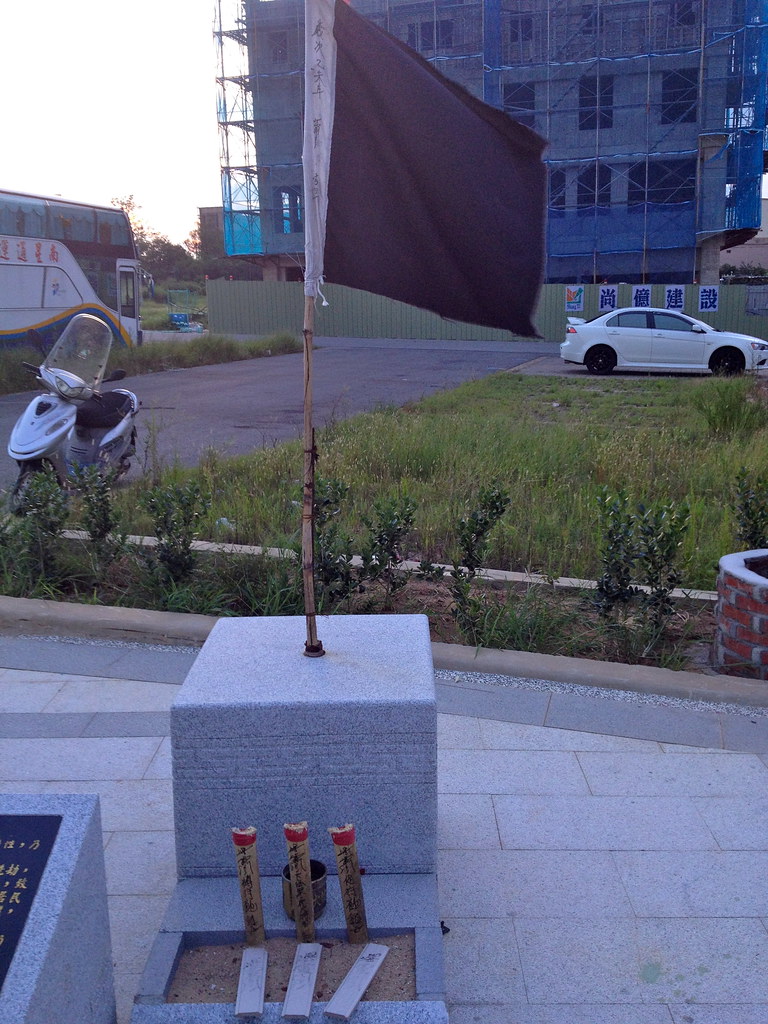
If anybody does know, I'm all ears. I rather hope I didn't take a disrespectful picture (though that's pretty rare in Taiwan, other than perhaps funerals you can photograph nearly everything).
Jinmen is a KMT stronghold, which means that a lot of old statues of Generalissimo and general Mass-Murdering Jerkwad Chiang Kai-shek (ptooey!) are still kicking around, where they might've been taken down in other parts of Taiwan. However, both Brendan and I appreciated the context of the statue in this circle, flanked as he is by a massive election poster - for the DPP! Ha haaaaaa, sucks to be you, Chiang. I hope you choke on it in the afterlife.
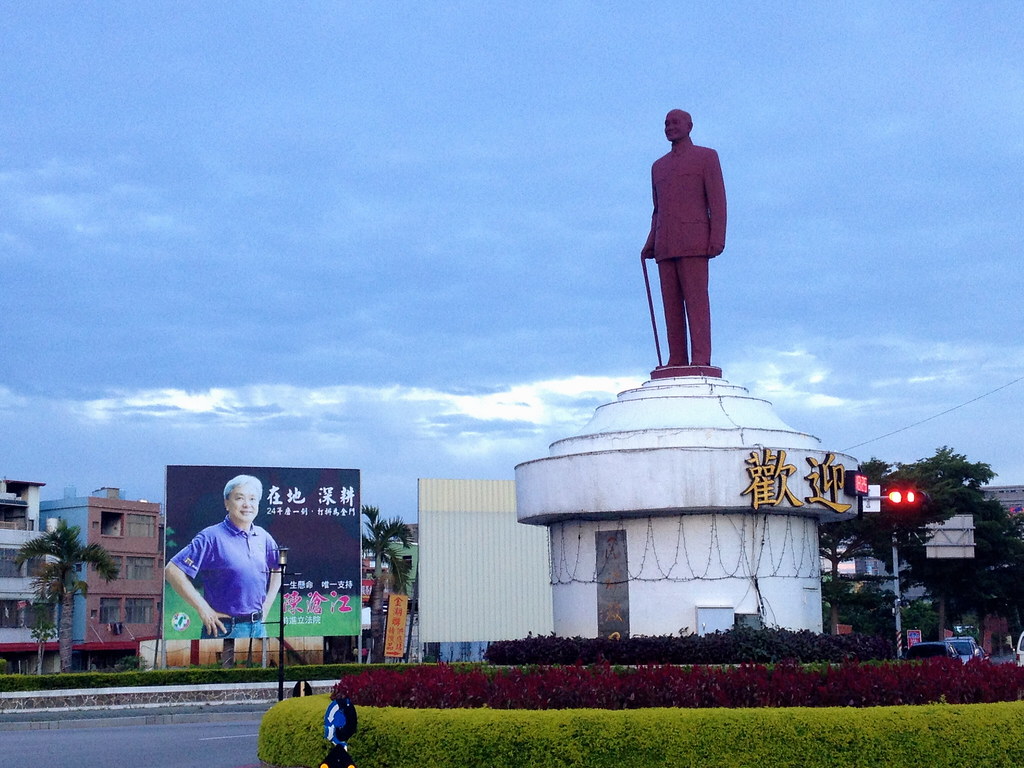
We hiked up a hill past more friendly cats - Jinmen has a lot of cats - to a few more wind lions before having dinner and driving back to our hotel. Wind lions in older sections of towns, usually far from the modern center, tend to be older:
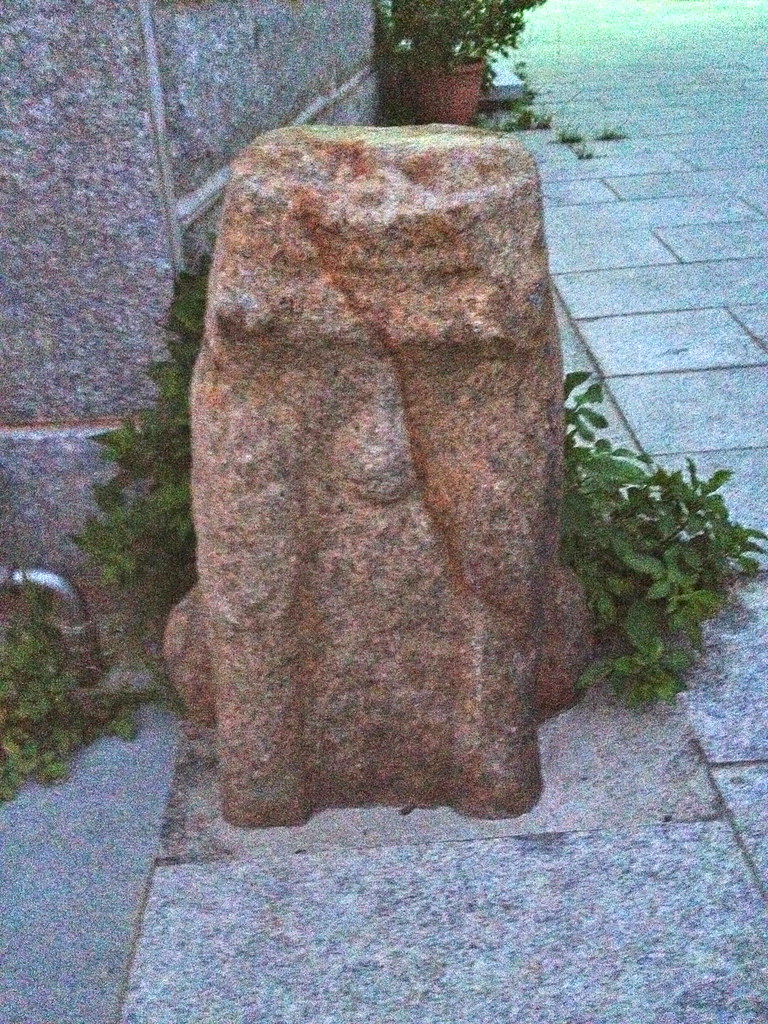
And we also passed this dalmatian-themed hotel with a pet dalmatian:
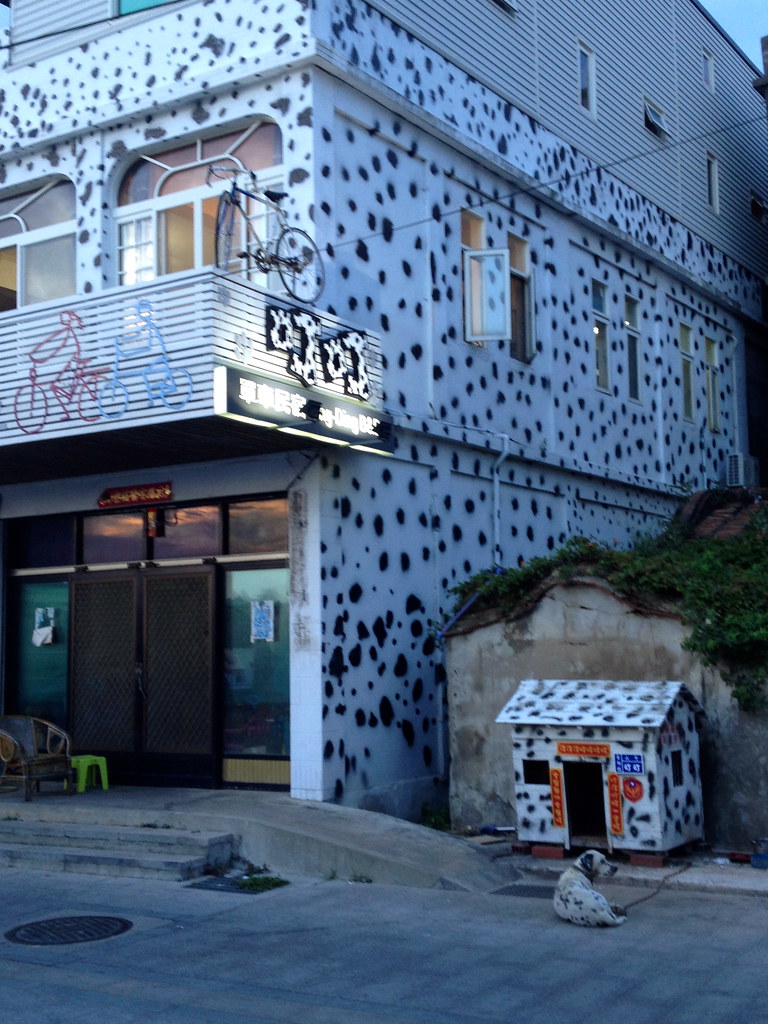
And found parts of Shanwai to be fairly attractive:
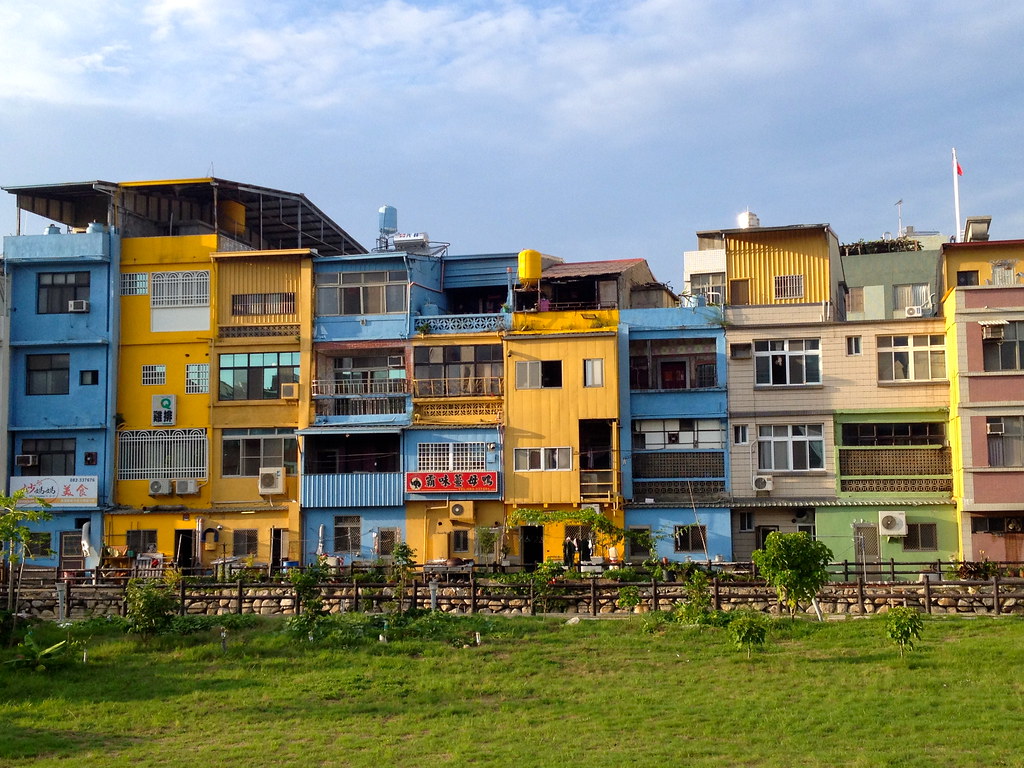
Another good thing about our hotel is you can hang out outside at night and drink Taiwan Beer (or whatever you like), and you can even have free Kaoliang, though I only had a tiny thimbleful. I'm not afraid of strong spirits - my whiskey of choice is Laphroaig after all - but I just don't care for Kaoliang.
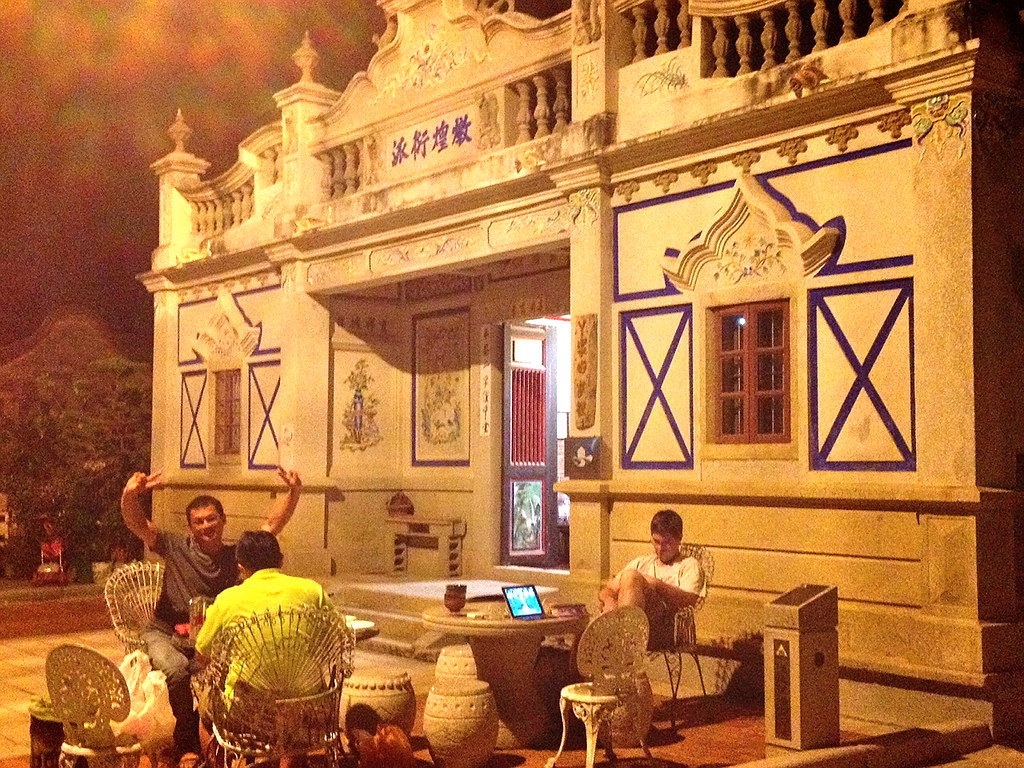
But wait, there's more!
I also can't remember when we did this, but at some point we stopped at Shanhou culture village. Historically the home of the Wang family and their many, many, many extended cousins and various relatives, now it's mainly a tourist attraction, but worth a visit. The oyster omelets are actually delicious, and there's a wind lion not far away. You can buy Kinmen Wang Da-fu balm here - a green herbal balm not unlike Tiger Balm but milder and more vegetal - the third-most popular Kinmen export after knives made out of bomb casings and Kaoliang, possibly fourth after those cookies you see everywhere. I bought some because I love balms, and we already have a bomb knife (thanks Joseph!), and I don't like Kaoliang.
Anyway, some photos from Shanhou:
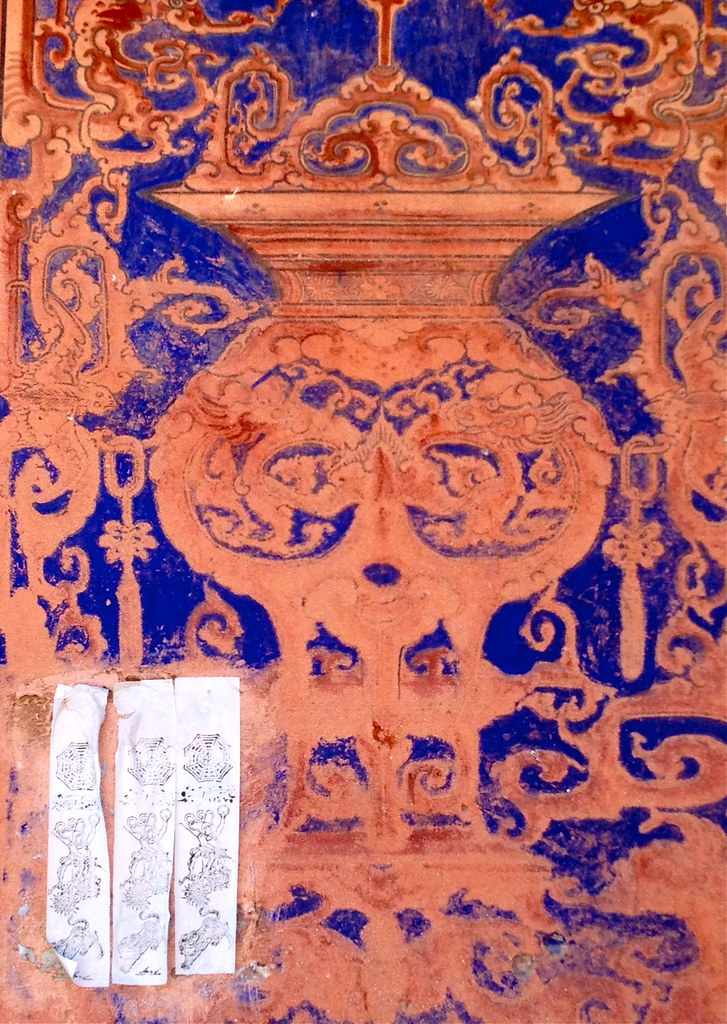
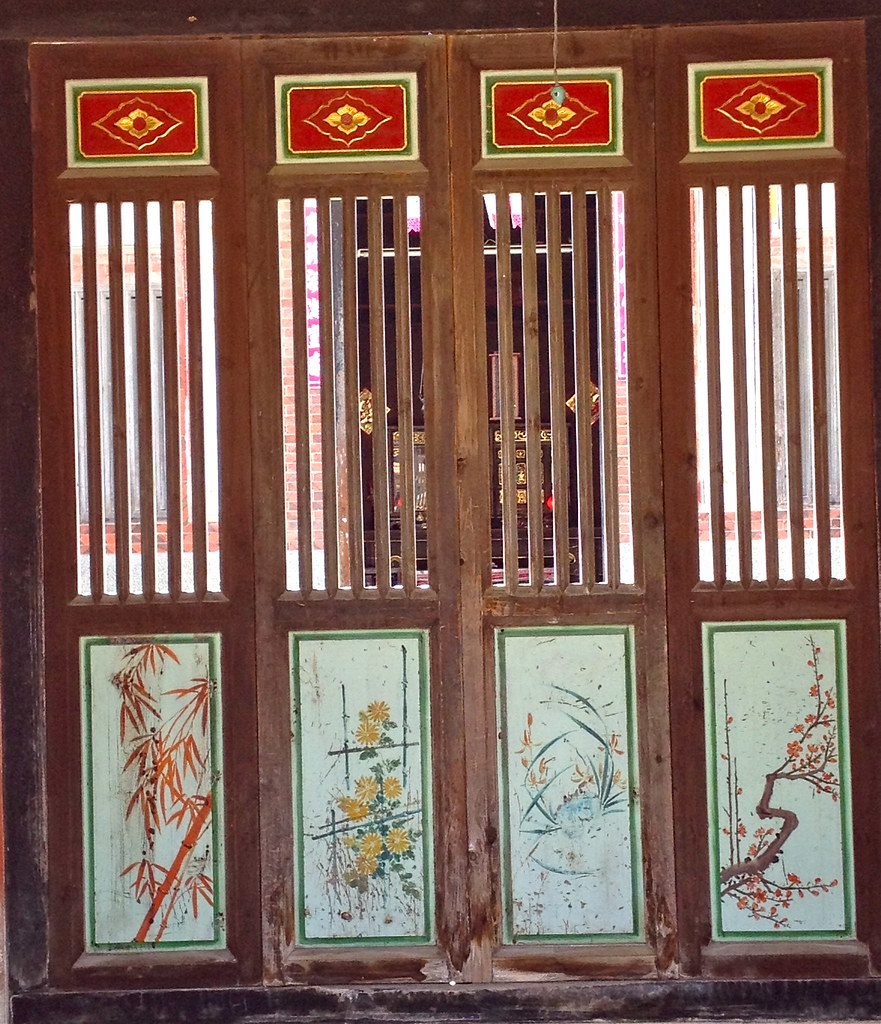

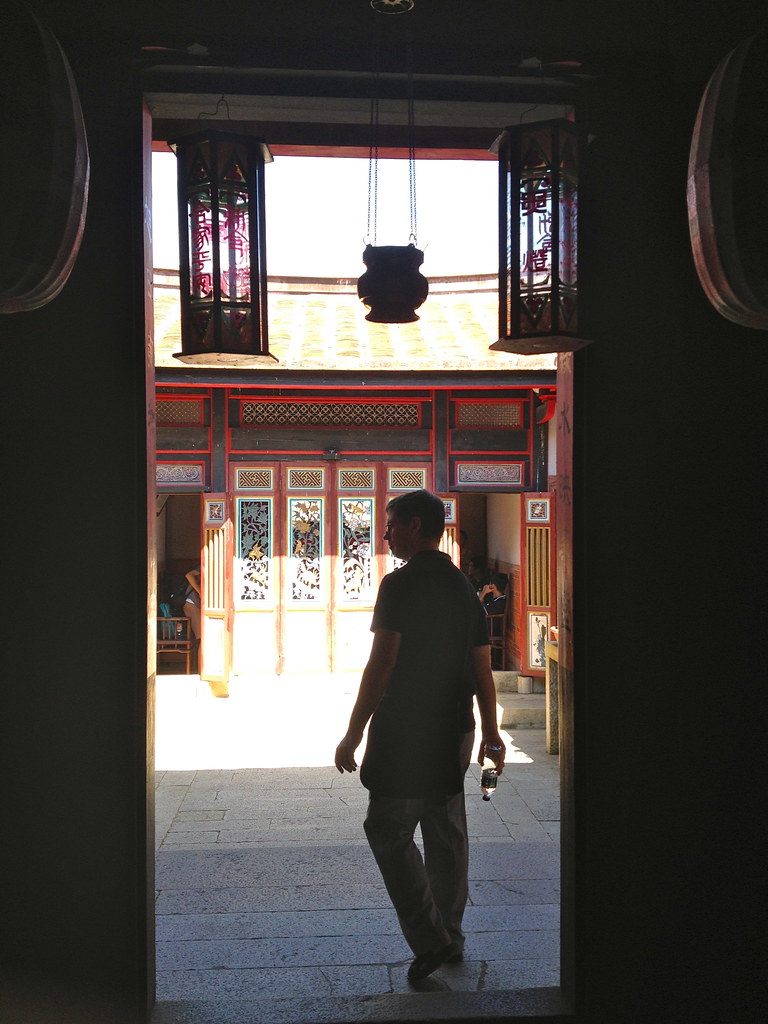
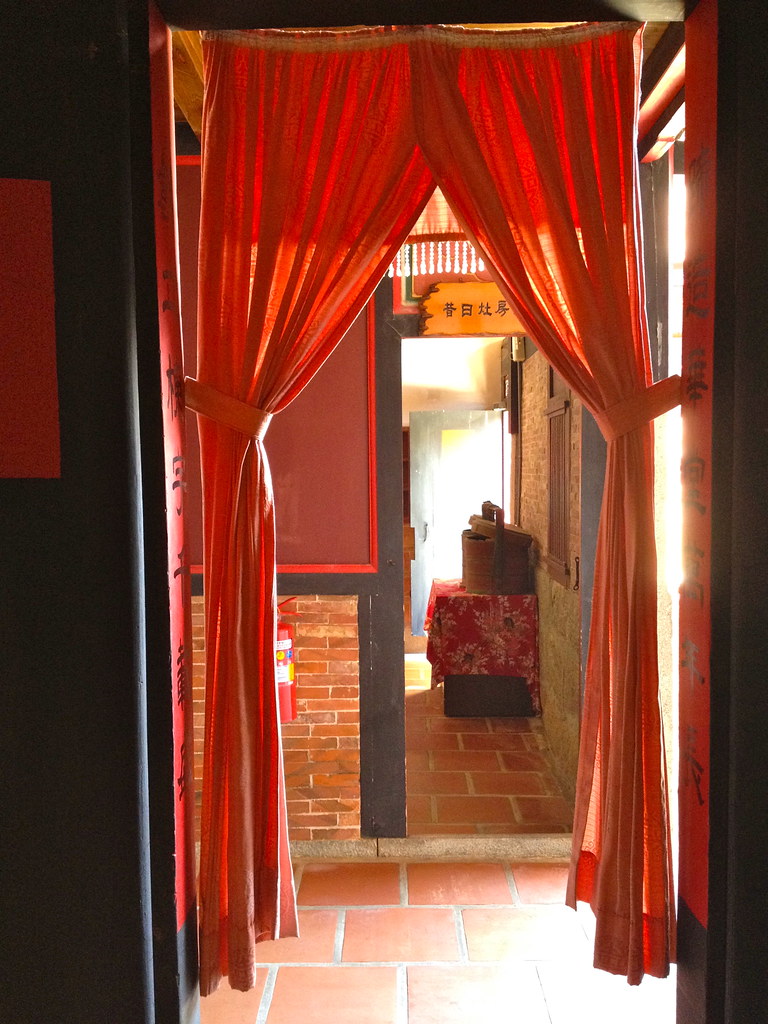
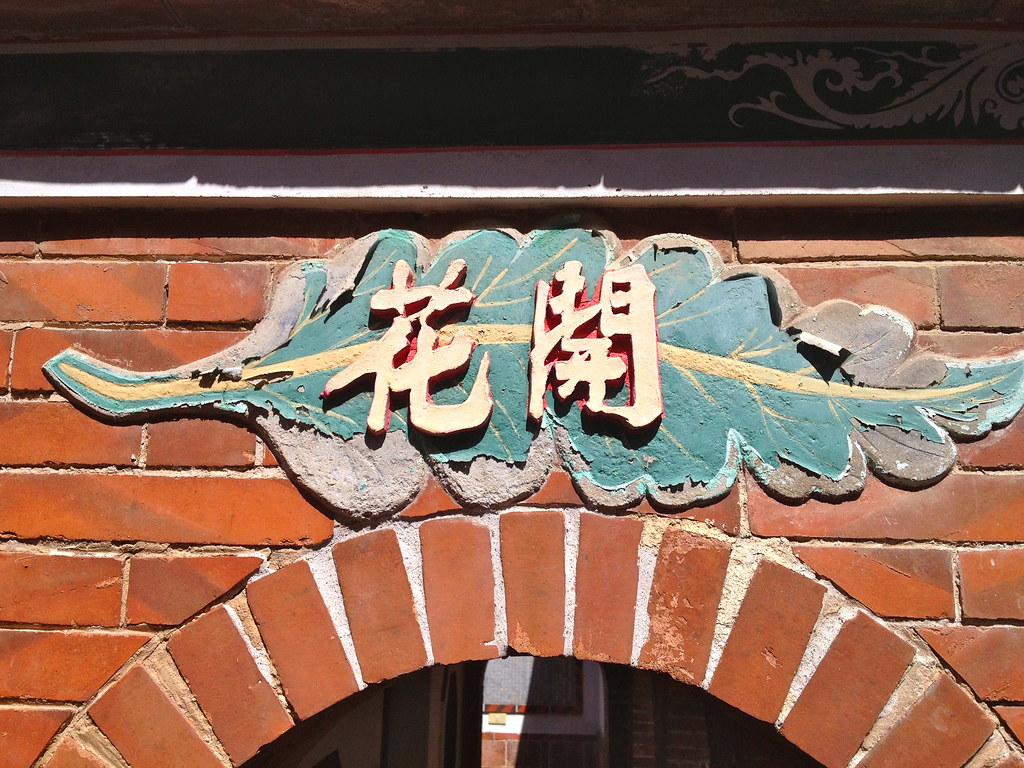
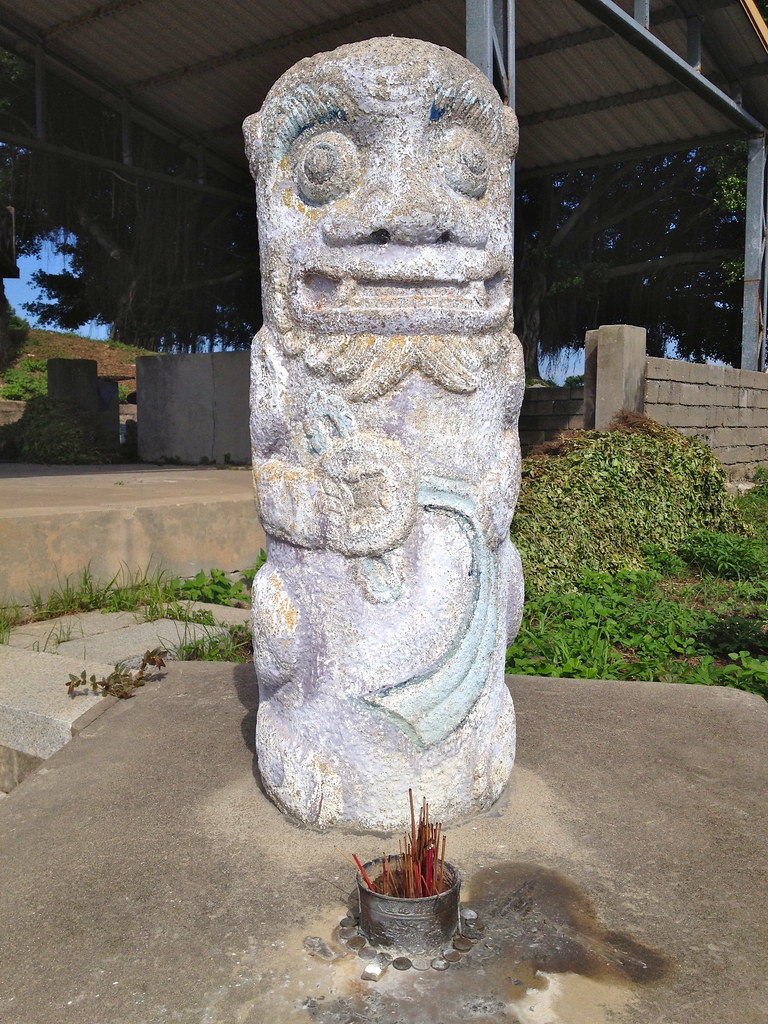
...and while we didn't make it to Maestro Wu's bomb knife shop (because we already have a bomb knife), or the Kaoliang distillery (because neither of us really likes Kaoliang), we did go to the Guningtou battle museum, with it's wonderfully/horribly propagandistic oil paintings of the ROC forces defeating the PRC on the nearby beach. Not a lot of photos from that, but here are some photos from the nearby town, with the famous bullet-ridden yanglou (foreign style house), after which we visited a temple erected for an ROC general, Li Guang-qian (李光前將軍廟), who died in the battle on Guningtou, which is a short drive south on Huandao Road:
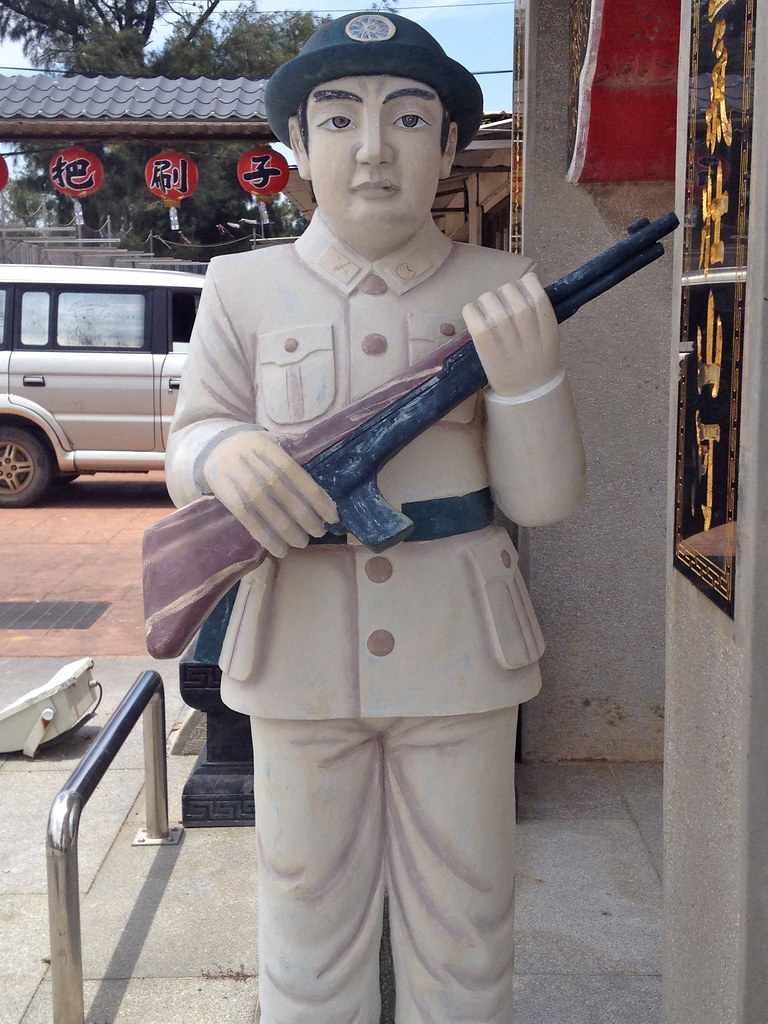
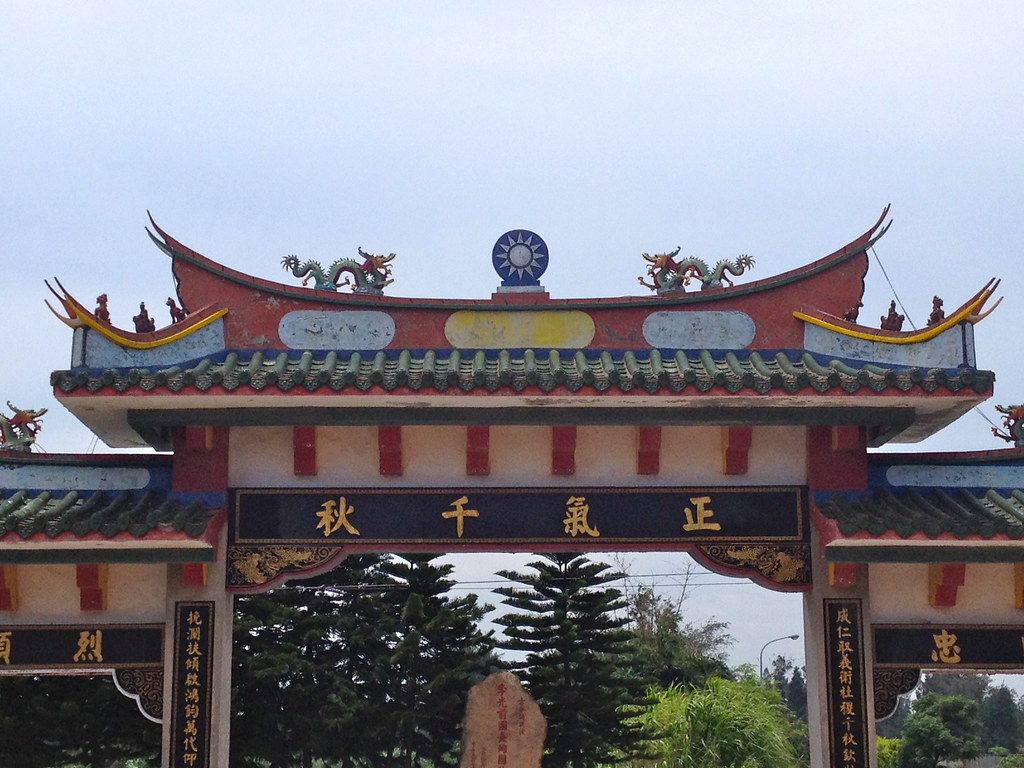
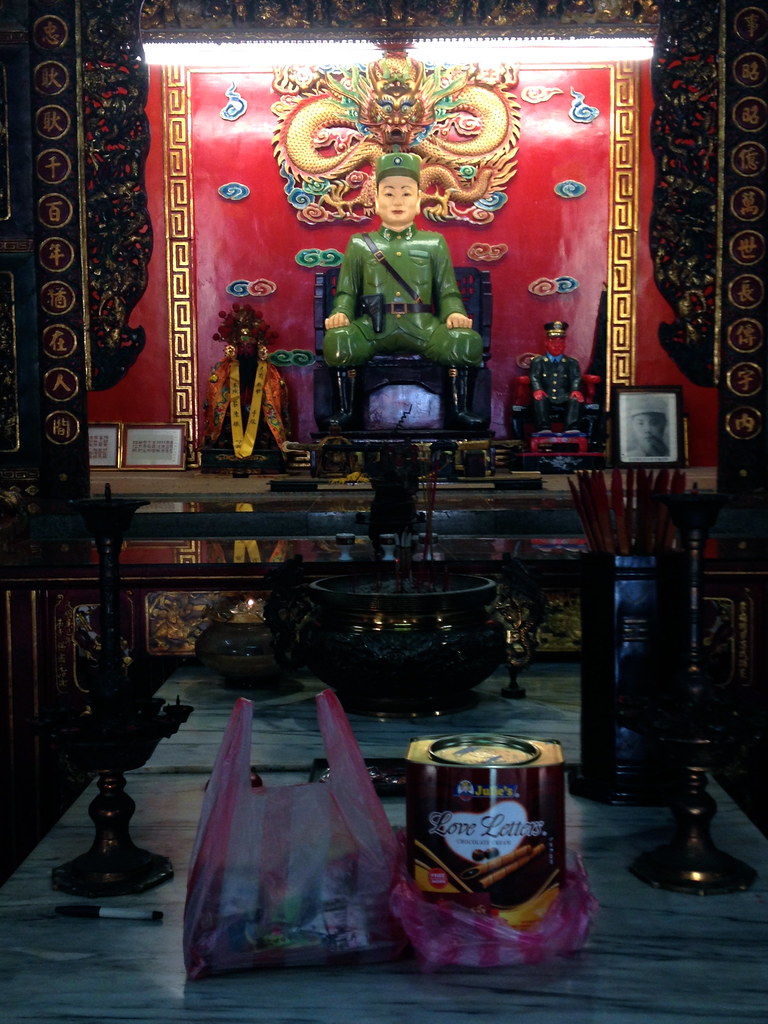
We had no particular reason to visit the temple other than that we drove by it and it looked interestingly militaristic in a way that most temples, uh, don't. That's the great thing about just tooling around and not worrying if you hit every sight in the book.
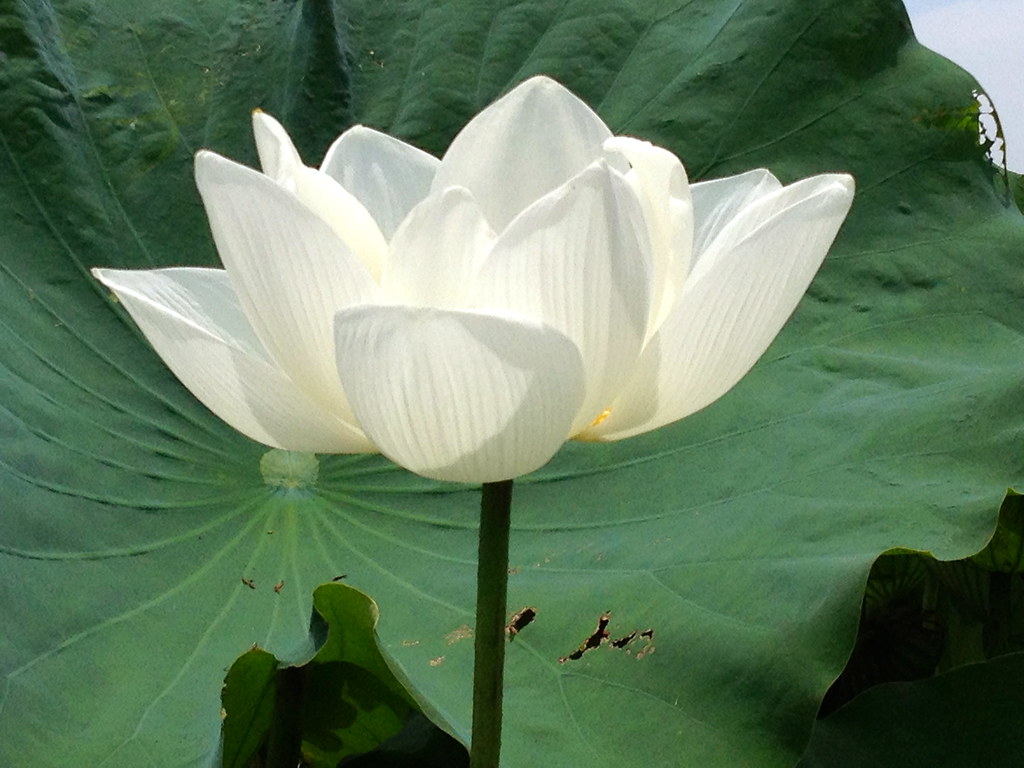
Another benefit of tooling about is that you find things you didn't even think existed. Rough Guide mentions one old granite tower (also 14th century), but if you wander enough and stop where you see interesting signs, you'll come to a few more (no idea if they are authentic vintage or were built/rebuilt some time later).
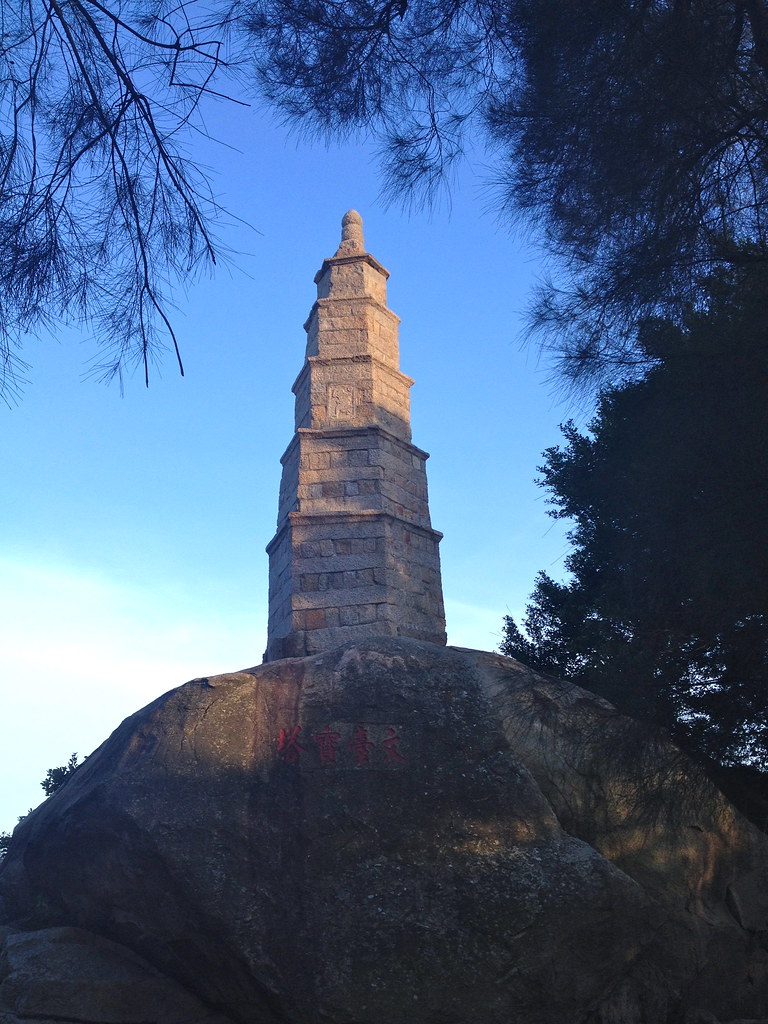
This is the one in the guidebook.
And this is one of the random ones we found:
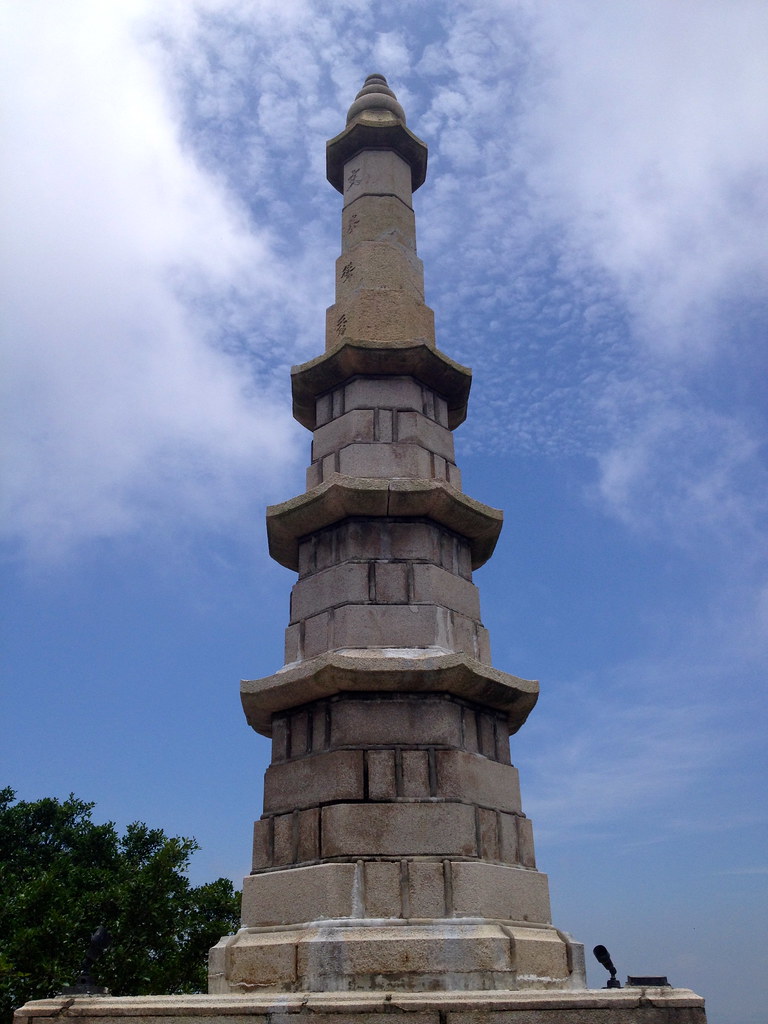
...and we found at least one more besides these two. They all look about the same though.
We also hiked up Taiwushan, which sounds impressive except it's not particularly high. Before going up we explored the old military cemetery near the car park. There are some nice views, and notably, more of Jinmen's many cats.
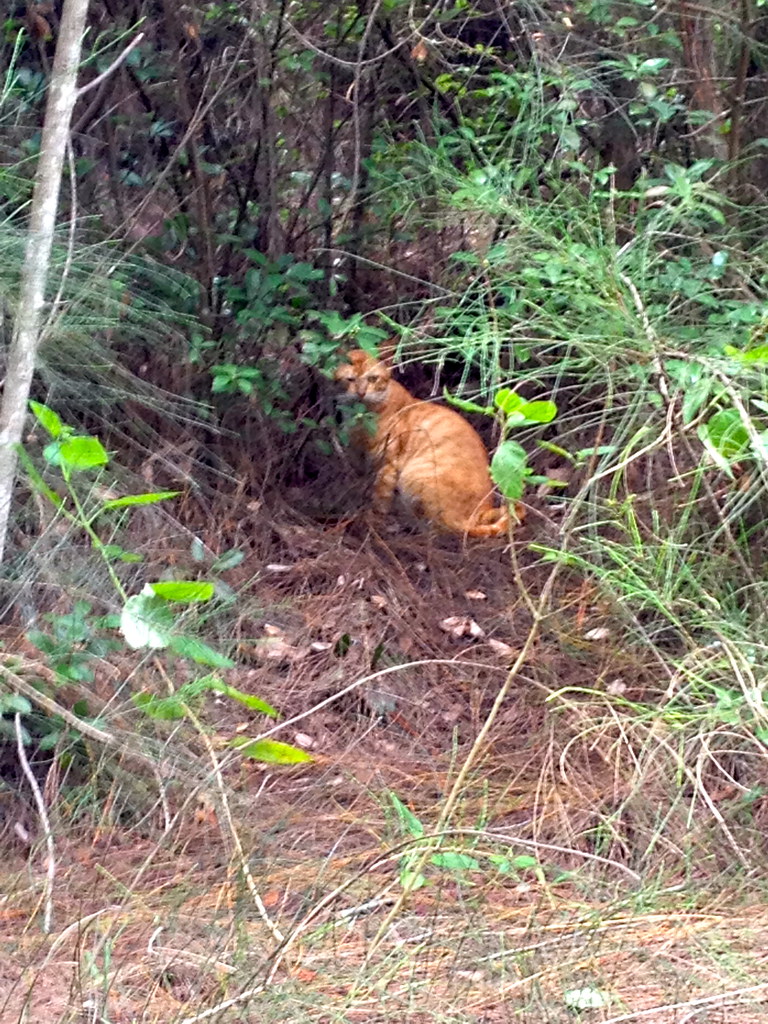
We stopped at the old inscribed stone (my photo wasn't very good) and Haiyin temple, which was a pretty good place to take a rest before heading back down (somewhere along the road up Taiwushan we found a pathway to another one of those granite towers).
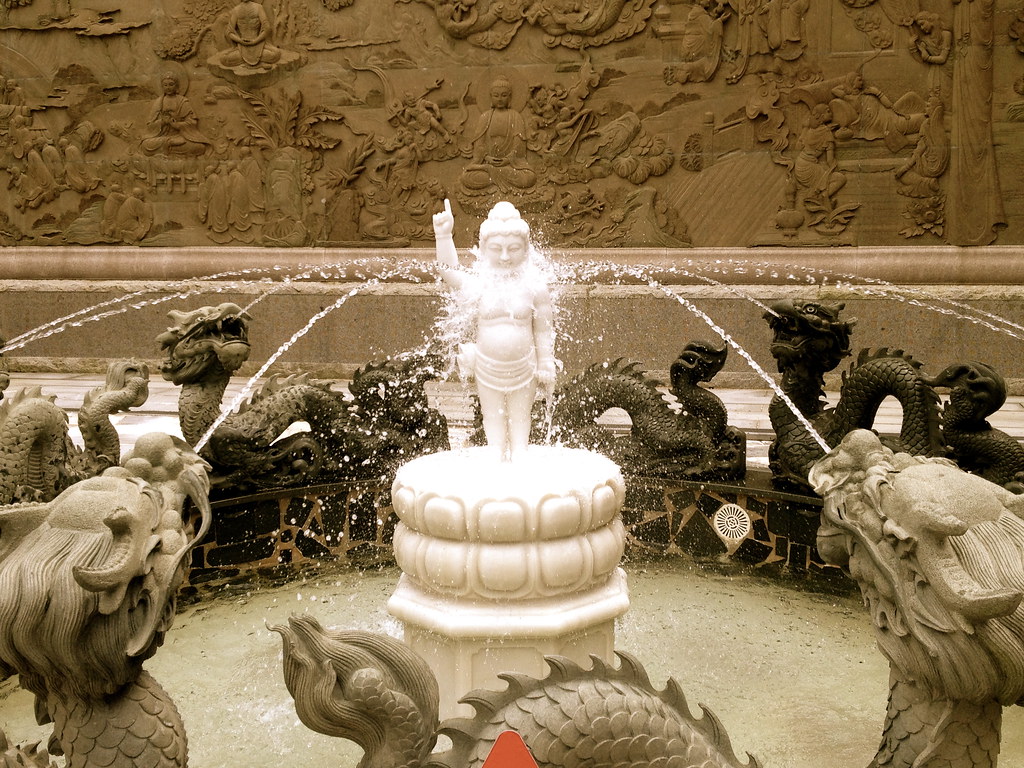
On our last day we drove around a bit more and found a few more wind lion gods, including some way out in the countryside by the airport. These lions, it seems, are undeniably gendered:
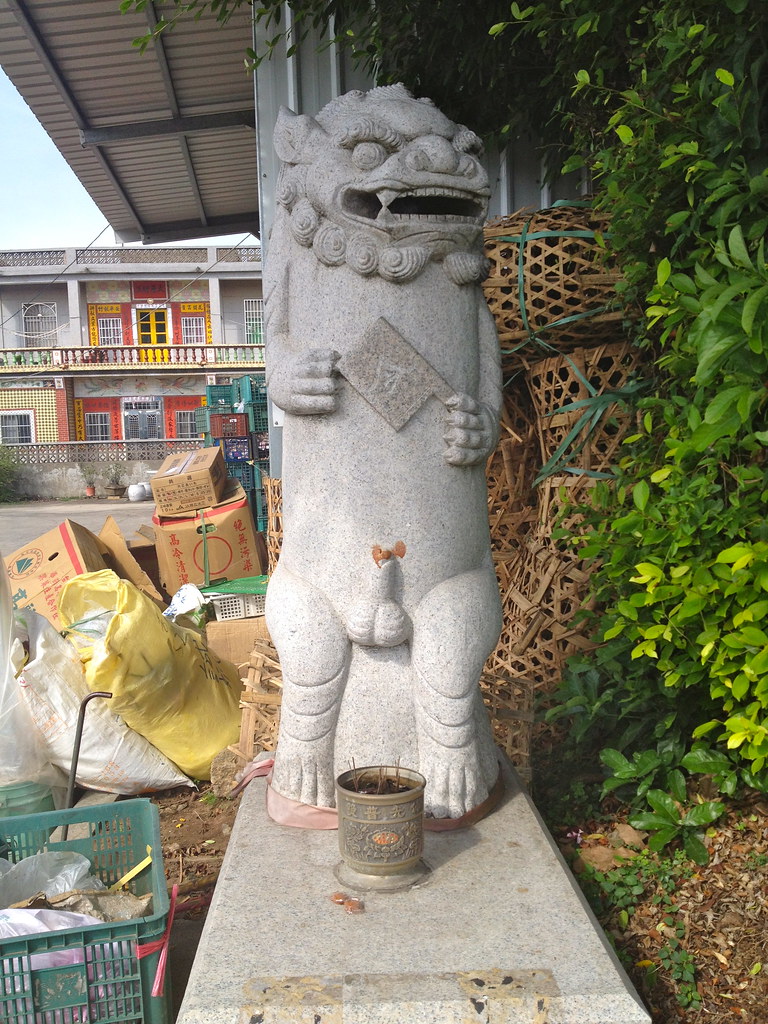
Well hello there. Aren't you just a happy little fella?
...and a few photos that didn't really fit anywhere else but I basically just liked:
